Shows
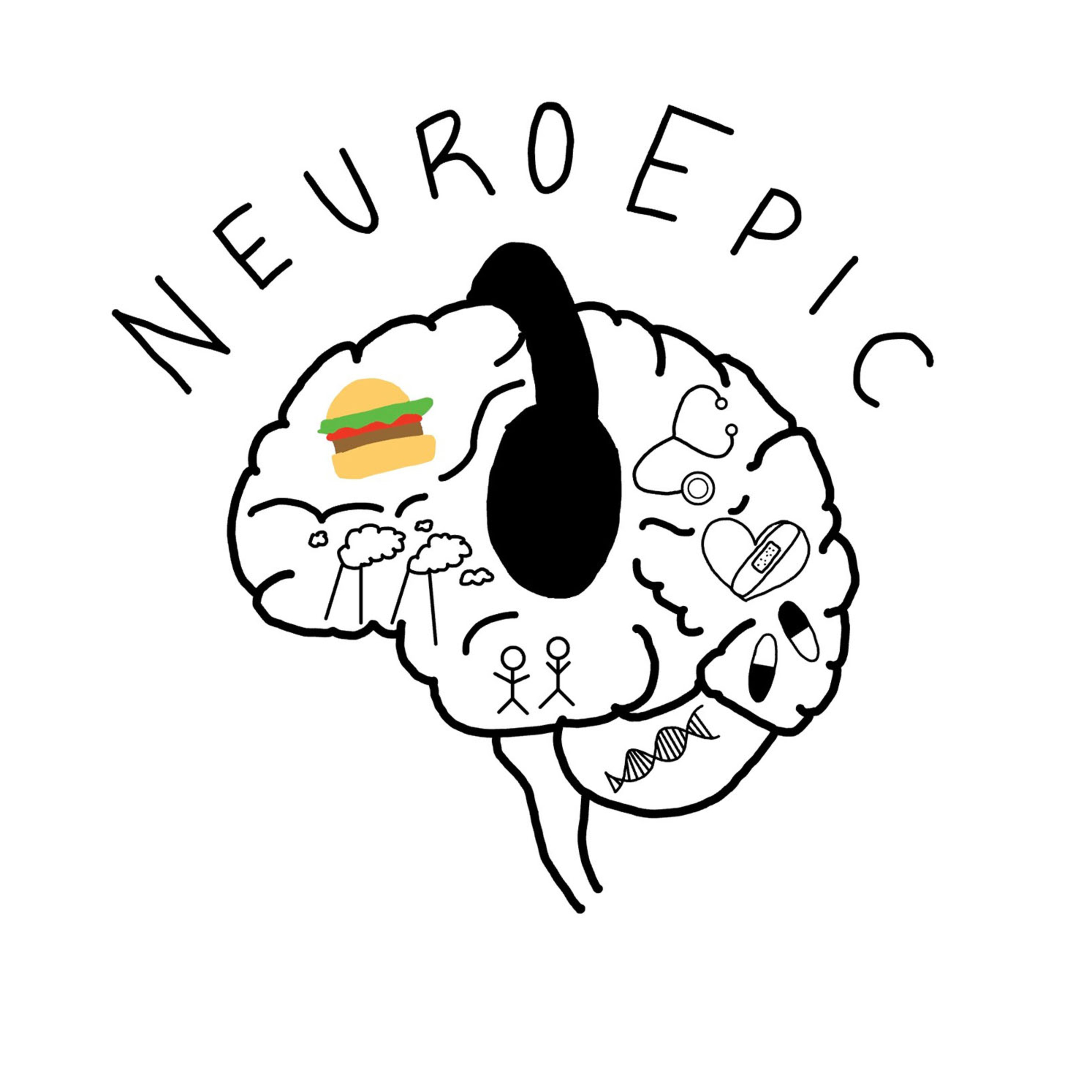 Neuroepic: Nature, Nurture, Food, Family, Brains57. Nutrigenomics of Vitamin B12 and Invasive CancerAs a society we are becoming more aware of how daily life patterns directly affect our health and wellness. Exercise, food, and sleep not only influence our short term mental and physical states, but there is increasing evidence that there are lasting effects on our DNA and potentially our offspring’s DNA. Our DNA, or genome, is composed of a specific sequence of nucleotides that control our growth, development, and the ability to carry out biological functions needed for survival. How the DNA is packaged and changes to this packaging is referred to as the epigenome. This can be th...2022-09-1509 min
Neuroepic: Nature, Nurture, Food, Family, Brains57. Nutrigenomics of Vitamin B12 and Invasive CancerAs a society we are becoming more aware of how daily life patterns directly affect our health and wellness. Exercise, food, and sleep not only influence our short term mental and physical states, but there is increasing evidence that there are lasting effects on our DNA and potentially our offspring’s DNA. Our DNA, or genome, is composed of a specific sequence of nucleotides that control our growth, development, and the ability to carry out biological functions needed for survival. How the DNA is packaged and changes to this packaging is referred to as the epigenome. This can be th...2022-09-1509 min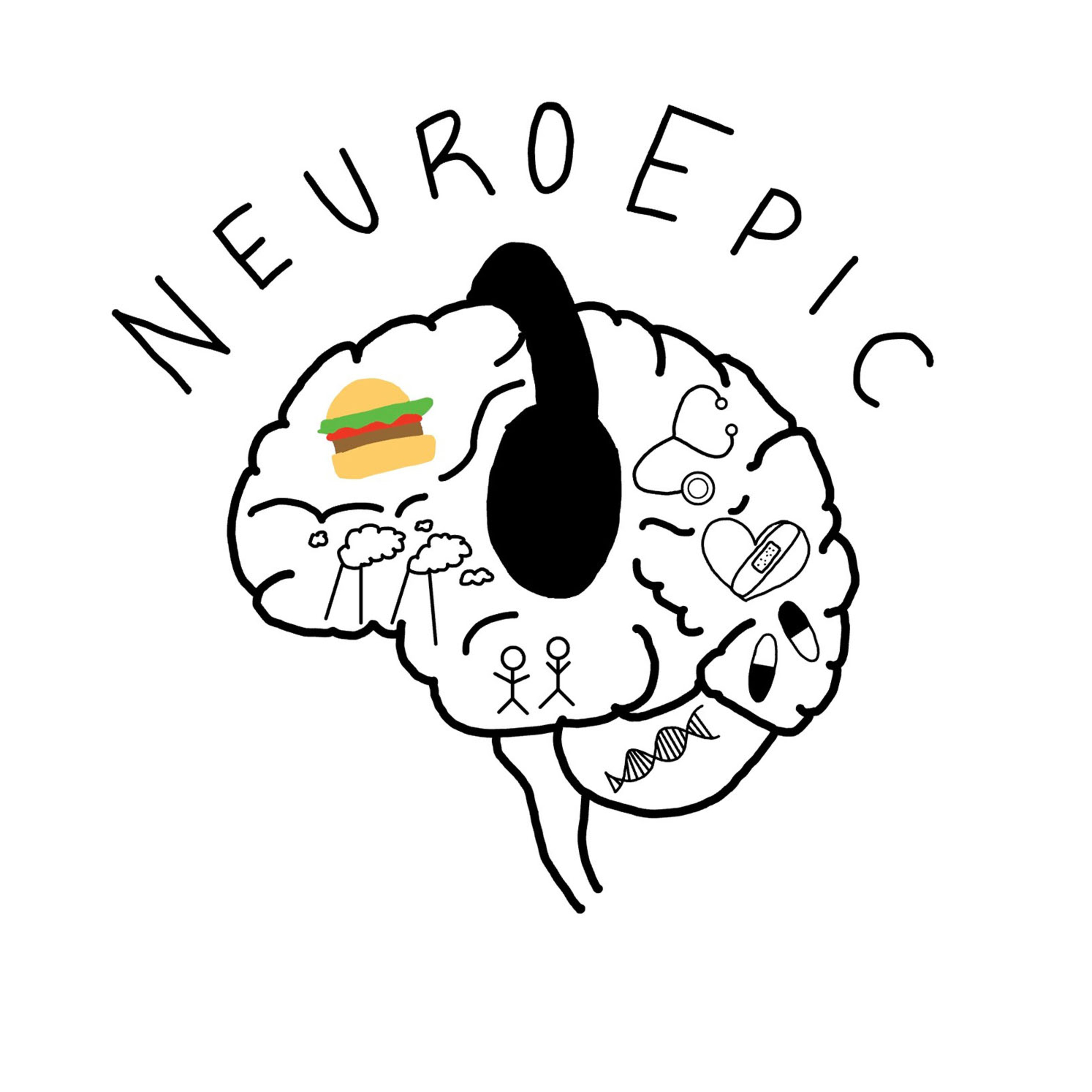 Neuroepic: Nature, Nurture, Food, Family, Brains56. Gestational Diabetes MellitusAll a pregnant woman longs for is a healthy, happy baby at the end of her pregnancy. While most women get their wish, the unfortunate reality is that some women have complications for several reasons. One potential complication is Gestational Diabetes Mellitus (GDM), which is when a mother becomes diabetic during her pregnancy. GDM occurs in 12% - 18% of all pregnancies, and the risk of developing this increases with age or a prior diagnosis of diabetes. Women diagnosed with GDM must undergo major diet and lifestyle changes to combat their increase in blood sugar levels. Multiple women discussed how they...2022-09-1420 min
Neuroepic: Nature, Nurture, Food, Family, Brains56. Gestational Diabetes MellitusAll a pregnant woman longs for is a healthy, happy baby at the end of her pregnancy. While most women get their wish, the unfortunate reality is that some women have complications for several reasons. One potential complication is Gestational Diabetes Mellitus (GDM), which is when a mother becomes diabetic during her pregnancy. GDM occurs in 12% - 18% of all pregnancies, and the risk of developing this increases with age or a prior diagnosis of diabetes. Women diagnosed with GDM must undergo major diet and lifestyle changes to combat their increase in blood sugar levels. Multiple women discussed how they...2022-09-1420 min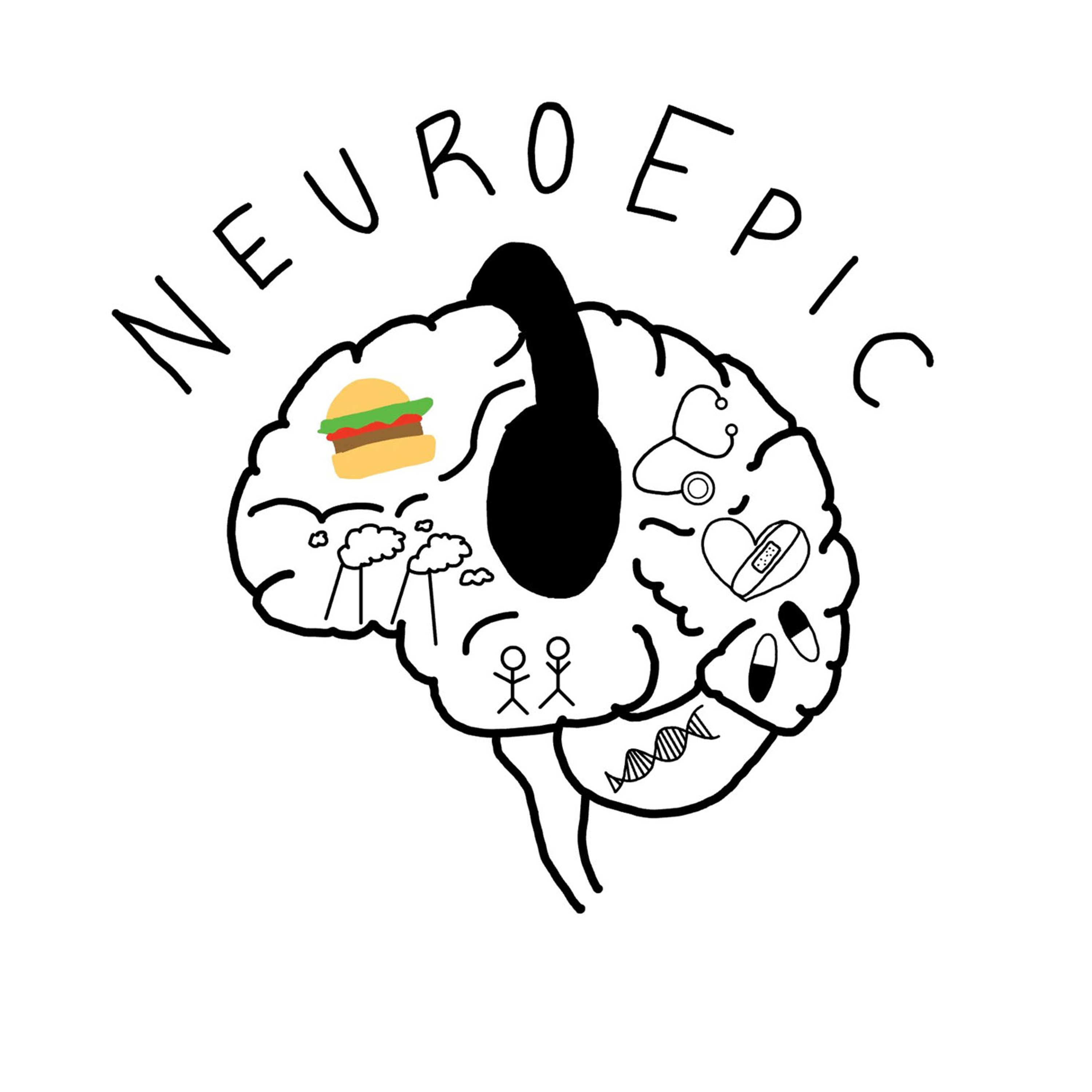 Neuroepic: Nature, Nurture, Food, Family, Brains55. Introduction to Nutrigenomics & NutrigeneticsThere is a constant barrage of information about cancer-causing chemicals, damaging pollution, and other toxins making us sick. With headlines like “11 potentially cancer-causing things you might use every day” and news stories about “Environmental pollution killing more people than war”, it’s understandable that the public has become hyper-aware of the health consequences of chemicals and pollution. So, the prospect of protecting yourself and your loved ones with a simple diet change is intriguing.2022-09-1314 min
Neuroepic: Nature, Nurture, Food, Family, Brains55. Introduction to Nutrigenomics & NutrigeneticsThere is a constant barrage of information about cancer-causing chemicals, damaging pollution, and other toxins making us sick. With headlines like “11 potentially cancer-causing things you might use every day” and news stories about “Environmental pollution killing more people than war”, it’s understandable that the public has become hyper-aware of the health consequences of chemicals and pollution. So, the prospect of protecting yourself and your loved ones with a simple diet change is intriguing.2022-09-1314 min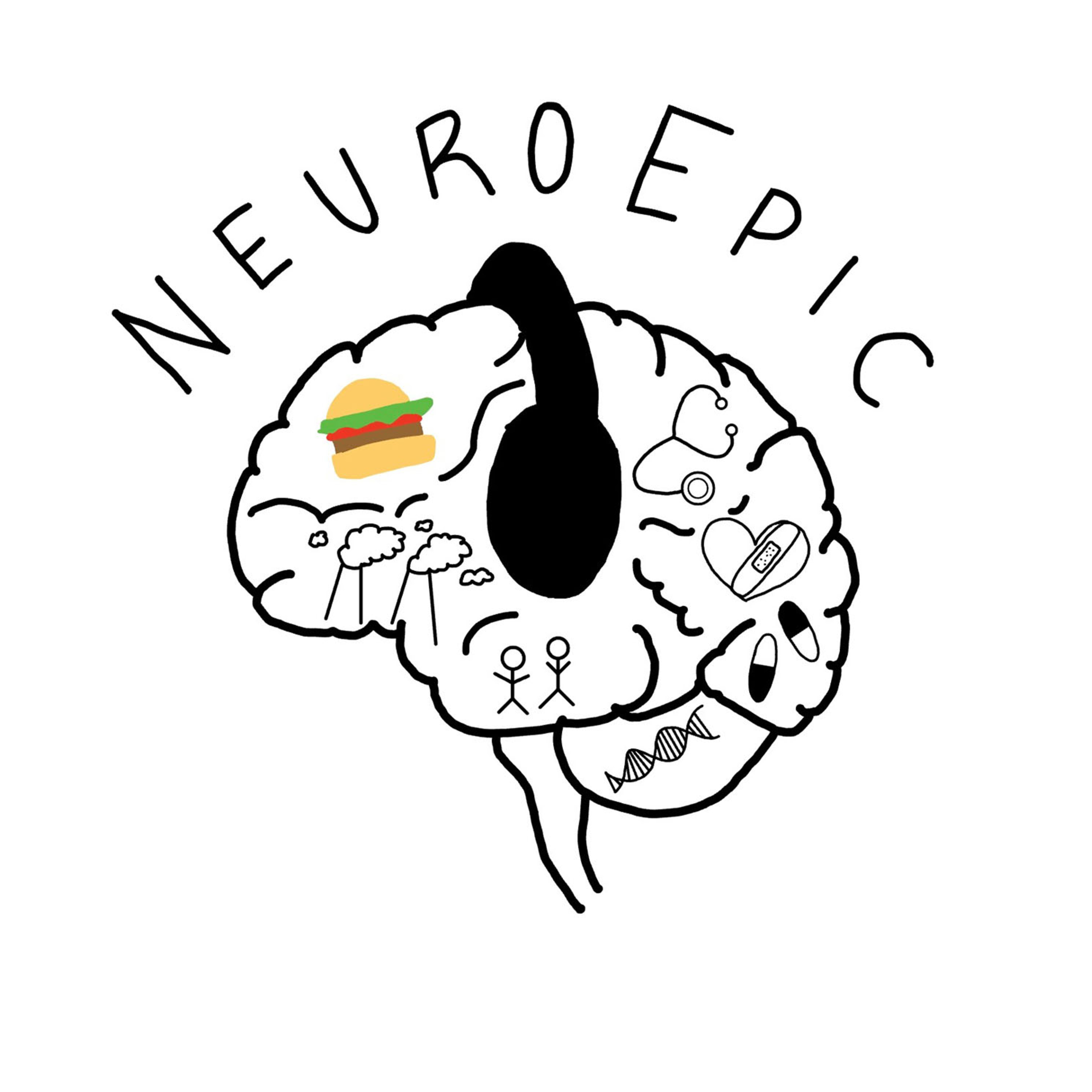 Neuroepic: Nature, Nurture, Food, Family, Brains54. Food Shortages: Ukrainians and Americans Need More Than Nutritional ReliefThe raging conflict in Ukraine is creating a humanitarian crisis through denial of food, water, and housing for those caught in the crossfire. Each day, thousands of people worldwide are added to a growing number of individuals facing food insecurity. Food insecurity is a widespread problem, even during peacetime. Families in the United States cannot afford consistent access to food. We must consider the psychological consequences of food insecurity, in addition to the physiological. The immediate victims are not the only ones affected, and their offspring will suffer from ailments tracing back to starvation.2022-09-1215 min
Neuroepic: Nature, Nurture, Food, Family, Brains54. Food Shortages: Ukrainians and Americans Need More Than Nutritional ReliefThe raging conflict in Ukraine is creating a humanitarian crisis through denial of food, water, and housing for those caught in the crossfire. Each day, thousands of people worldwide are added to a growing number of individuals facing food insecurity. Food insecurity is a widespread problem, even during peacetime. Families in the United States cannot afford consistent access to food. We must consider the psychological consequences of food insecurity, in addition to the physiological. The immediate victims are not the only ones affected, and their offspring will suffer from ailments tracing back to starvation.2022-09-1215 min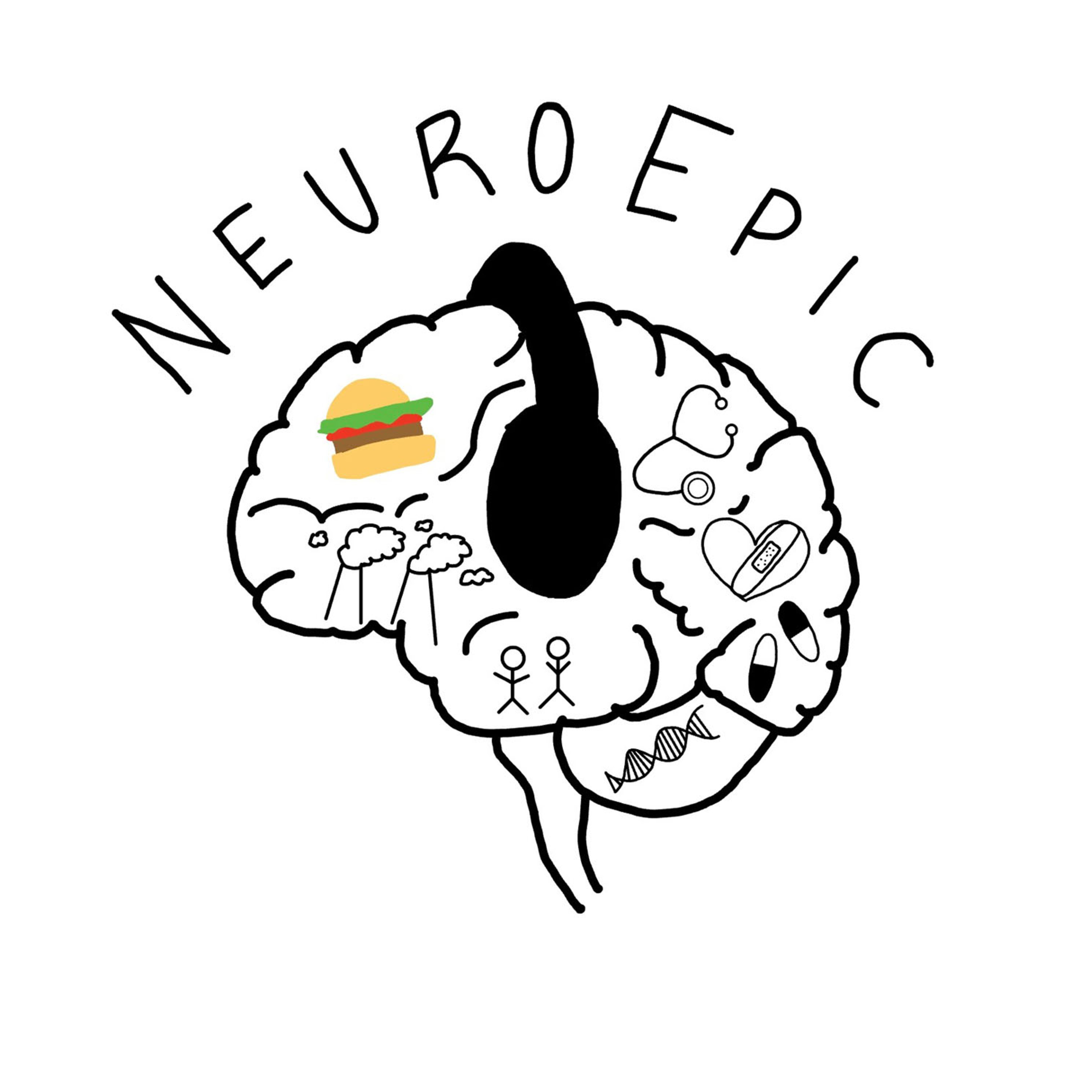 Neuroepic: Nature, Nurture, Food, Family, Brains53. Reimagining Epilepsy Care With FoodEpilepsy is a seizure disorder that affects about 3.4 million Americans. It is characterized by abnormal or hyperactive brain cell activity. Although the cause of epilepsy is not always known, certain forms of epilepsy are linked to genetic disorders, stroke, infection, and brain injury. Epilepsy is most commonly treated with medications, which reduce the probability of having a seizure. However, anti-seizure medications don’t work for everyone. Here, we investigate the keto diet and its potential health benefits. We interview patients, families, dietitians, and researchers to uncover the connection between food and epilepsy care.2022-09-1114 min
Neuroepic: Nature, Nurture, Food, Family, Brains53. Reimagining Epilepsy Care With FoodEpilepsy is a seizure disorder that affects about 3.4 million Americans. It is characterized by abnormal or hyperactive brain cell activity. Although the cause of epilepsy is not always known, certain forms of epilepsy are linked to genetic disorders, stroke, infection, and brain injury. Epilepsy is most commonly treated with medications, which reduce the probability of having a seizure. However, anti-seizure medications don’t work for everyone. Here, we investigate the keto diet and its potential health benefits. We interview patients, families, dietitians, and researchers to uncover the connection between food and epilepsy care.2022-09-1114 min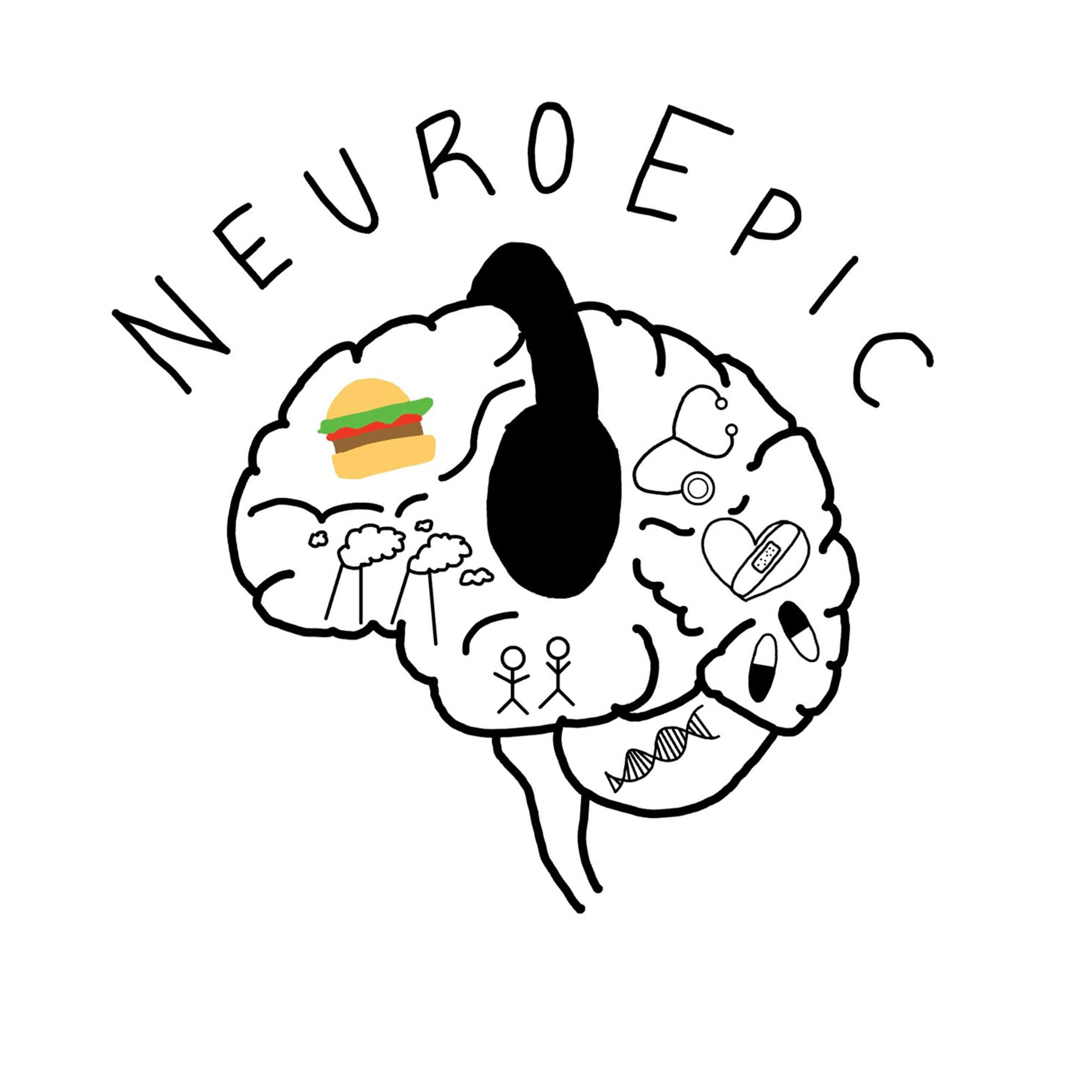 Neuroepic: Nature, Nurture, Food, Family, Brains52. Polyphenol Modulation of an Anti-Cancer Response“Next to water, tea is the most consumed beverage worldwide with approximately 20 billion cups consumed daily,” which is almost 2000 olympic swimming pools. Tea has long been a staple in the diets of individuals all over the world and has been heralded for its health benefits. Lots of people have a cup of tea when they are sick, and recent studies have shown that tea might be able to prevent cancer. Much of the research about the potential anti-cancer effects of tea has focused on chemicals called polyphenols, which are the major active compounds in tea and are also responsible for...2022-09-1014 min
Neuroepic: Nature, Nurture, Food, Family, Brains52. Polyphenol Modulation of an Anti-Cancer Response“Next to water, tea is the most consumed beverage worldwide with approximately 20 billion cups consumed daily,” which is almost 2000 olympic swimming pools. Tea has long been a staple in the diets of individuals all over the world and has been heralded for its health benefits. Lots of people have a cup of tea when they are sick, and recent studies have shown that tea might be able to prevent cancer. Much of the research about the potential anti-cancer effects of tea has focused on chemicals called polyphenols, which are the major active compounds in tea and are also responsible for...2022-09-1014 min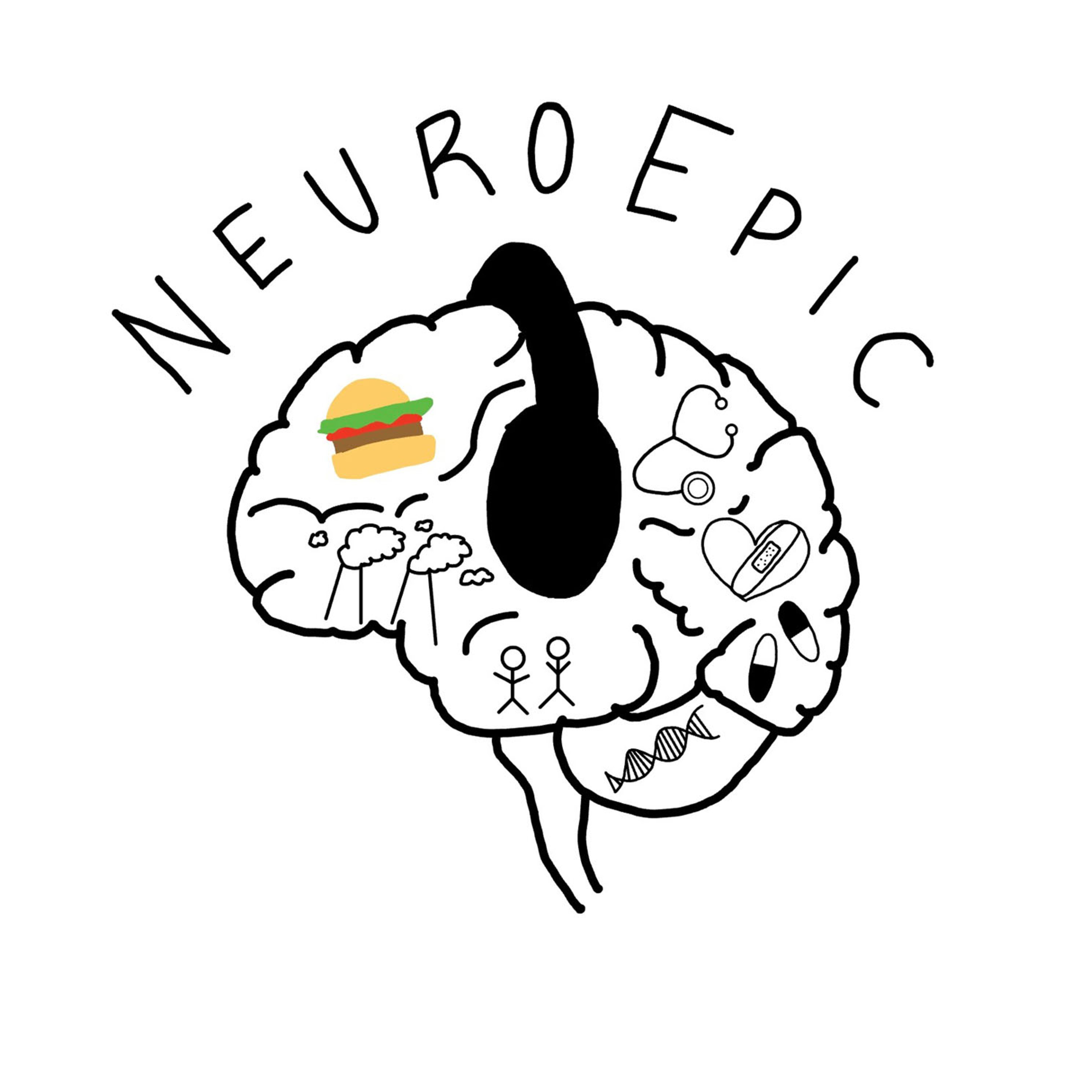 Neuroepic: Nature, Nurture, Food, Family, Brains51. "Personalized Nutrition" Is it Worth It?U.S. Olympic Swimmer Michael Phelps told ESPN that he eats between 8,000 and 10,000 calories a day. This is 4 times the amount of calories an average adult needs. Phelps must have a calorie-dense diet because of the large amount of calories he burns during high levels of physical activity he participates in when training and competing. University of Pittsburgh Director of Sports Nutrition Leslie Bonci, MPH, RD, estimated that, given his 6’4’’ height at 190lb build he would burn about 1,000 calories per hour when training. In comparison, the average adult does not do as much physical activity and therefore does not burn...2022-09-0911 min
Neuroepic: Nature, Nurture, Food, Family, Brains51. "Personalized Nutrition" Is it Worth It?U.S. Olympic Swimmer Michael Phelps told ESPN that he eats between 8,000 and 10,000 calories a day. This is 4 times the amount of calories an average adult needs. Phelps must have a calorie-dense diet because of the large amount of calories he burns during high levels of physical activity he participates in when training and competing. University of Pittsburgh Director of Sports Nutrition Leslie Bonci, MPH, RD, estimated that, given his 6’4’’ height at 190lb build he would burn about 1,000 calories per hour when training. In comparison, the average adult does not do as much physical activity and therefore does not burn...2022-09-0911 min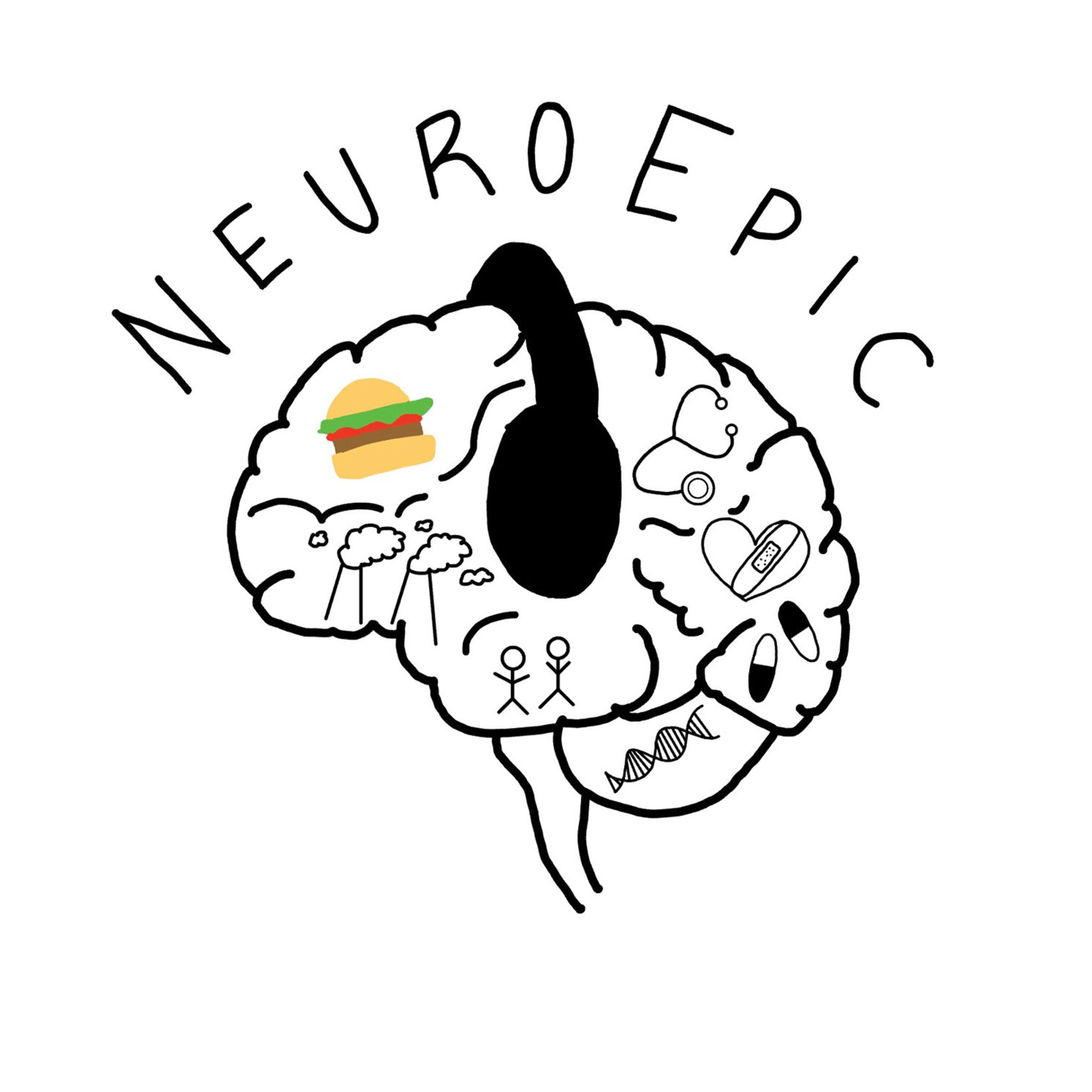 Neuroepic: Nature, Nurture, Food, Family, Brains50. Epigenetic Role of Folate in Maternal and Child HealthMany people understand that a healthy diet can contribute to good health, but people might be less aware of how their diet can impact their future child's health. Pregnancy is a very sensitive period in which the behavior and diet of a mother can leave a lasting impact on her child. For example, studies show that Israeli children have an 81% lower rate of peanut allergies than their Western counterparts. This trend might be due to the widespread consumption of a popular peanut-flavored snack called Bamba during pregnancy and early childhood. Studies also demonstrate that consumption of folate, also known...2022-09-0813 min
Neuroepic: Nature, Nurture, Food, Family, Brains50. Epigenetic Role of Folate in Maternal and Child HealthMany people understand that a healthy diet can contribute to good health, but people might be less aware of how their diet can impact their future child's health. Pregnancy is a very sensitive period in which the behavior and diet of a mother can leave a lasting impact on her child. For example, studies show that Israeli children have an 81% lower rate of peanut allergies than their Western counterparts. This trend might be due to the widespread consumption of a popular peanut-flavored snack called Bamba during pregnancy and early childhood. Studies also demonstrate that consumption of folate, also known...2022-09-0813 min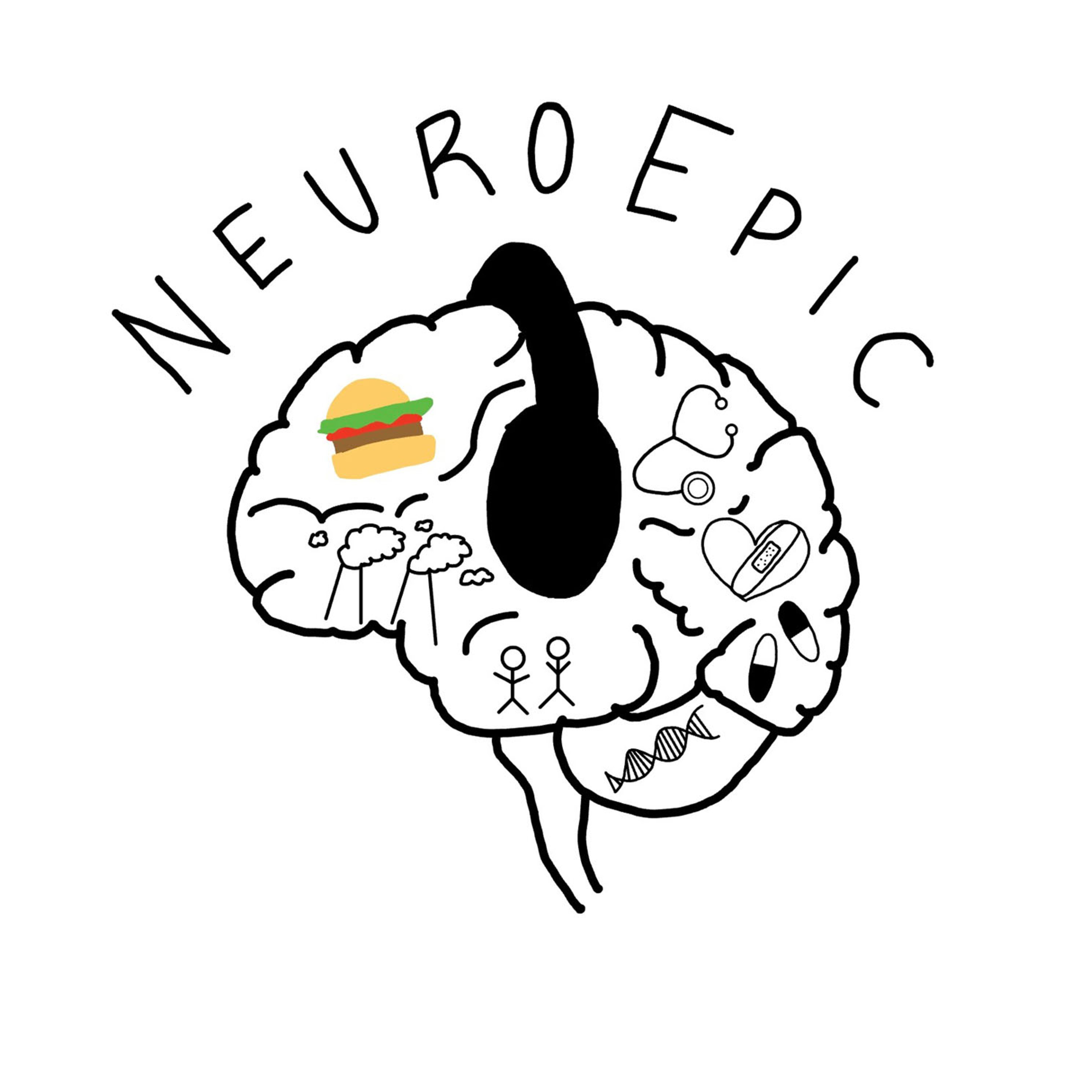 Neuroepic: Nature, Nurture, Food, Family, Brains49. Using Nutriepigenetics For the Treatment of Inflammatory DiseasesWhen I was younger, I was convinced my father was lying when he swore that salads made him sick, yet he could eat a ribeye-steak with no problem. It was comical then, but with age I learned that this was his harsh reality with Crohn’s Disease. Chronic Crohn’s Disease impacts half a million US individuals and is a heritable form of inflammatory bowel disease known to cause symptoms such as abdominal pain and weight loss. These symptoms can be managed with proper dietary restrictions, but the wide variability in both personal food-triggers and tolerance levels makes full trea...2022-09-0715 min
Neuroepic: Nature, Nurture, Food, Family, Brains49. Using Nutriepigenetics For the Treatment of Inflammatory DiseasesWhen I was younger, I was convinced my father was lying when he swore that salads made him sick, yet he could eat a ribeye-steak with no problem. It was comical then, but with age I learned that this was his harsh reality with Crohn’s Disease. Chronic Crohn’s Disease impacts half a million US individuals and is a heritable form of inflammatory bowel disease known to cause symptoms such as abdominal pain and weight loss. These symptoms can be managed with proper dietary restrictions, but the wide variability in both personal food-triggers and tolerance levels makes full trea...2022-09-0715 min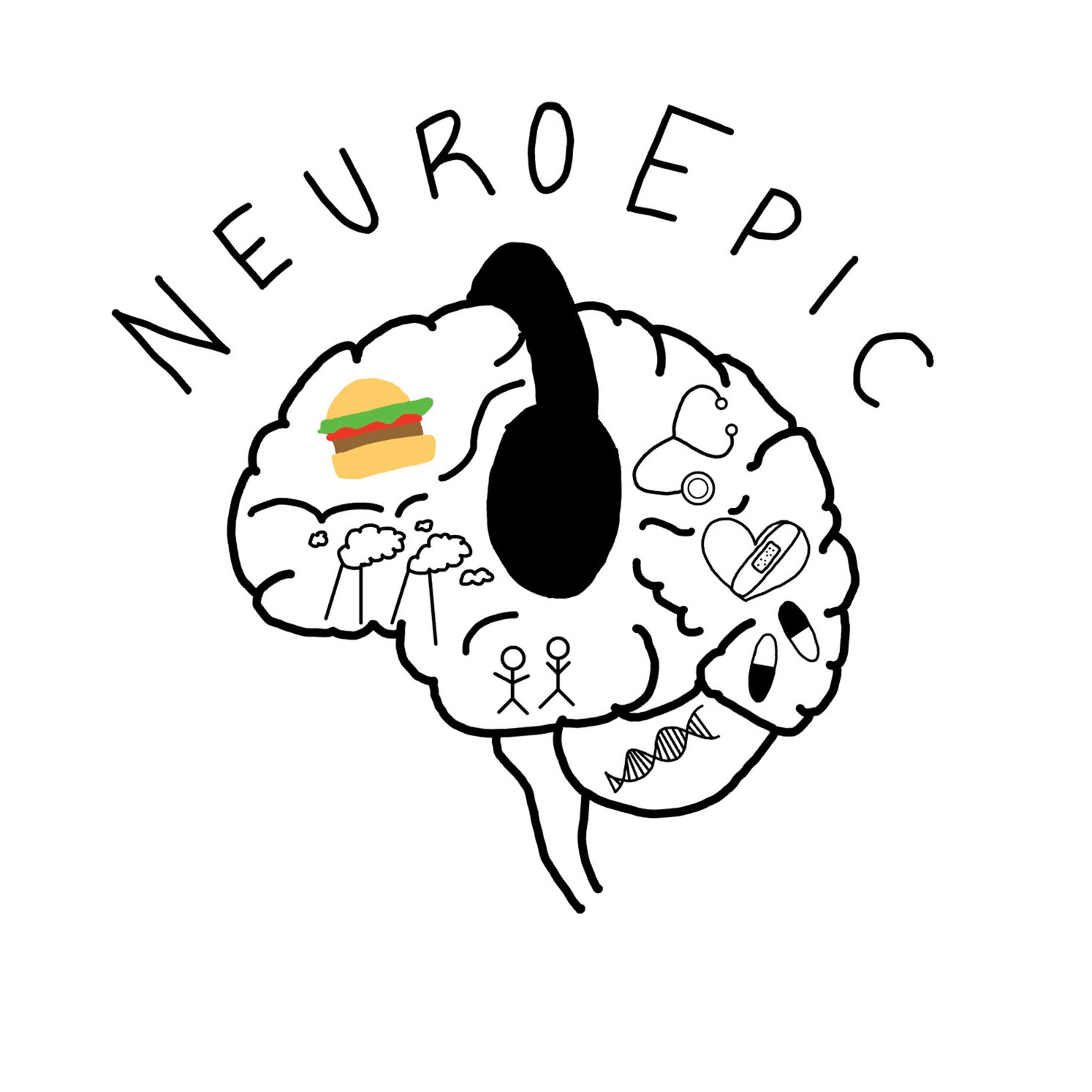 Neuroepic: Nature, Nurture, Food, Family, Brains48. Nutri-epigenetics, Anxiety, and DepressionMany of us have heard that taking care of one’s body is vital not only for physical health, but also for mental wellbeing. The supposed connection is that if the person has a healthy body then their mental health will follow suit. And how exactly does one take care of their body? The three most commonly suggested methods of caring for one’s body are sleeping well, exercising, and eating. However, there is some natural ambiguity when trying to identify any of those three aspects of physical health as being a potential causal factor for positive mental health, or i...2022-09-0622 min
Neuroepic: Nature, Nurture, Food, Family, Brains48. Nutri-epigenetics, Anxiety, and DepressionMany of us have heard that taking care of one’s body is vital not only for physical health, but also for mental wellbeing. The supposed connection is that if the person has a healthy body then their mental health will follow suit. And how exactly does one take care of their body? The three most commonly suggested methods of caring for one’s body are sleeping well, exercising, and eating. However, there is some natural ambiguity when trying to identify any of those three aspects of physical health as being a potential causal factor for positive mental health, or i...2022-09-0622 min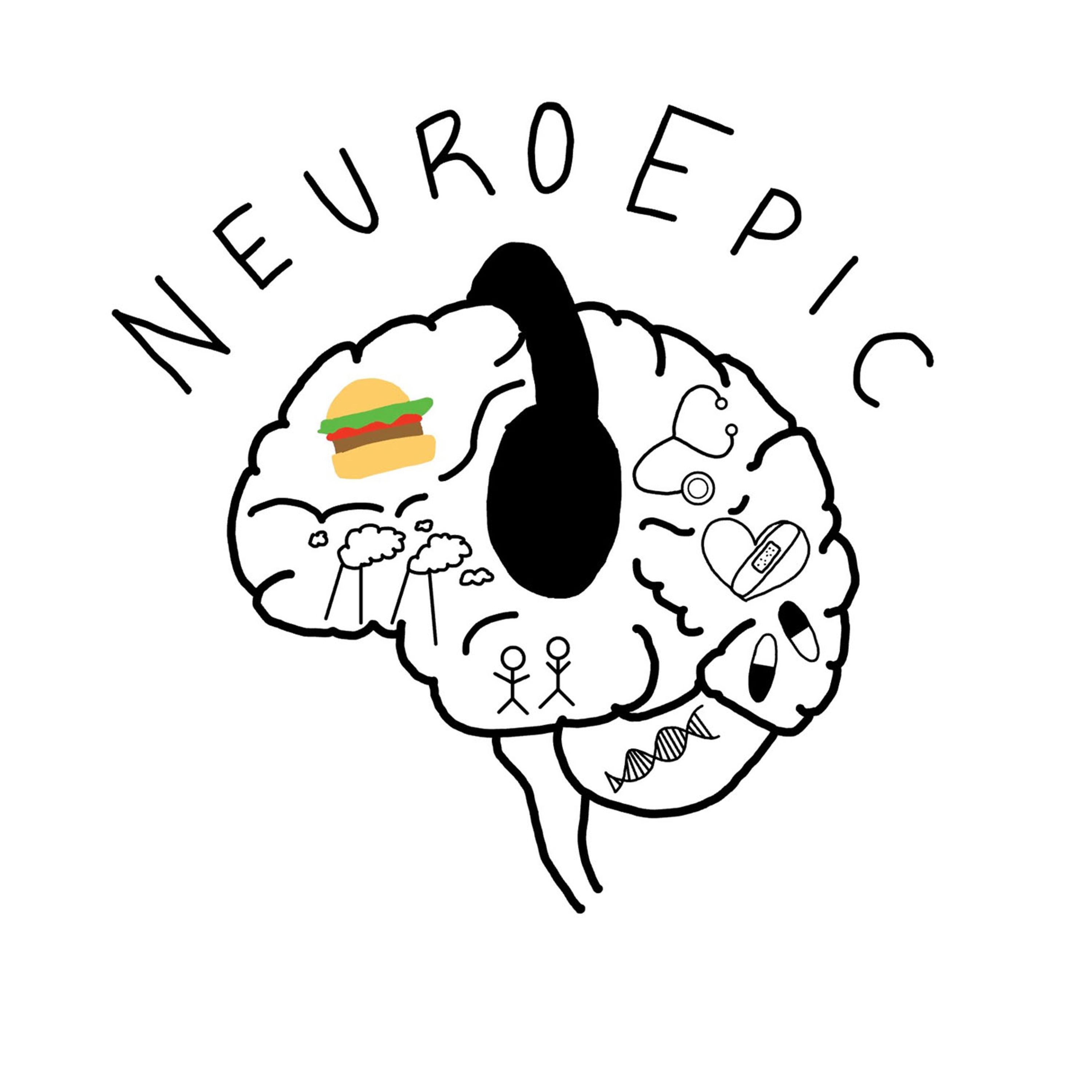 Neuroepic: Nature, Nurture, Food, Family, Brains47. Changing the Narrative on Food: How Our Diet Can Change Our GenesFood is at the center of our everyday lives. We use it to fuel our bodies, to socialize and connect with others, even as a way to earn money! We all have some idea of which foods are “healthy” and which are not. The foods that make our taste buds dance when they hit our tongue and those that make our face scrunch and eyes water. What is happening on the cellular level when we eat a steak compared to when we eat broccoli? How does what we eat make us more or less susceptible to disease? The answers to t...2022-09-0514 min
Neuroepic: Nature, Nurture, Food, Family, Brains47. Changing the Narrative on Food: How Our Diet Can Change Our GenesFood is at the center of our everyday lives. We use it to fuel our bodies, to socialize and connect with others, even as a way to earn money! We all have some idea of which foods are “healthy” and which are not. The foods that make our taste buds dance when they hit our tongue and those that make our face scrunch and eyes water. What is happening on the cellular level when we eat a steak compared to when we eat broccoli? How does what we eat make us more or less susceptible to disease? The answers to t...2022-09-0514 min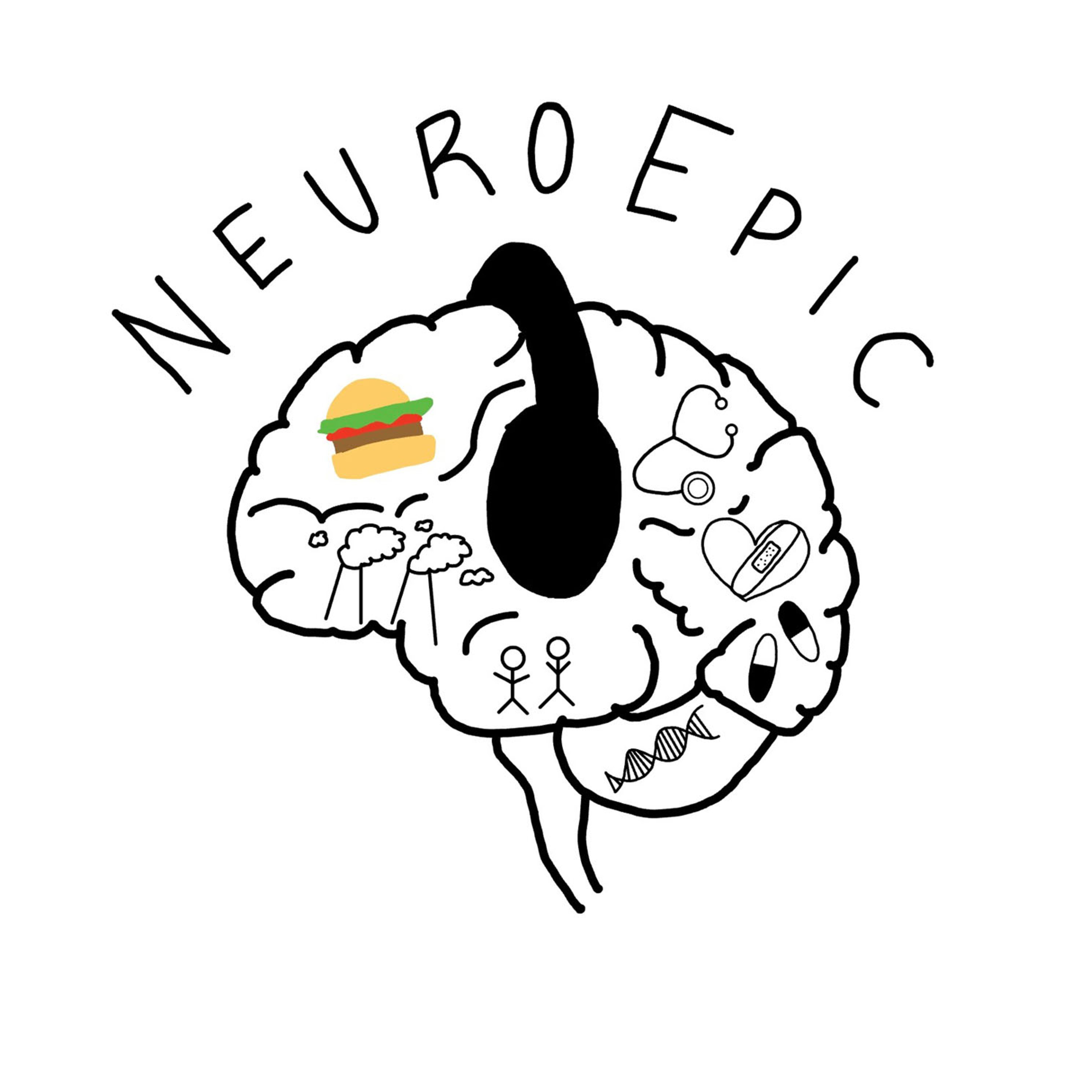 Neuroepic: Nature, Nurture, Food, Family, Brains46. Nature, Nurture, and Nutrition: Epigenetics of Child DevelopmentThere’s a constant debate between nature and nurture. Is it because of my genes that I behave the way I do, or is it because of my environment, like the foods I eat and the places I live? This is a question on the minds of many reflecting on their health, especially for parents concerned for the health of their children. Nutrition is essential for child development, but not only for building strong bones. Nutrition is critical for strong brain development, particularly learning and memory, from conception to adolescence.2022-09-0410 min
Neuroepic: Nature, Nurture, Food, Family, Brains46. Nature, Nurture, and Nutrition: Epigenetics of Child DevelopmentThere’s a constant debate between nature and nurture. Is it because of my genes that I behave the way I do, or is it because of my environment, like the foods I eat and the places I live? This is a question on the minds of many reflecting on their health, especially for parents concerned for the health of their children. Nutrition is essential for child development, but not only for building strong bones. Nutrition is critical for strong brain development, particularly learning and memory, from conception to adolescence.2022-09-0410 min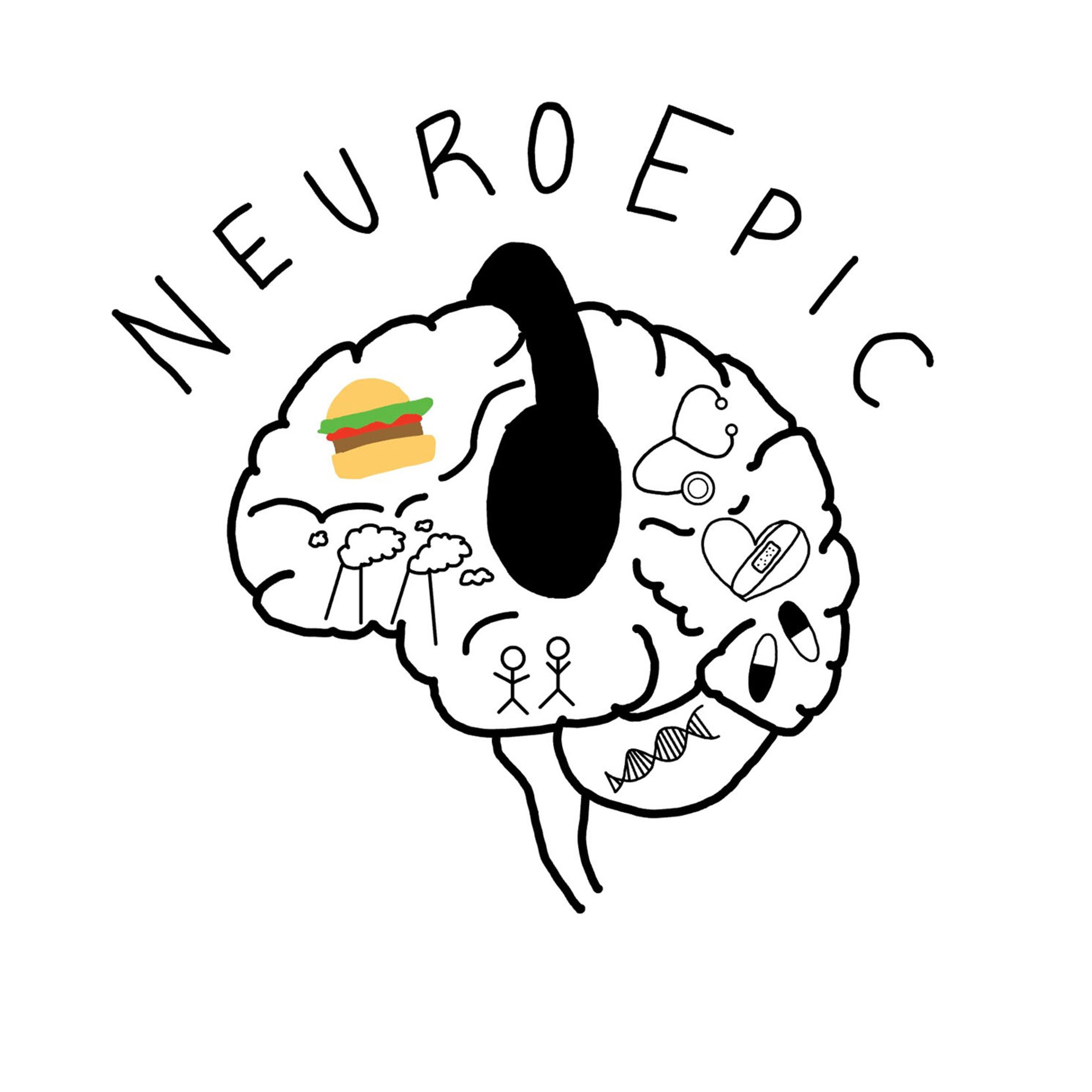 Neuroepic: Nature, Nurture, Food, Family, Brains45. The Food-Based Genetics Behind Colorectal CancerThere are a lot of delicious foods in the world: from a hot bowl of noodle soup on a cold day to a breakfast sandwich and a coffee in the morning. You have probably thought about how what you eat impacts your predisposition to acquire various diseases. But what about your predisposition to develop cancer, specifically? All of the foods that we eat have an impact on our bodily functions, including how our genes are expressed and regulated. The means by which this happens is what the field of nutriepigentics aims to uncover.2022-09-0317 min
Neuroepic: Nature, Nurture, Food, Family, Brains45. The Food-Based Genetics Behind Colorectal CancerThere are a lot of delicious foods in the world: from a hot bowl of noodle soup on a cold day to a breakfast sandwich and a coffee in the morning. You have probably thought about how what you eat impacts your predisposition to acquire various diseases. But what about your predisposition to develop cancer, specifically? All of the foods that we eat have an impact on our bodily functions, including how our genes are expressed and regulated. The means by which this happens is what the field of nutriepigentics aims to uncover.2022-09-0317 min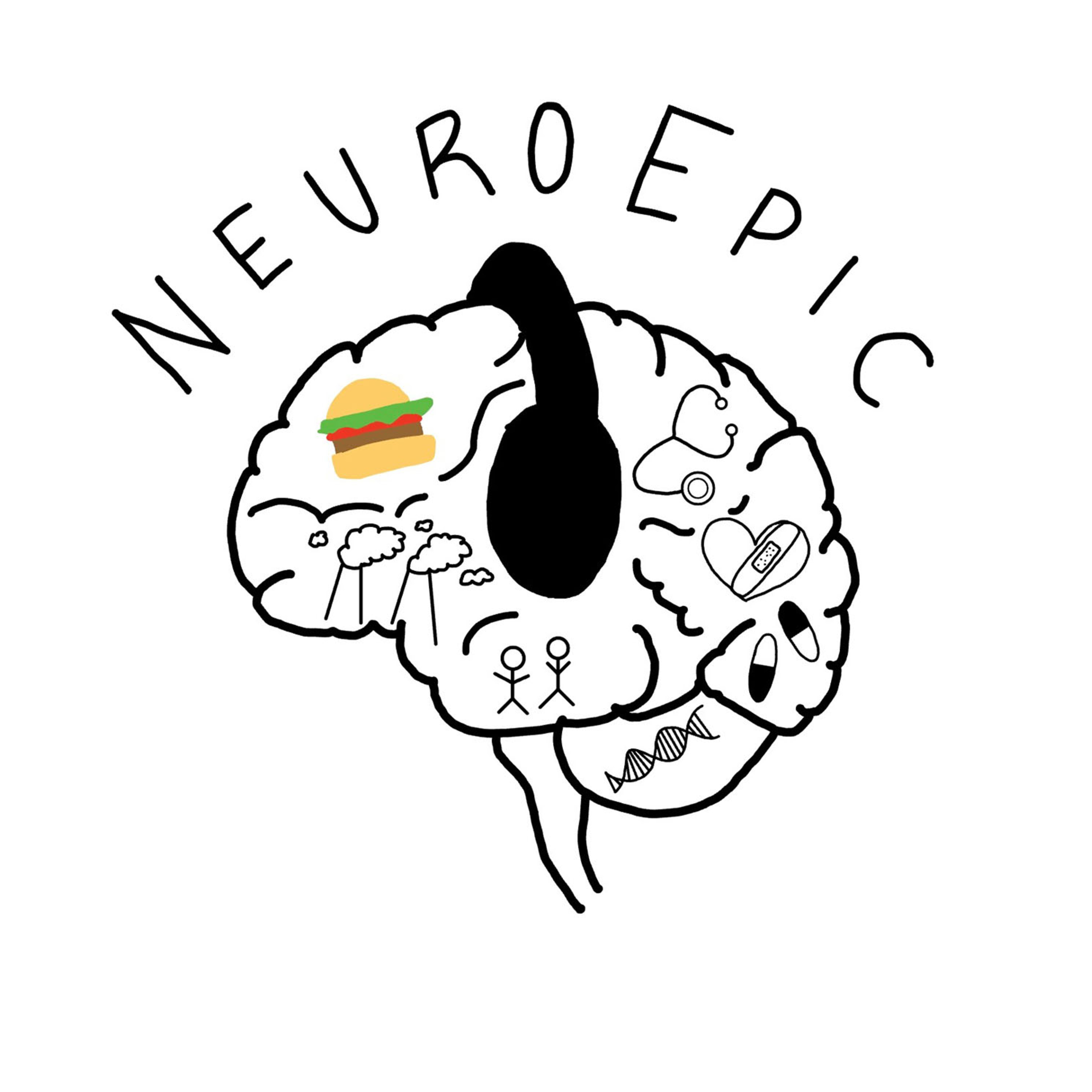 Neuroepic: Nature, Nurture, Food, Family, Brains44. The Role of Nutri-Epigenetics on Circadian RhythmsImagine turning off your daily alarm, and refraining from that afternoon cup of coffee to keep you awake after you start to feel tired. Imagine yourself with no ensuing assignment deadline, or 5am task awaiting you, filling you with fear or excitement. Now you may wonder, how exactly would we wake up without a blaring phone or how would we fall asleep without exhausting our bodies nearly to the breaking point every night. Our bodies are actually much more complex than we think. Imagine the instructions to build and maintain our bodies are compiled into a book – a very lo...2022-09-0216 min
Neuroepic: Nature, Nurture, Food, Family, Brains44. The Role of Nutri-Epigenetics on Circadian RhythmsImagine turning off your daily alarm, and refraining from that afternoon cup of coffee to keep you awake after you start to feel tired. Imagine yourself with no ensuing assignment deadline, or 5am task awaiting you, filling you with fear or excitement. Now you may wonder, how exactly would we wake up without a blaring phone or how would we fall asleep without exhausting our bodies nearly to the breaking point every night. Our bodies are actually much more complex than we think. Imagine the instructions to build and maintain our bodies are compiled into a book – a very lo...2022-09-0216 min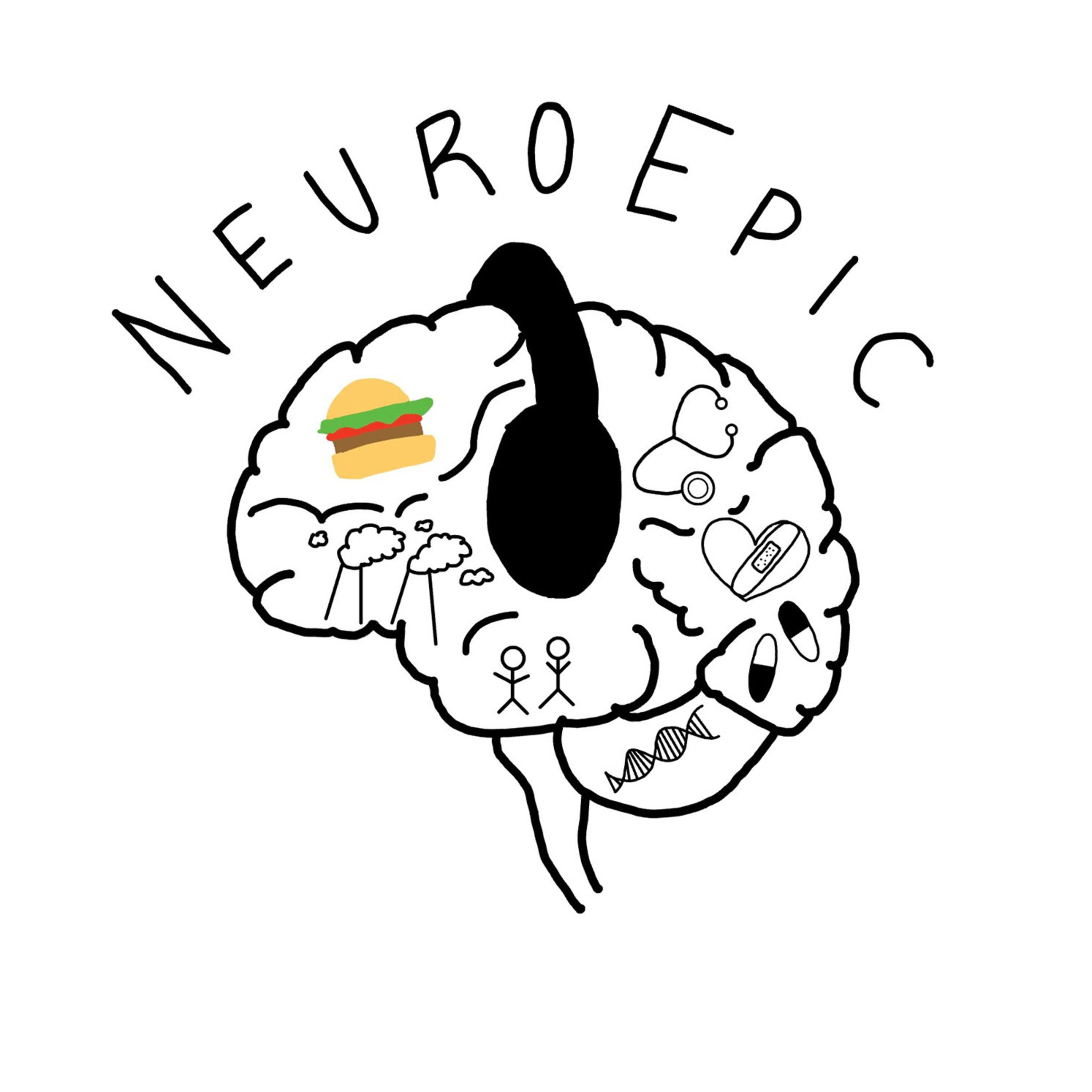 Neuroepic: Nature, Nurture, Food, Family, Brains43. "Cure"-Cumin for Colon CancerAlongside the green matcha lattes and swirly chai lattes, a new, trendy, favorite has been added to coffee shop menus: golden lattes. These yellow lattes feature a special ingredient that gives them their warm hue: turmeric. As daughters of Indian immigrant parents, turmeric is quite a familiar ingredient. It is a staple in the Indian kitchen that is frequently used in many home remedies. In fact, in Ayurveda (Indian natural medicine) and ancient Chinese medicine, turmeric is a popular ingredient for various remedies ranging from digestive issues to healthier skin. Recent scientific studies are now beginning to validate and...2022-09-0115 min
Neuroepic: Nature, Nurture, Food, Family, Brains43. "Cure"-Cumin for Colon CancerAlongside the green matcha lattes and swirly chai lattes, a new, trendy, favorite has been added to coffee shop menus: golden lattes. These yellow lattes feature a special ingredient that gives them their warm hue: turmeric. As daughters of Indian immigrant parents, turmeric is quite a familiar ingredient. It is a staple in the Indian kitchen that is frequently used in many home remedies. In fact, in Ayurveda (Indian natural medicine) and ancient Chinese medicine, turmeric is a popular ingredient for various remedies ranging from digestive issues to healthier skin. Recent scientific studies are now beginning to validate and...2022-09-0115 min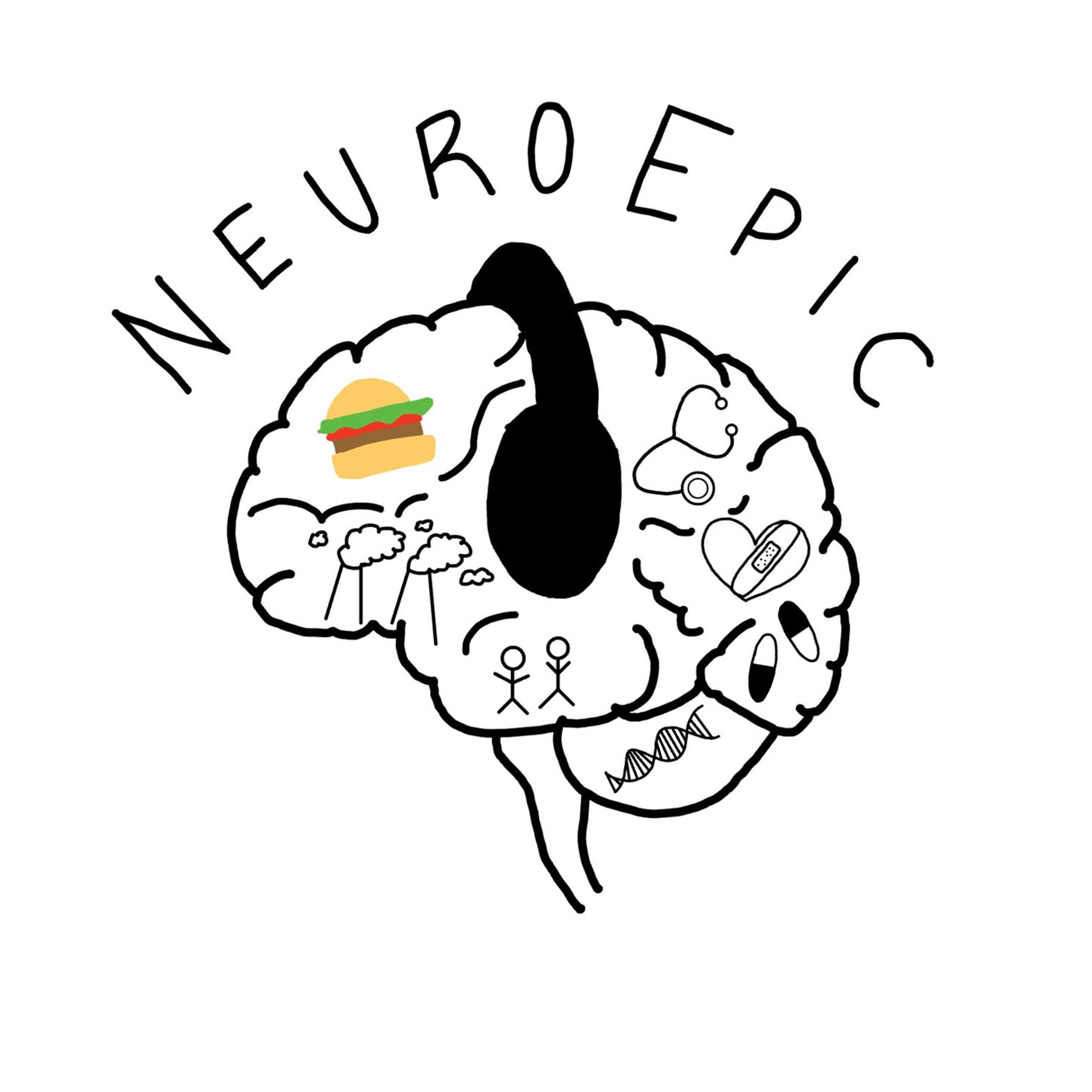 Neuroepic: Nature, Nurture, Food, Family, Brains42. Deja Food: the Epigenetics of Taste AversionWhen growing up, there are many new experiences that shape your likes and dislikes long into the future. One of the big factors is food. When you have a bad experience with a certain food or type of food, it changes the expression of your genes. Whether fish gave you food poisoning or you got sick with the flu after eating lasagna, that experience can stay with you for a long time and affect how you feel about tastes and smells. This is just one example of the way that our day to day lives can actually make changes to our...2022-08-1415 min
Neuroepic: Nature, Nurture, Food, Family, Brains42. Deja Food: the Epigenetics of Taste AversionWhen growing up, there are many new experiences that shape your likes and dislikes long into the future. One of the big factors is food. When you have a bad experience with a certain food or type of food, it changes the expression of your genes. Whether fish gave you food poisoning or you got sick with the flu after eating lasagna, that experience can stay with you for a long time and affect how you feel about tastes and smells. This is just one example of the way that our day to day lives can actually make changes to our...2022-08-1415 min Neuroepic: Nature, Nurture, Food, Family, Brains41. Machine Learning and the Future of Epigenetic ResearchThe technological advancements of the last several decades has far outpaced that of centuries prior, nothing more so than the introduction of the computer which has revolutionized fields the world over, including scientific research. From this innovation, tools including the varieties of software programs, modeling of phenomena, automation of repetitive tasks, and ever more capabilities have sprouted. One of the more recent additions to the researcher’s toolkit has been introduced through the growing field of machine learning. Now it is possible to perform concrete data analysis on what previously would have been impossibly large datasets, that would have required pa...2022-08-1314 min
Neuroepic: Nature, Nurture, Food, Family, Brains41. Machine Learning and the Future of Epigenetic ResearchThe technological advancements of the last several decades has far outpaced that of centuries prior, nothing more so than the introduction of the computer which has revolutionized fields the world over, including scientific research. From this innovation, tools including the varieties of software programs, modeling of phenomena, automation of repetitive tasks, and ever more capabilities have sprouted. One of the more recent additions to the researcher’s toolkit has been introduced through the growing field of machine learning. Now it is possible to perform concrete data analysis on what previously would have been impossibly large datasets, that would have required pa...2022-08-1314 min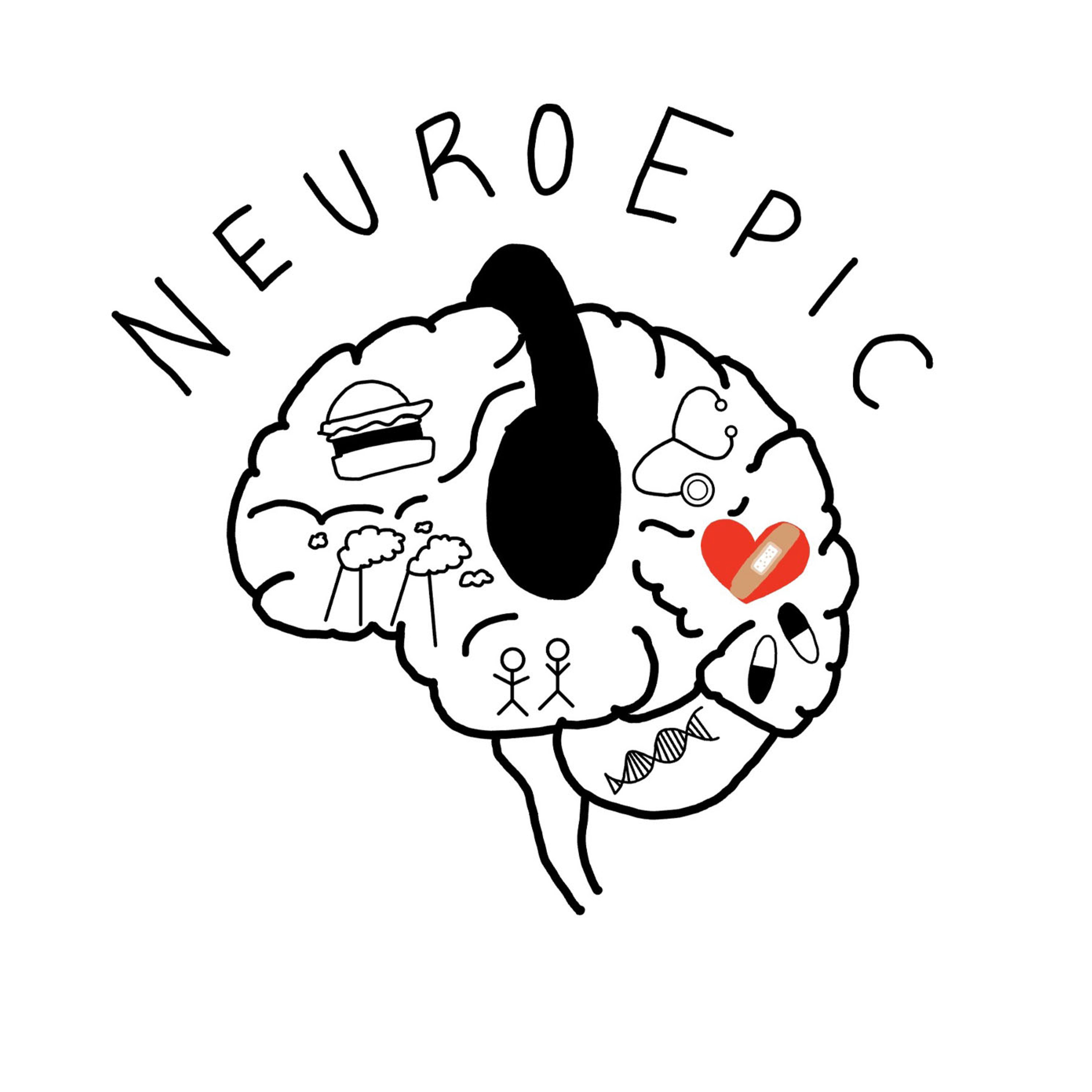 Neuroepic: Nature, Nurture, Food, Family, Brains40. The Significance of microRNA in Irritable Bowel SyndromeEach year in the United States, there are 200,000 cases of Irritable Bowel Syndrome. It’s estimated that 10-15 percent of the adult population suffers from IBS symptoms, making nearly 35 million people subject to abdominal pain with no apparent cause. The origins of IBS are still unknown, and research has yet to determine why and how a particular person may develop this syndrome. If you are not already familiar with Irritable Bowel Syndrome, it is a gastrointestinal disease commonly associated with chronic symptoms such as abdominal pain, constipation, diarrhea, and bloating. Flare-ups of IBS can have disastrous consequences for those af...2022-08-1209 min
Neuroepic: Nature, Nurture, Food, Family, Brains40. The Significance of microRNA in Irritable Bowel SyndromeEach year in the United States, there are 200,000 cases of Irritable Bowel Syndrome. It’s estimated that 10-15 percent of the adult population suffers from IBS symptoms, making nearly 35 million people subject to abdominal pain with no apparent cause. The origins of IBS are still unknown, and research has yet to determine why and how a particular person may develop this syndrome. If you are not already familiar with Irritable Bowel Syndrome, it is a gastrointestinal disease commonly associated with chronic symptoms such as abdominal pain, constipation, diarrhea, and bloating. Flare-ups of IBS can have disastrous consequences for those af...2022-08-1209 min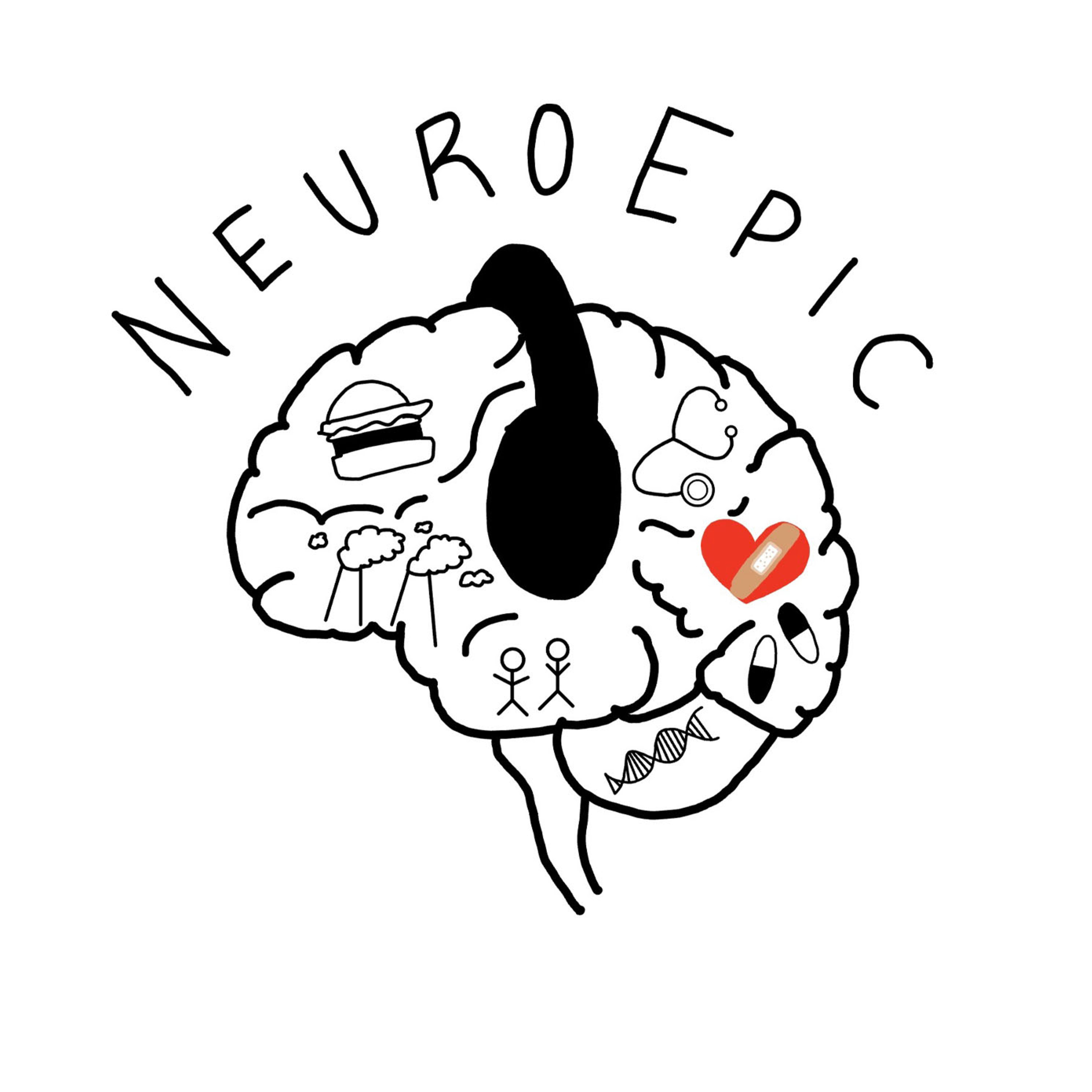 Neuroepic: Nature, Nurture, Food, Family, Brains39. How to Make the Killer Glioblastoma Cookie Recpie EdibleChad Carr, the grandson of a famous University of Michigan football coach, Lloyd Carr, died of a brain tumor at the age of 5. With a bad fall and a suspected concussion, doctors ran a CT scan to discover an inoperable brain tumor called diffuse intrinsic pontine glioma (DIPG). As Carr fought hard, his family virtually made DIPG known internationally: #ChadTough. Through this spread of awareness, the University of Michigan Chad Carr Pediatric Brain Tumor Center was able to be established (Michigan Medicine). Another case, Senator John McCain, a war hero, a U.S. senator, and a 2008 presidential candidate, died...2022-08-1116 min
Neuroepic: Nature, Nurture, Food, Family, Brains39. How to Make the Killer Glioblastoma Cookie Recpie EdibleChad Carr, the grandson of a famous University of Michigan football coach, Lloyd Carr, died of a brain tumor at the age of 5. With a bad fall and a suspected concussion, doctors ran a CT scan to discover an inoperable brain tumor called diffuse intrinsic pontine glioma (DIPG). As Carr fought hard, his family virtually made DIPG known internationally: #ChadTough. Through this spread of awareness, the University of Michigan Chad Carr Pediatric Brain Tumor Center was able to be established (Michigan Medicine). Another case, Senator John McCain, a war hero, a U.S. senator, and a 2008 presidential candidate, died...2022-08-1116 min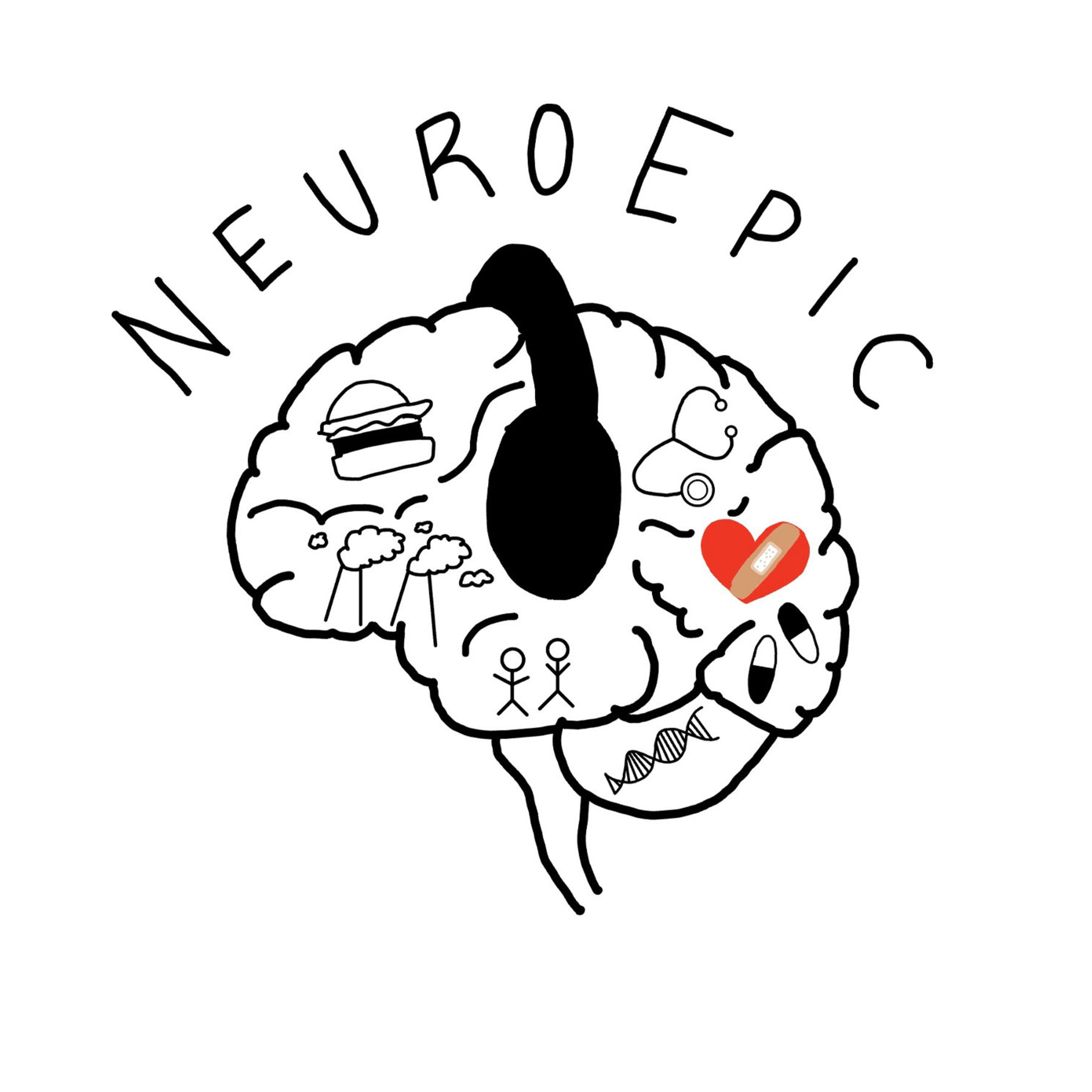 Neuroepic: Nature, Nurture, Food, Family, Brains38. Epigenetics on the Spectrum: The Epigenetics of AutismImagine if your memory was so good, you could learn to speak a whole language fluently in a week. This is the case for Daniel Tammet, an extraordinary individual who can speak 11 languages, including Icelandic which he was challenged to learn in just seven days. Daniel is considered an autistic savant, and in addition to being exceptionally gifted with language and numbers, he suffers from Asperger Syndrome, a milder form of autism. In contrast to Daniel, some individuals who live with autism spectrum disorder (ASD) never develop any linguistic ability at all and must navigate the world unable to...2022-08-1015 min
Neuroepic: Nature, Nurture, Food, Family, Brains38. Epigenetics on the Spectrum: The Epigenetics of AutismImagine if your memory was so good, you could learn to speak a whole language fluently in a week. This is the case for Daniel Tammet, an extraordinary individual who can speak 11 languages, including Icelandic which he was challenged to learn in just seven days. Daniel is considered an autistic savant, and in addition to being exceptionally gifted with language and numbers, he suffers from Asperger Syndrome, a milder form of autism. In contrast to Daniel, some individuals who live with autism spectrum disorder (ASD) never develop any linguistic ability at all and must navigate the world unable to...2022-08-1015 min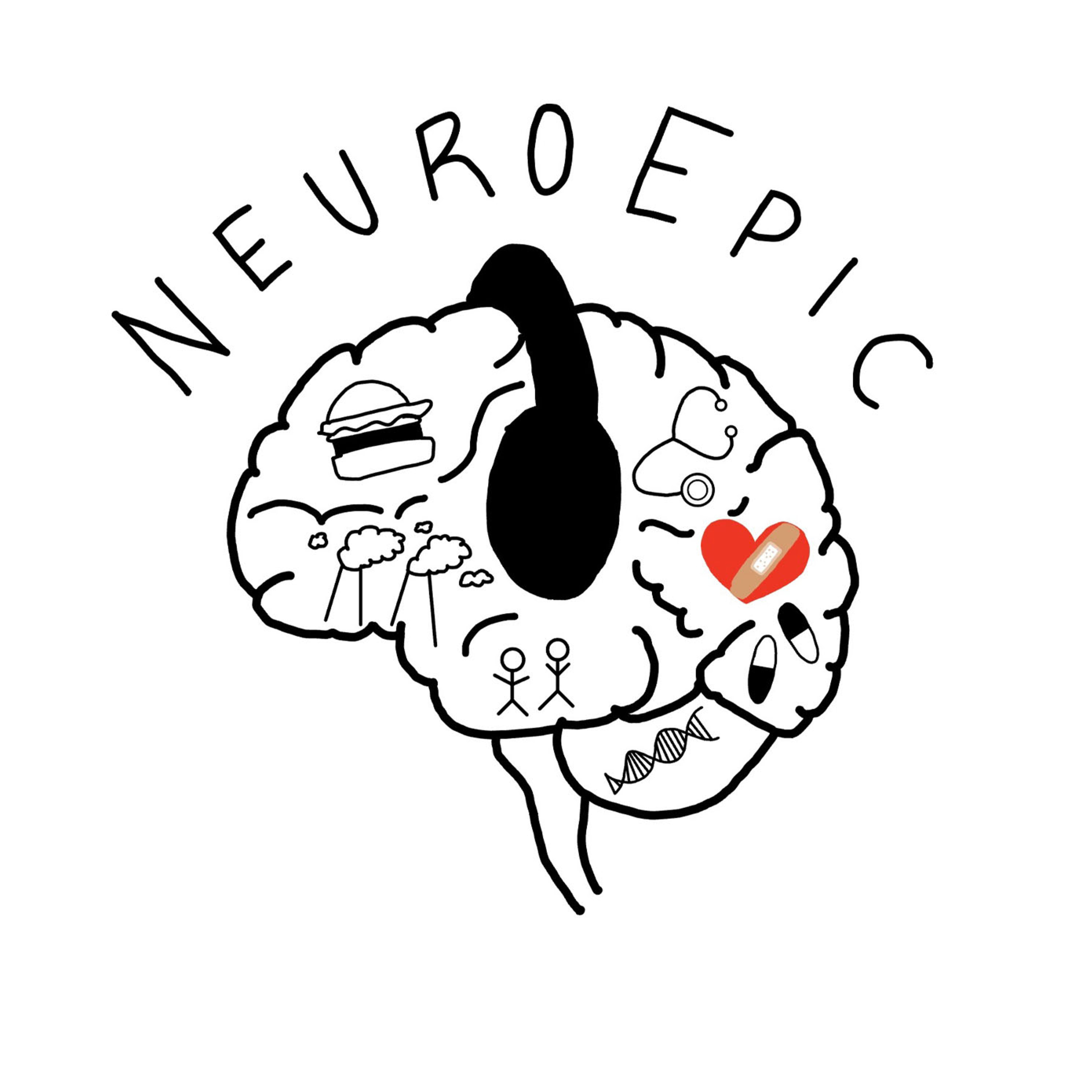 Neuroepic: Nature, Nurture, Food, Family, Brains37. Neuroepigenetics of Alzheimer'sThere are some genetic factors that researchers have identified in possibly playing a role in the development of AD. The apolipoprotein (APOE) gene, which plays a role in cholesterol transport has been shown to be linked with AD. There are 3 forms or alleles of this gene, e2, e3, and e4, and one allele is inherited from each parent resulting in six possible outcomes. For example, inheriting an e4 allele of this gene may increase one’s risk of developing AD, while the e2 form may lower one’s risk. Several studies have been conducted to determine the frequency of thes...2022-08-0910 min
Neuroepic: Nature, Nurture, Food, Family, Brains37. Neuroepigenetics of Alzheimer'sThere are some genetic factors that researchers have identified in possibly playing a role in the development of AD. The apolipoprotein (APOE) gene, which plays a role in cholesterol transport has been shown to be linked with AD. There are 3 forms or alleles of this gene, e2, e3, and e4, and one allele is inherited from each parent resulting in six possible outcomes. For example, inheriting an e4 allele of this gene may increase one’s risk of developing AD, while the e2 form may lower one’s risk. Several studies have been conducted to determine the frequency of thes...2022-08-0910 min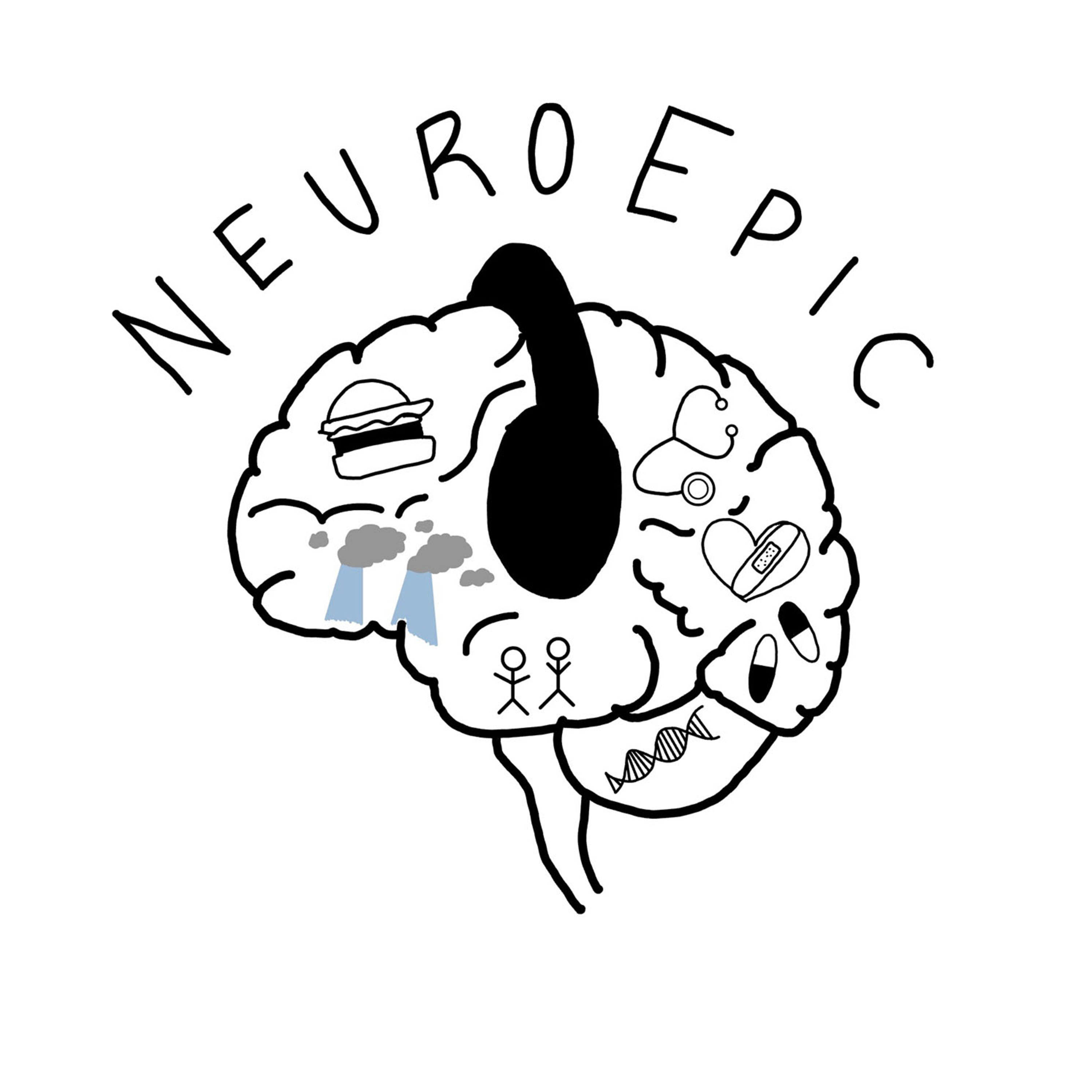 Neuroepic: Nature, Nurture, Food, Family, Brains36. Neuroepigenetics of Physical Exercise: Whipping Your Genes into ShapeImagine telling people that there is a magic health pill that if they take once a day, they could be the most physically and mentally healthiest version of themselves. They could toss aside their sleeping pills, diet supplements, plans for liposuction, nootropics, and even some prescription medicines for blood pressure, cholesterol, and vascular health. In addition to these physiological benefits, this magic pill would also help improve cognitive function, be one of the best preventative measures for diseases, and improve overall longevity and mental well-being. Now, imagine telling people that this pill is free and has essentially no side effects...2022-08-0912 min
Neuroepic: Nature, Nurture, Food, Family, Brains36. Neuroepigenetics of Physical Exercise: Whipping Your Genes into ShapeImagine telling people that there is a magic health pill that if they take once a day, they could be the most physically and mentally healthiest version of themselves. They could toss aside their sleeping pills, diet supplements, plans for liposuction, nootropics, and even some prescription medicines for blood pressure, cholesterol, and vascular health. In addition to these physiological benefits, this magic pill would also help improve cognitive function, be one of the best preventative measures for diseases, and improve overall longevity and mental well-being. Now, imagine telling people that this pill is free and has essentially no side effects...2022-08-0912 min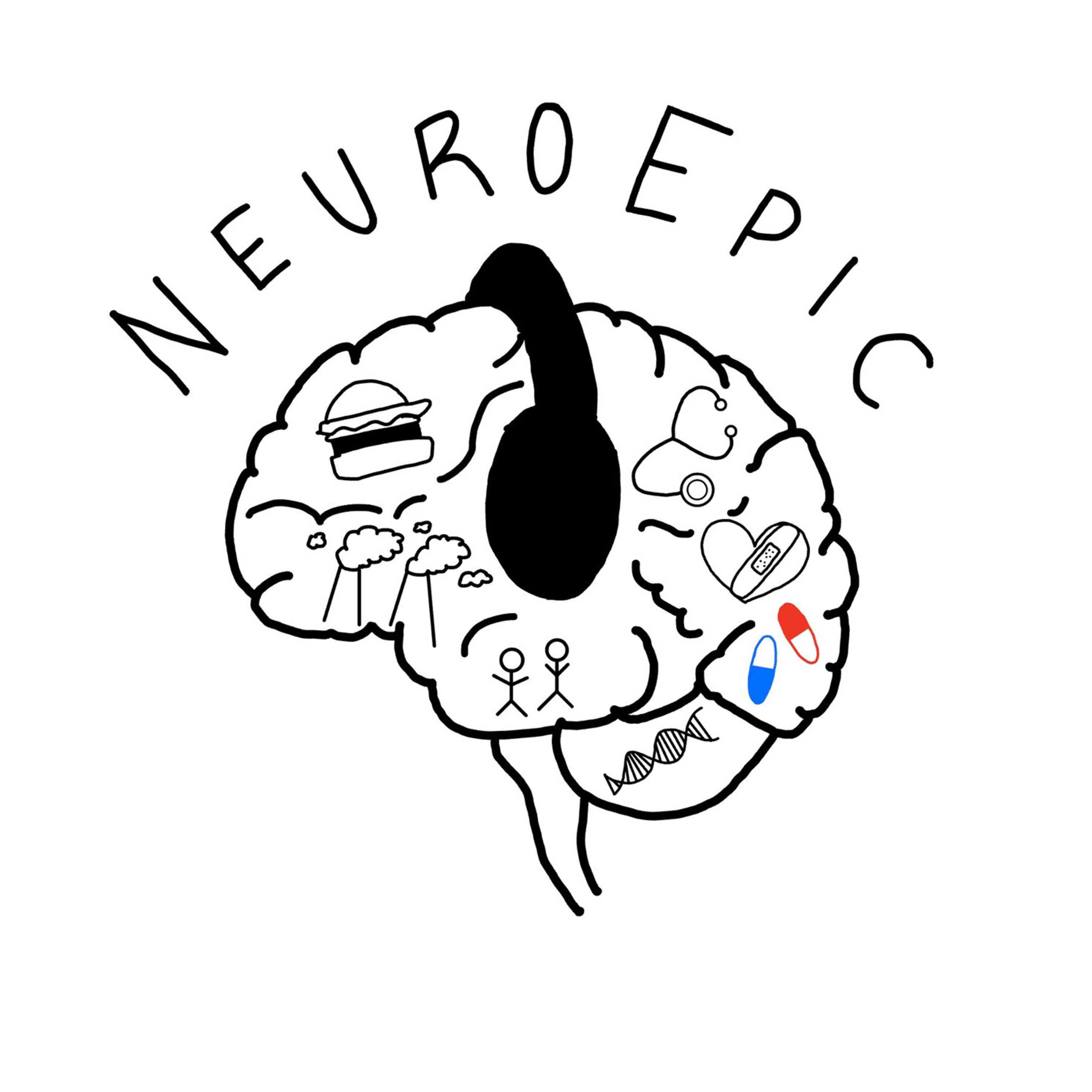 Neuroepic: Nature, Nurture, Food, Family, Brains35. Nicotine: the Crown JUUL of Your Child's Developmental ImpairmentVaping has become a quickly growing epidemic among teens in America, with over 25% of all high school students having used a vape in the past month in 2019 – an increase of more than 1800% the rate in 2011. Rates have similarly jumped among middle schoolers, rising from 0.6% reporting using an e-cigarette in the past month in 2011 to 10.5% in 20192. While the use of these products is growing, especially among youth, no long-term effects are known.2022-08-0816 min
Neuroepic: Nature, Nurture, Food, Family, Brains35. Nicotine: the Crown JUUL of Your Child's Developmental ImpairmentVaping has become a quickly growing epidemic among teens in America, with over 25% of all high school students having used a vape in the past month in 2019 – an increase of more than 1800% the rate in 2011. Rates have similarly jumped among middle schoolers, rising from 0.6% reporting using an e-cigarette in the past month in 2011 to 10.5% in 20192. While the use of these products is growing, especially among youth, no long-term effects are known.2022-08-0816 min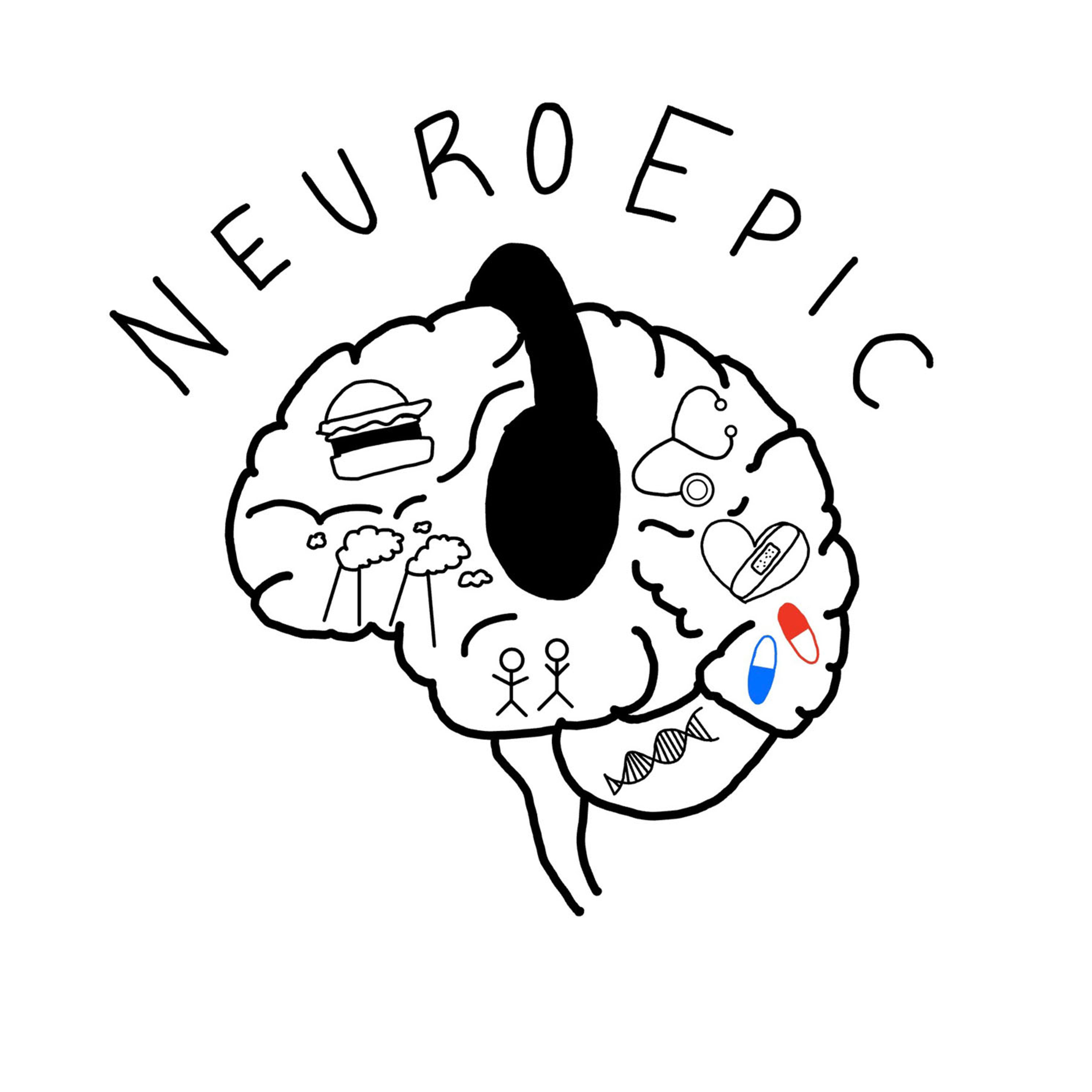 Neuroepic: Nature, Nurture, Food, Family, Brains34. Epigenetics of Drug Addiction in the Midst of the Opioid CrisisPrescription painkillers are vital for proper medical treatment for patients who endure chronic or acute pain. Opioids in particular are commonly prescribed due to their effectiveness in treating pain, however these drugs are known to be highly addictive and can have terrible effects if overused or abused. Opioids such as Vicodin, morphine, and fentanyl are known to be addictive and can lead to severe consequences when mistreated. How these drugs and the addiction it causes affect the brain is not yet fully understood, however every year we learn more and come closer to painting a full picture of the way the...2022-08-0709 min
Neuroepic: Nature, Nurture, Food, Family, Brains34. Epigenetics of Drug Addiction in the Midst of the Opioid CrisisPrescription painkillers are vital for proper medical treatment for patients who endure chronic or acute pain. Opioids in particular are commonly prescribed due to their effectiveness in treating pain, however these drugs are known to be highly addictive and can have terrible effects if overused or abused. Opioids such as Vicodin, morphine, and fentanyl are known to be addictive and can lead to severe consequences when mistreated. How these drugs and the addiction it causes affect the brain is not yet fully understood, however every year we learn more and come closer to painting a full picture of the way the...2022-08-0709 min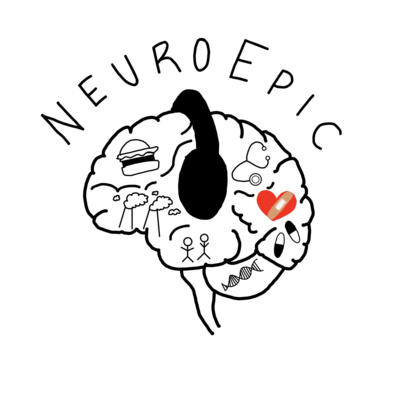 Neuroepic: Nature, Nurture, Food, Family, Brains33. Epigenetics and Brain TumorsDo cell phones cause brain cancer? What about hair dyes? These are things we use every day—what if they are responsible? So far, studies have found no consistent links. It might also worry us if we have relatives who have brain cancer because we might think we are likely to have it too. But genetics isn’t everything. For example, glioblastoma, one of the most aggressive forms of brain cancer, is mostly sporadic: it is random who gets it and who doesn’t. However, we aren’t totally doomed, as a lot of research is being done to understa...2022-08-0513 min
Neuroepic: Nature, Nurture, Food, Family, Brains33. Epigenetics and Brain TumorsDo cell phones cause brain cancer? What about hair dyes? These are things we use every day—what if they are responsible? So far, studies have found no consistent links. It might also worry us if we have relatives who have brain cancer because we might think we are likely to have it too. But genetics isn’t everything. For example, glioblastoma, one of the most aggressive forms of brain cancer, is mostly sporadic: it is random who gets it and who doesn’t. However, we aren’t totally doomed, as a lot of research is being done to understa...2022-08-0513 min Neuroepic: Nature, Nurture, Food, Family, Brains32. Demystifying the Search for a Cure: the Epigenetics of Huntington's DiseaseIf you grew up in the United States, you are most likely familiar with the song “This Land is Your Land”, one of the most famous American folk songs. Though it has been rerecorded and performed by many famous artists, you may not know the original writer and performer, Woody Guthrie. Woody Guthrie was born in 1912 and was, and still is, one of the most influential figures American folk music. He traveled across the U.S. for much of his life, lived through the Great Depression, the Dust Bowl, and World War II, and settled down in New York in t...2022-08-0414 min
Neuroepic: Nature, Nurture, Food, Family, Brains32. Demystifying the Search for a Cure: the Epigenetics of Huntington's DiseaseIf you grew up in the United States, you are most likely familiar with the song “This Land is Your Land”, one of the most famous American folk songs. Though it has been rerecorded and performed by many famous artists, you may not know the original writer and performer, Woody Guthrie. Woody Guthrie was born in 1912 and was, and still is, one of the most influential figures American folk music. He traveled across the U.S. for much of his life, lived through the Great Depression, the Dust Bowl, and World War II, and settled down in New York in t...2022-08-0414 min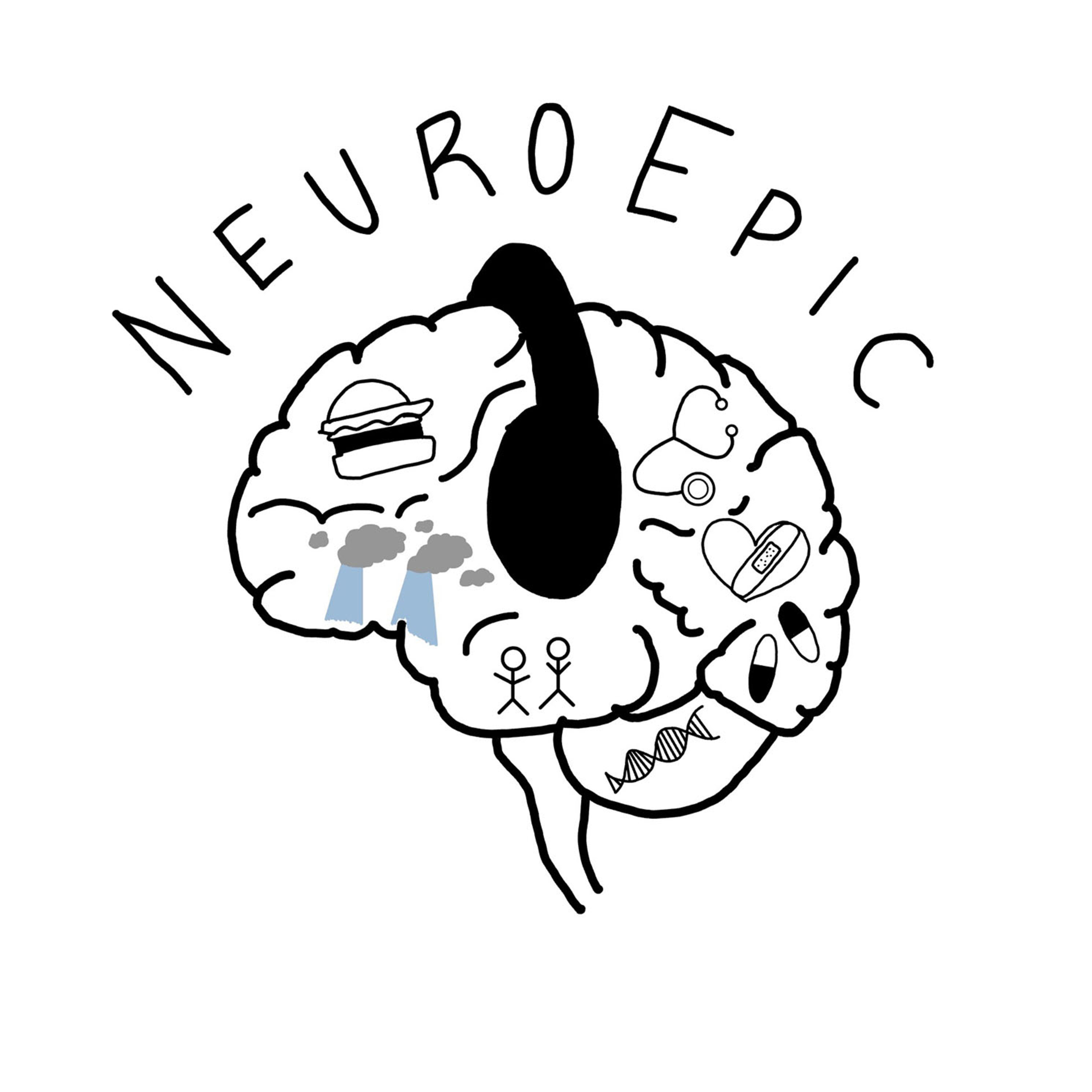 Neuroepic: Nature, Nurture, Food, Family, Brains31. Your Epigenome Needs Sleep, Too!Imagine that you are a college student, whose professors all magically decided to give exams and projects due on the same date. For some reason, you procrastinated until the last minute, and now you need to pull an all-nighter at the library. You begrudgingly head to the fourth floor of the library, prepared to stay awake with a bag full of your favorite candy bars and snacks, a Venti Starbucks iced coffee, and a couple cans of Red Bull. You finally leave the library with sleepy eyes just as the sun slowly rises above the horizon. On the actual exam, yo...2022-08-0414 min
Neuroepic: Nature, Nurture, Food, Family, Brains31. Your Epigenome Needs Sleep, Too!Imagine that you are a college student, whose professors all magically decided to give exams and projects due on the same date. For some reason, you procrastinated until the last minute, and now you need to pull an all-nighter at the library. You begrudgingly head to the fourth floor of the library, prepared to stay awake with a bag full of your favorite candy bars and snacks, a Venti Starbucks iced coffee, and a couple cans of Red Bull. You finally leave the library with sleepy eyes just as the sun slowly rises above the horizon. On the actual exam, yo...2022-08-0414 min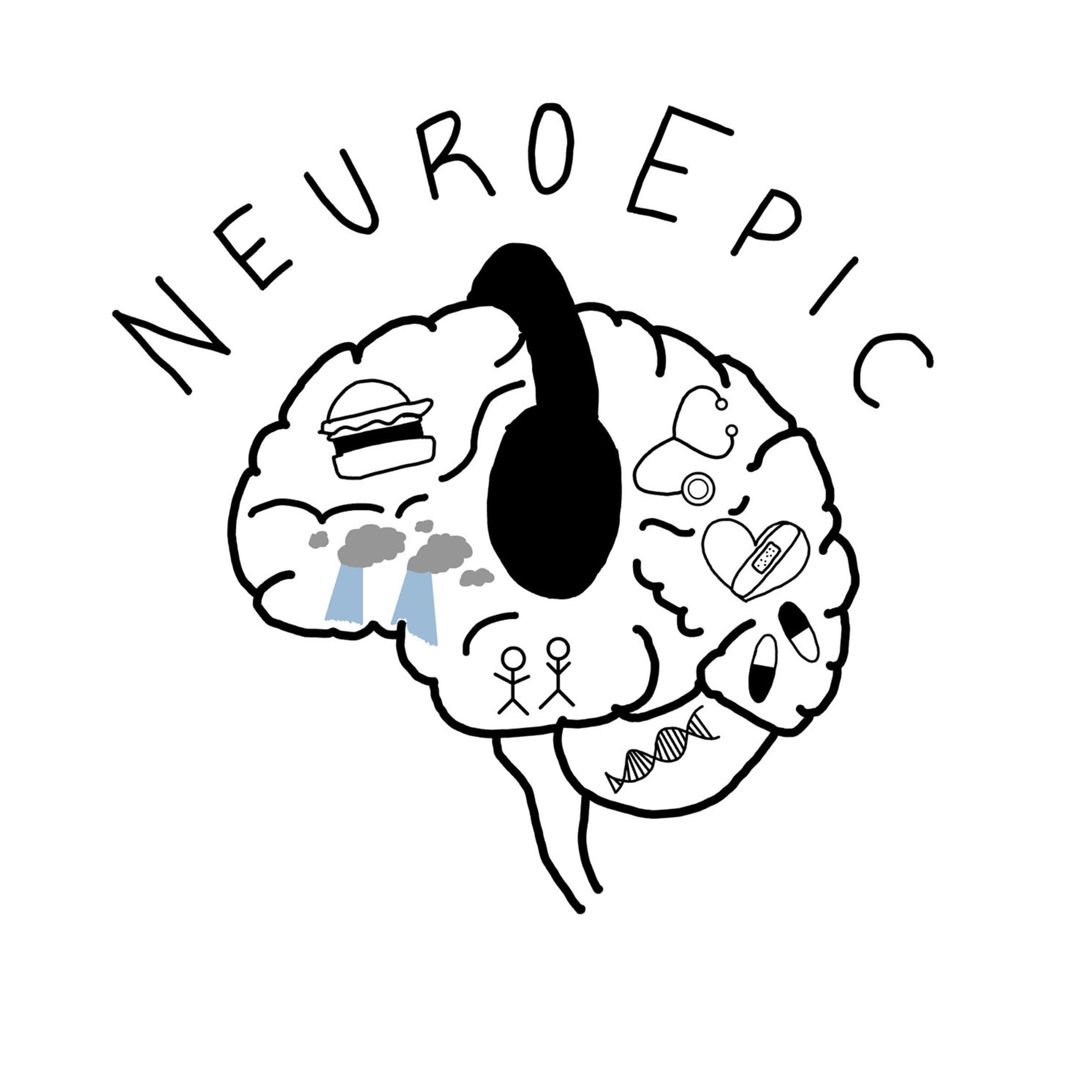 Neuroepic: Nature, Nurture, Food, Family, Brains30. Sleep or Study? The Relationship of Neuroepigenetics and Sleep DeprivationAre you a student? Do you work night shifts? Are you a night owl and stay awake through the night? What if I told you that if you sleep less than 6.5 hours a night, which many of us do, your body reacts to the lack of sleep. And that your body does so by cells altering their DNA’s structure. Would you be surprised? These modifications can affect your emotions and reactions throughout your sleep-deprived day. Furthermore, the change in DNA can be passed down a generation, to the children of those who were often sleep deprived.
2022-08-0312 min
Neuroepic: Nature, Nurture, Food, Family, Brains30. Sleep or Study? The Relationship of Neuroepigenetics and Sleep DeprivationAre you a student? Do you work night shifts? Are you a night owl and stay awake through the night? What if I told you that if you sleep less than 6.5 hours a night, which many of us do, your body reacts to the lack of sleep. And that your body does so by cells altering their DNA’s structure. Would you be surprised? These modifications can affect your emotions and reactions throughout your sleep-deprived day. Furthermore, the change in DNA can be passed down a generation, to the children of those who were often sleep deprived.
2022-08-0312 min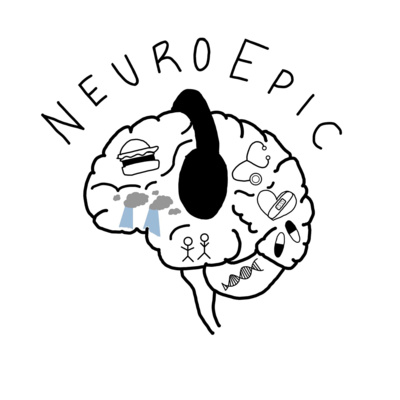 Neuroepic: Nature, Nurture, Food, Family, Brains29. A Kingdom of ~Social Isolation~ and it Looks Like I'm the QueenYou’re stuck in your house, taking responsibility and doing your part in social distancing. You’ve exhausted Netflix’s contents. Hulu, Disney+, YouTube–it’s all a blur. A constant cycle of switching between one time-wasting social media platform to another. There’s only so many times you can reread the same couple books. You take a boredom nap, wake up to eat a meal. Does it count as breakfast or dinner? Who honestly knows at this point? Your university has shut down everything, classes are online, and everyone had to move back home. You haven’t had non-familial in-perso...2022-08-0214 min
Neuroepic: Nature, Nurture, Food, Family, Brains29. A Kingdom of ~Social Isolation~ and it Looks Like I'm the QueenYou’re stuck in your house, taking responsibility and doing your part in social distancing. You’ve exhausted Netflix’s contents. Hulu, Disney+, YouTube–it’s all a blur. A constant cycle of switching between one time-wasting social media platform to another. There’s only so many times you can reread the same couple books. You take a boredom nap, wake up to eat a meal. Does it count as breakfast or dinner? Who honestly knows at this point? Your university has shut down everything, classes are online, and everyone had to move back home. You haven’t had non-familial in-perso...2022-08-0214 min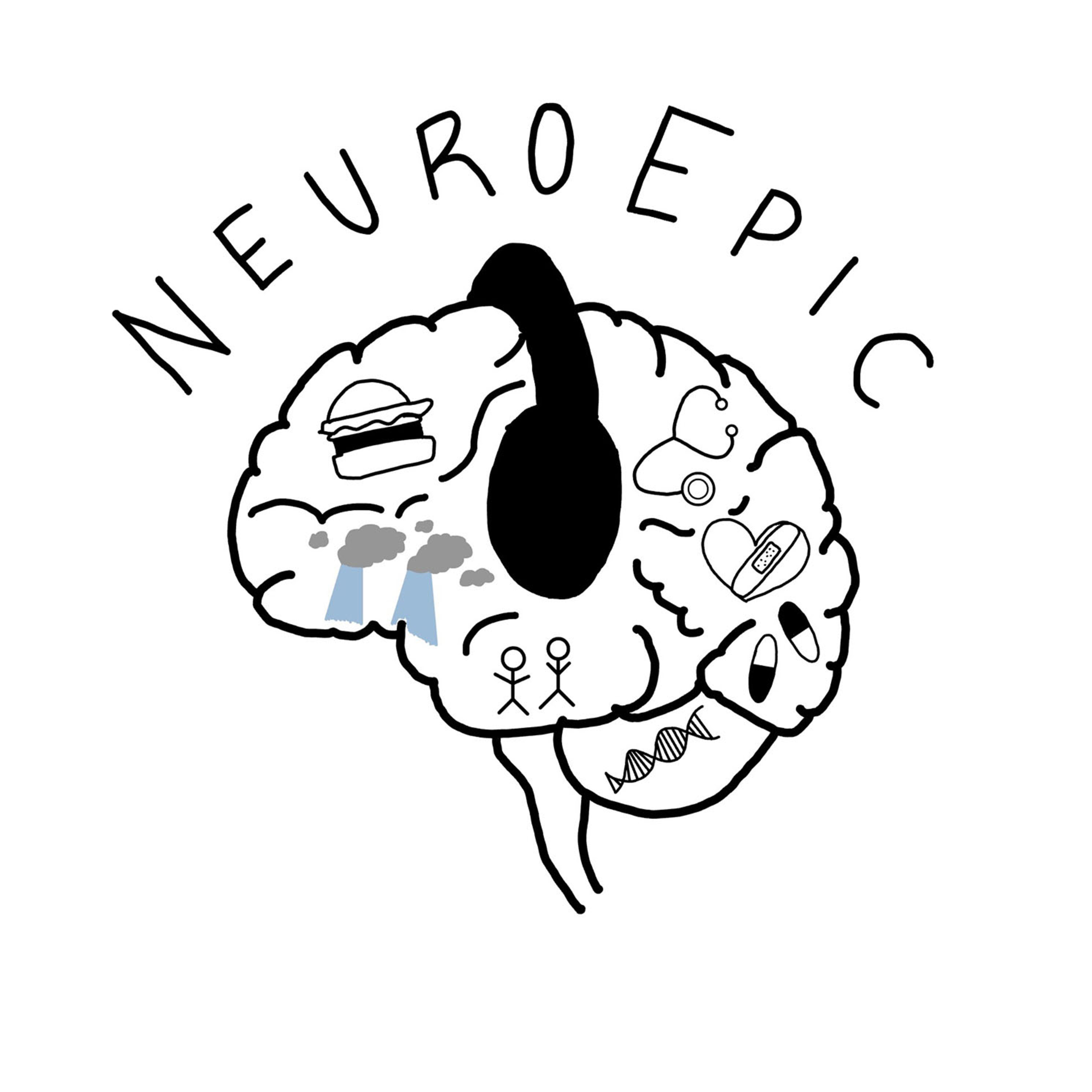 Neuroepic: Nature, Nurture, Food, Family, Brains28. Lifting the Brain Fog: Chemo Brain and EpigeneticsCancer is one of the most prevalent diseases that plagues our society. According to the National Cancer Institute, around 38% of people will be diagnosed with some form of the illness during their lifetime. Given this, almost every individual has either had their life uprooted by cancer, or knows of someone who has been personally affected. The burden of this disease expands past the emotional and financial turmoil experienced by an individual, and also has a large impact on our society as a whole. In 2017, an estimated $147.3 billion was spent in the United States alone for cancer care (National Cancer...2022-07-1711 min
Neuroepic: Nature, Nurture, Food, Family, Brains28. Lifting the Brain Fog: Chemo Brain and EpigeneticsCancer is one of the most prevalent diseases that plagues our society. According to the National Cancer Institute, around 38% of people will be diagnosed with some form of the illness during their lifetime. Given this, almost every individual has either had their life uprooted by cancer, or knows of someone who has been personally affected. The burden of this disease expands past the emotional and financial turmoil experienced by an individual, and also has a large impact on our society as a whole. In 2017, an estimated $147.3 billion was spent in the United States alone for cancer care (National Cancer...2022-07-1711 min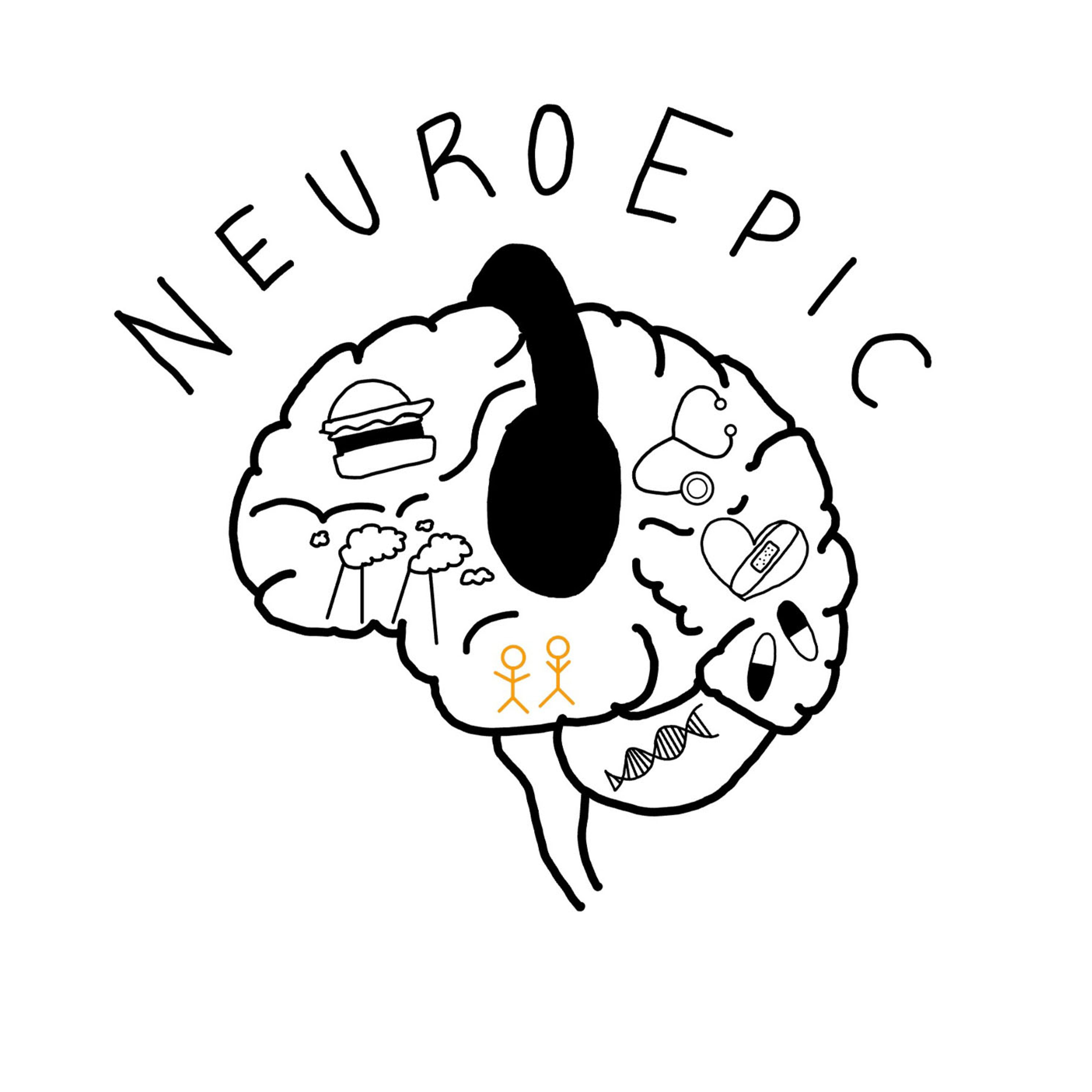 Neuroepic: Nature, Nurture, Food, Family, Brains27. Insights from the Family Tree: How Ancestral Environment Can Affect Behavior Across GenerationsFrom work to school, social media to politics, there seem to be a growing number of stressors each year. For many of us stress is an everyday part of life while for others stress can be debilitating. According to the American Psychological Association, the stress level in America is increasing and along with it, depression, anxiety, and other mental health issues. Many people don’t know that stress is an evolutionary adaptation to let animals know when they are in serious danger of death. However, when your term paper is due just a day after your chemistry final and yo...2022-07-1517 min
Neuroepic: Nature, Nurture, Food, Family, Brains27. Insights from the Family Tree: How Ancestral Environment Can Affect Behavior Across GenerationsFrom work to school, social media to politics, there seem to be a growing number of stressors each year. For many of us stress is an everyday part of life while for others stress can be debilitating. According to the American Psychological Association, the stress level in America is increasing and along with it, depression, anxiety, and other mental health issues. Many people don’t know that stress is an evolutionary adaptation to let animals know when they are in serious danger of death. However, when your term paper is due just a day after your chemistry final and yo...2022-07-1517 min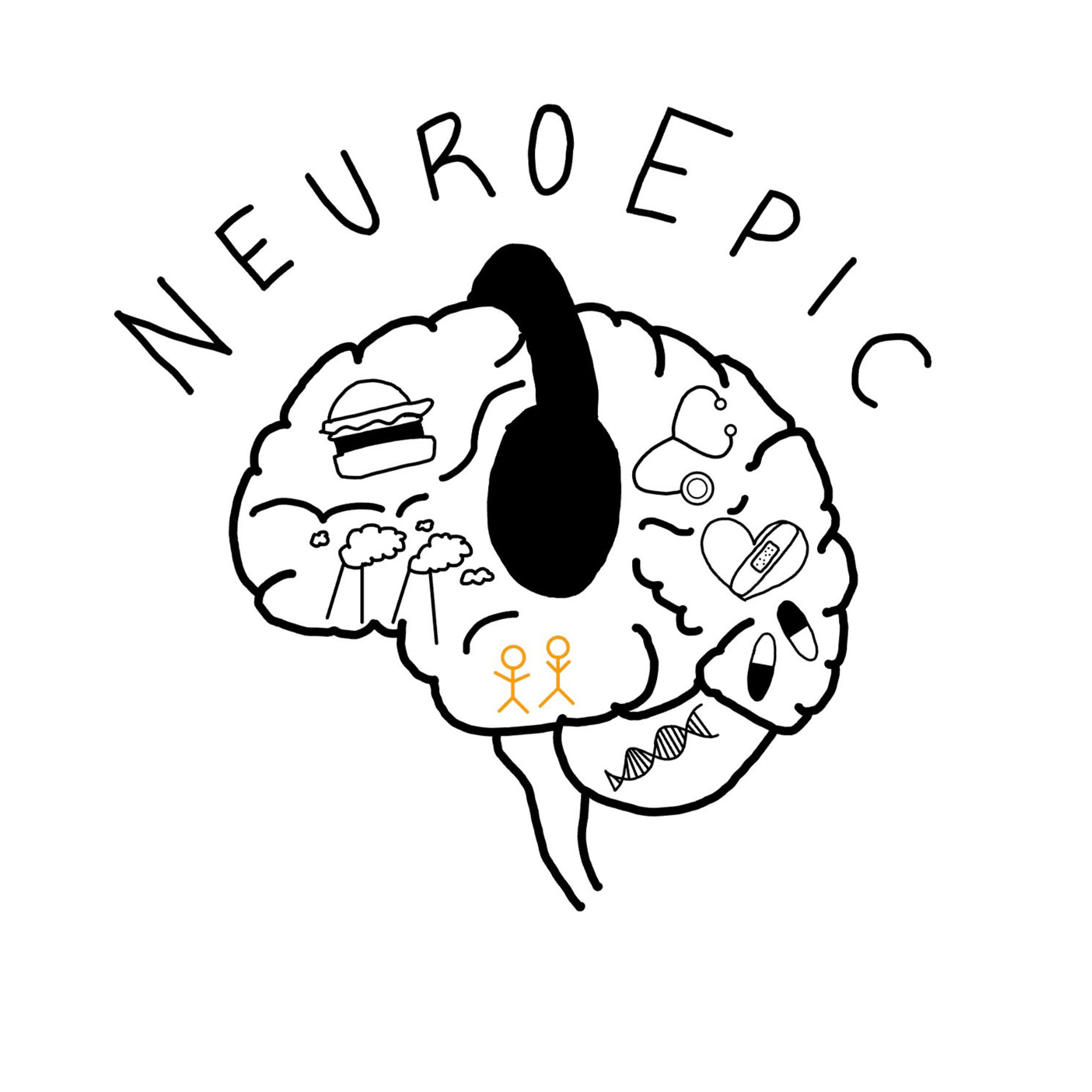 Neuroepic: Nature, Nurture, Food, Family, Brains26. What Doesn't Kill You Makes You Stronger: Transgenerational Inheritance of Induced DefensesImagine that you are a 5-inch field mouse running for dear life from a hungry snake eager to have you as a tasty snack. Not only is your focus sharpened, but your senses are heightened, allowing you to hear every slithering movement and smell the terrifying odor emanating from this predator. If you could successfully outrun this snake, what is the most important lesson you might take away from this dramatic episode? What lessons would you want to pass down to your future offspring? Nature has come up with two answers to these questions:
(1) An exaggerated sensitivity...2022-07-1223 min
Neuroepic: Nature, Nurture, Food, Family, Brains26. What Doesn't Kill You Makes You Stronger: Transgenerational Inheritance of Induced DefensesImagine that you are a 5-inch field mouse running for dear life from a hungry snake eager to have you as a tasty snack. Not only is your focus sharpened, but your senses are heightened, allowing you to hear every slithering movement and smell the terrifying odor emanating from this predator. If you could successfully outrun this snake, what is the most important lesson you might take away from this dramatic episode? What lessons would you want to pass down to your future offspring? Nature has come up with two answers to these questions:
(1) An exaggerated sensitivity...2022-07-1223 min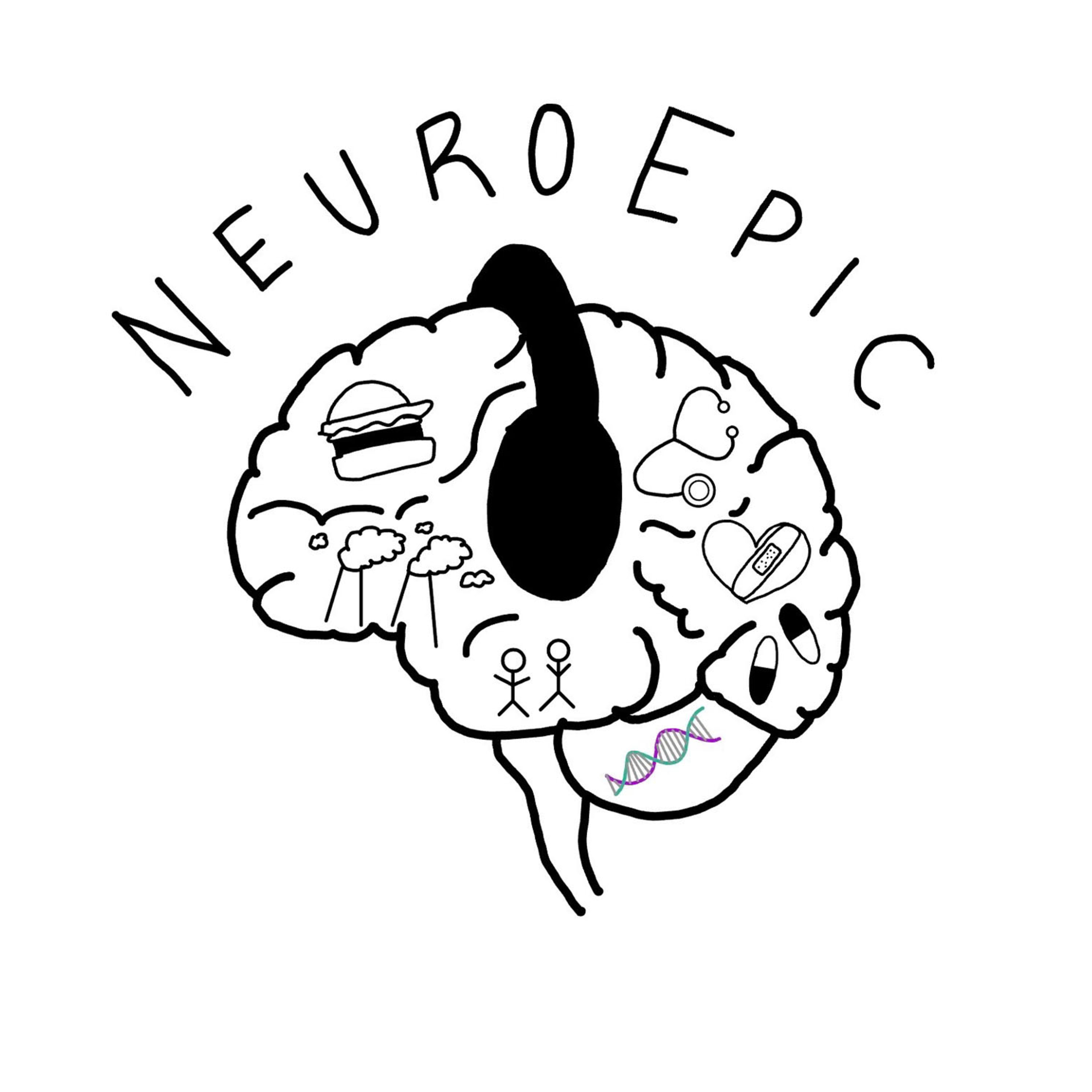 Neuroepic: Nature, Nurture, Food, Family, Brains25. Micromanaging the Mind: microRNAs and Fragile X SyndromeCognition is, according to the Oxford dictionary, the “mental action or process of acquiring knowledge and understanding through thought, experience, and the senses.” In simpler terms, cognition is basically how we think. But what determines how we think? There has to be some influence from the environment. After all, the experiences we have can shape what we remember, and basically how we perceive the world. That can’t be the only thing though, because cognition comes from the brain, and our brains are made with the genetic information we get from our parents. How in the world can we even s...2022-07-1016 min
Neuroepic: Nature, Nurture, Food, Family, Brains25. Micromanaging the Mind: microRNAs and Fragile X SyndromeCognition is, according to the Oxford dictionary, the “mental action or process of acquiring knowledge and understanding through thought, experience, and the senses.” In simpler terms, cognition is basically how we think. But what determines how we think? There has to be some influence from the environment. After all, the experiences we have can shape what we remember, and basically how we perceive the world. That can’t be the only thing though, because cognition comes from the brain, and our brains are made with the genetic information we get from our parents. How in the world can we even s...2022-07-1016 min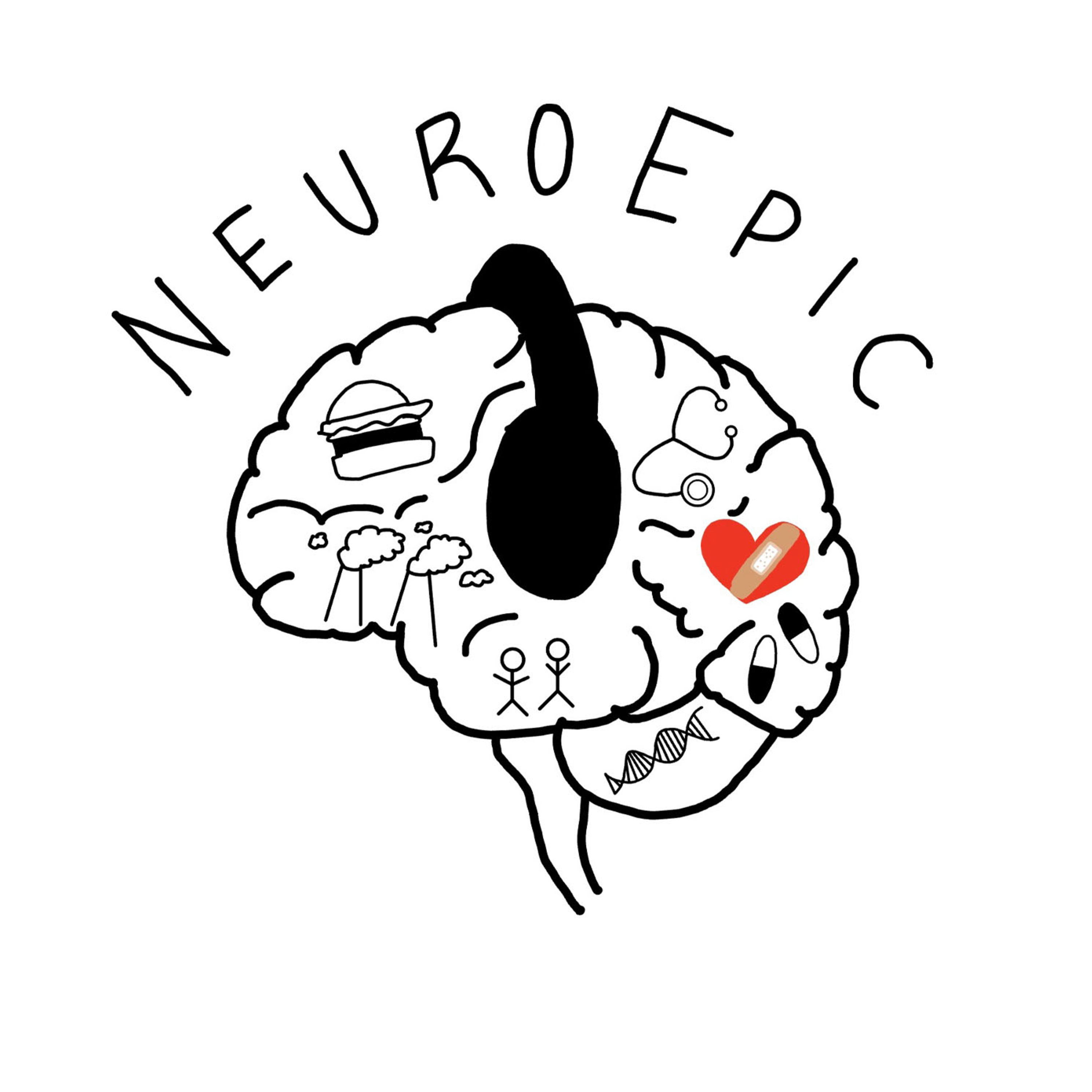 Neuroepic: Nature, Nurture, Food, Family, Brains24. Do You Feel Anxious? The Epigenetic Inheritance of AnxietyIt’s 1:50pm. You have an assignment to submit in 10 minutes. You are meeting your team project members in about an hour. You need to call your parents about your health insurance. You have a paper due tomorrow. And you still have not eaten lunch.
Do you feel anxious? These feelings of anxiety are a normal reaction to stressful feelings of tensions and thoughts. And though these feelings may be uncomfortable and seemingly uncontrollable, these feelings keep us alert and inform us about how to behave.
Though feelings of anxiety are common, depending on the pe...2022-07-1015 min
Neuroepic: Nature, Nurture, Food, Family, Brains24. Do You Feel Anxious? The Epigenetic Inheritance of AnxietyIt’s 1:50pm. You have an assignment to submit in 10 minutes. You are meeting your team project members in about an hour. You need to call your parents about your health insurance. You have a paper due tomorrow. And you still have not eaten lunch.
Do you feel anxious? These feelings of anxiety are a normal reaction to stressful feelings of tensions and thoughts. And though these feelings may be uncomfortable and seemingly uncontrollable, these feelings keep us alert and inform us about how to behave.
Though feelings of anxiety are common, depending on the pe...2022-07-1015 min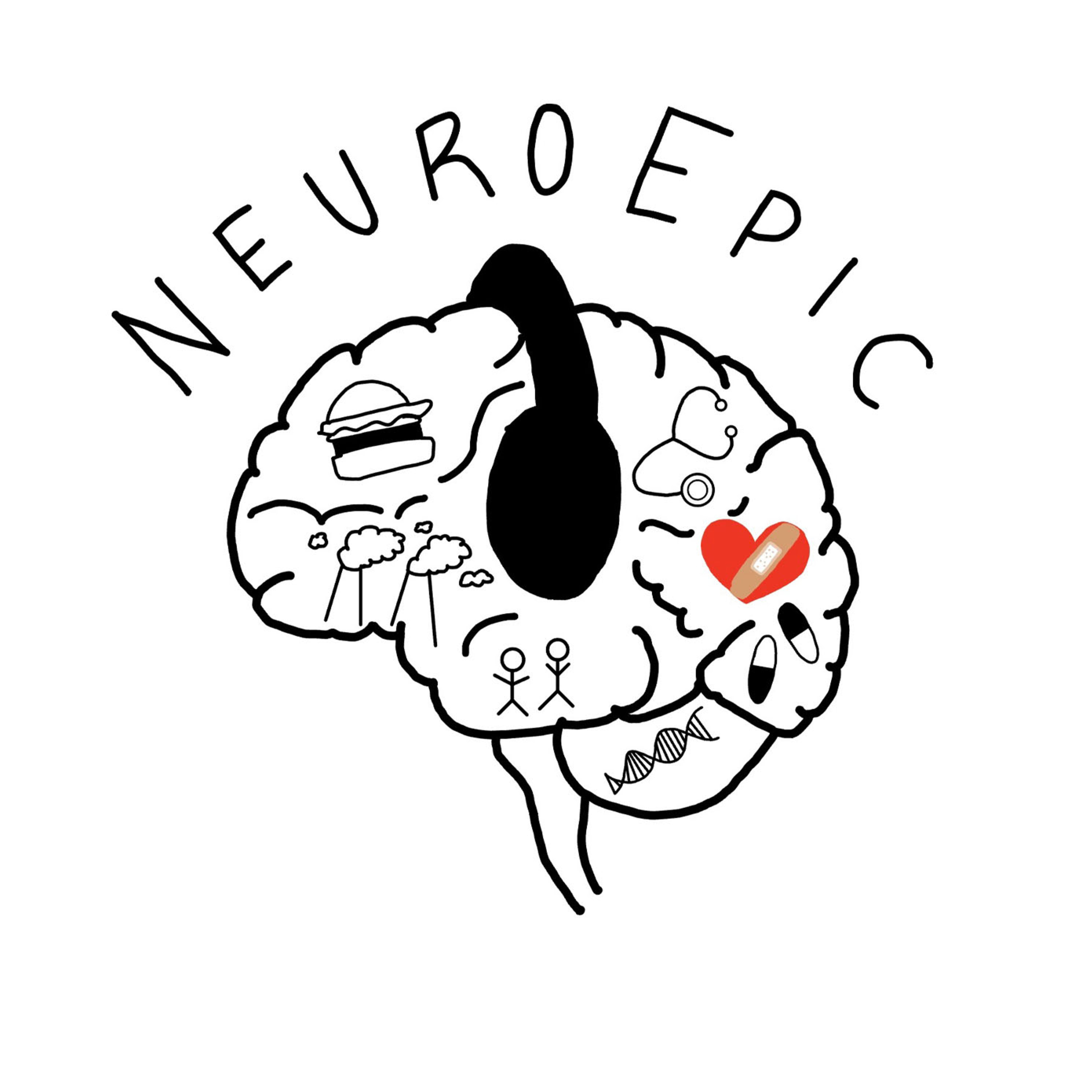 Neuroepic: Nature, Nurture, Food, Family, Brains23. Don't You Forget About Us: PTSD in WomenEvery 98 seconds, an American is sexually assaulted. 90% of the adult rape victims are female. Nearly all of them experience symptoms of post-traumatic stress disorder (PTSD) and severe distress in the weeks after the rape (RAINN, n.d.). For many this suffering is connected to suicidal or depressive thoughts and can last for months or years, this is shown by 33% of women who are raped that think about commiting suicide. While we need social and political prevention of sexual assault, scientific research also has to consider that there is a high number of women suffering from PTSD after sexual assault...2022-07-0918 min
Neuroepic: Nature, Nurture, Food, Family, Brains23. Don't You Forget About Us: PTSD in WomenEvery 98 seconds, an American is sexually assaulted. 90% of the adult rape victims are female. Nearly all of them experience symptoms of post-traumatic stress disorder (PTSD) and severe distress in the weeks after the rape (RAINN, n.d.). For many this suffering is connected to suicidal or depressive thoughts and can last for months or years, this is shown by 33% of women who are raped that think about commiting suicide. While we need social and political prevention of sexual assault, scientific research also has to consider that there is a high number of women suffering from PTSD after sexual assault...2022-07-0918 min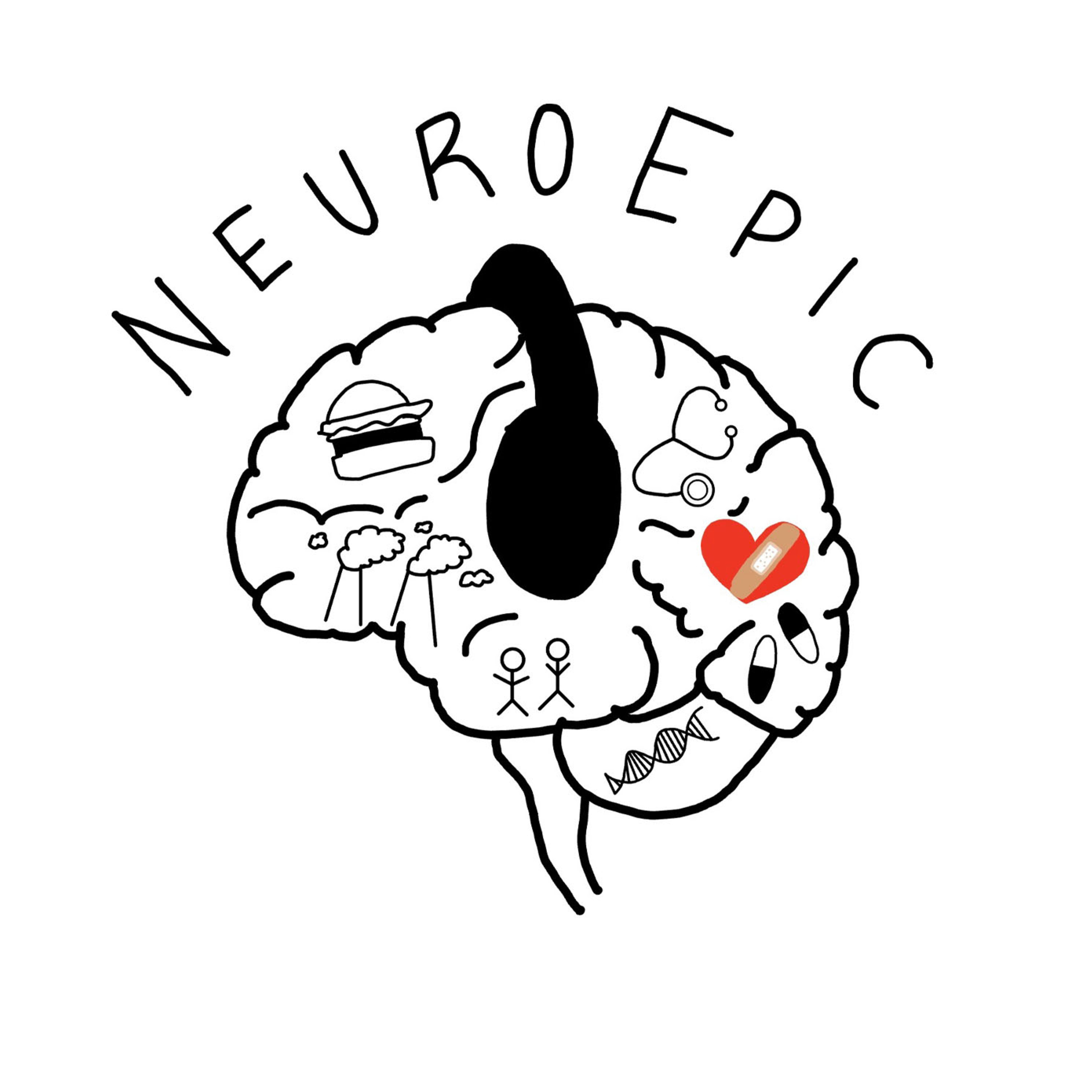 Neuroepic: Nature, Nurture, Food, Family, Brains22. The Epigenetics of SchizophreniaSchizophrenia is a disease that many times is associated with an insane asylum or tragic instances of violence in the news. Media and other outlets tend to portray this illness in a negative lens that only reinforces the stigmas that have surrounded it for decades using headlines like “Schizophrenic stabbed brother, nine, to death hours after health workers said he was no threat” and “1,200 killed by mental patients”. But instead of encouraging the fear and obscurity that have been built up around schizophrenia, increasing awareness and knowledge can have a huge effect on how people with the disorder are integrat...2022-07-0712 min
Neuroepic: Nature, Nurture, Food, Family, Brains22. The Epigenetics of SchizophreniaSchizophrenia is a disease that many times is associated with an insane asylum or tragic instances of violence in the news. Media and other outlets tend to portray this illness in a negative lens that only reinforces the stigmas that have surrounded it for decades using headlines like “Schizophrenic stabbed brother, nine, to death hours after health workers said he was no threat” and “1,200 killed by mental patients”. But instead of encouraging the fear and obscurity that have been built up around schizophrenia, increasing awareness and knowledge can have a huge effect on how people with the disorder are integrat...2022-07-0712 min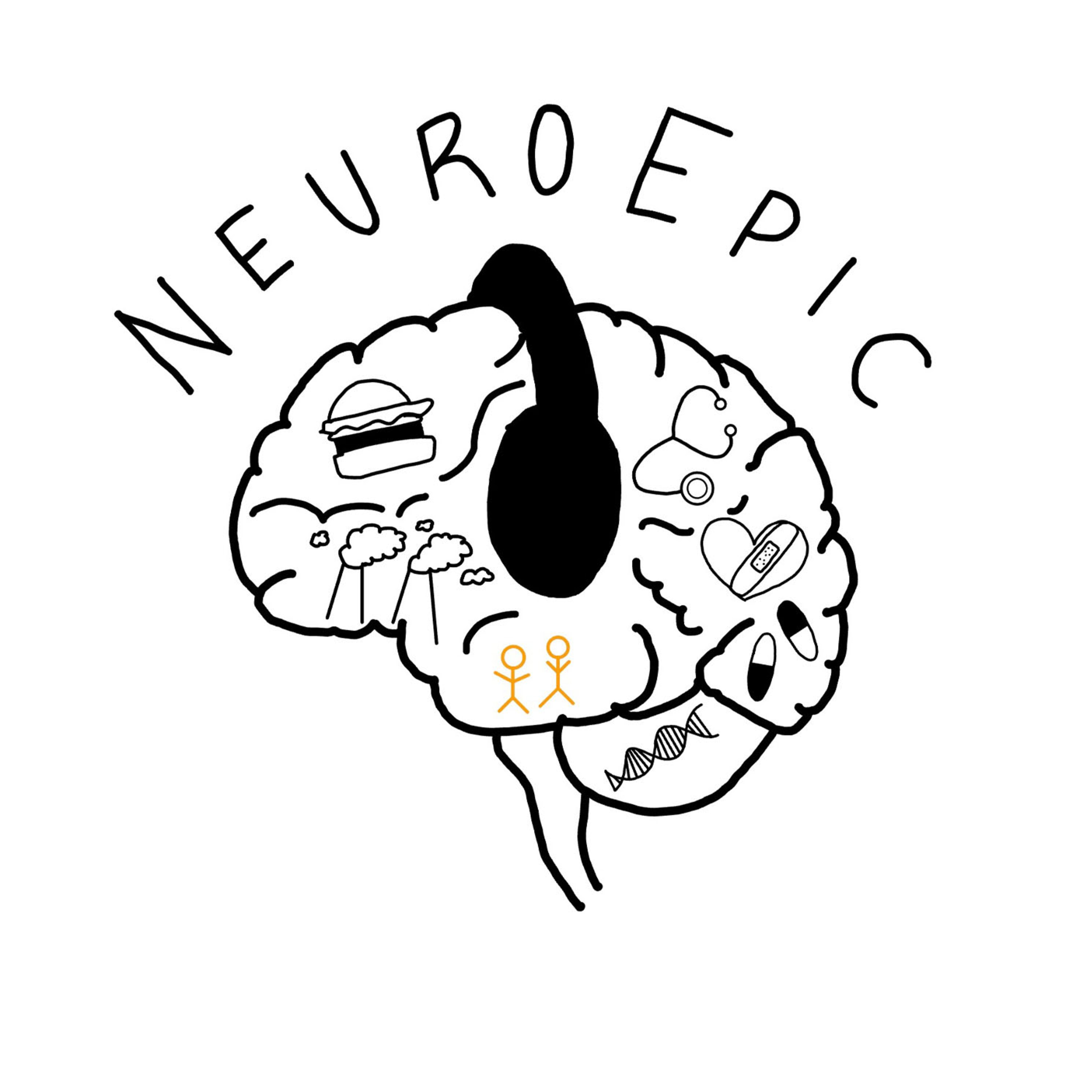 Neuroepic: Nature, Nurture, Food, Family, Brains21. Daddy's Drinking Problem and MeSamuel L. Jackson is one of America’s biggest movie stars, starring in iconic films such as Star Wars, Jurassic Park, Iron Man, and many more. He has fought snakes on a plane, has been titled the Master of the Jedi High Council, and has enlisted Tony Stark to create a secret organization of superheroes called the Avengers. Jackson has rightfully earned his fame and success throughout the years, with films that have grossed over $8 billion. However, his road to success was not as glamorous as one may predict. At a young age, Jackson lost his father to alcoholism an...2022-07-0715 min
Neuroepic: Nature, Nurture, Food, Family, Brains21. Daddy's Drinking Problem and MeSamuel L. Jackson is one of America’s biggest movie stars, starring in iconic films such as Star Wars, Jurassic Park, Iron Man, and many more. He has fought snakes on a plane, has been titled the Master of the Jedi High Council, and has enlisted Tony Stark to create a secret organization of superheroes called the Avengers. Jackson has rightfully earned his fame and success throughout the years, with films that have grossed over $8 billion. However, his road to success was not as glamorous as one may predict. At a young age, Jackson lost his father to alcoholism an...2022-07-0715 min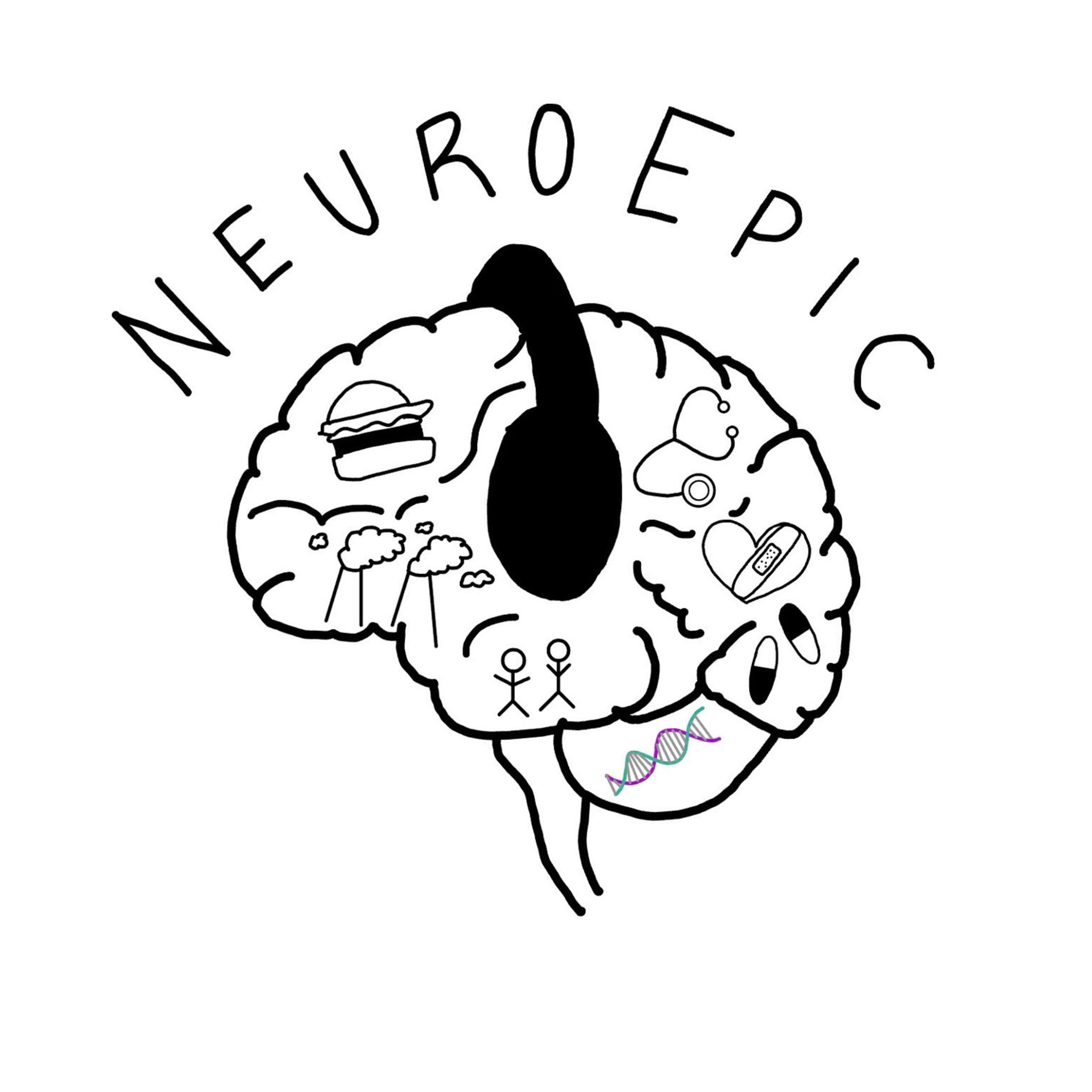 Neuroepic: Nature, Nurture, Food, Family, Brains20. Navigating Rett SyndromeImagine you have just welcomed a lovely baby girl into the world, be it your own daughter, niece or sister. She appears happy (despite the common initial tears) and the doctors announce her to be healthy. For a few months, she continues to grow and develop successfully. However, just after her first birthday, you notice that she starts taking less pleasure in playing with her once favorite toys. Additionally, she does not appear to be sitting or crawling as your family friend’s child, who is of similar age. A year or so later, the girl appears to have di...2022-07-0511 min
Neuroepic: Nature, Nurture, Food, Family, Brains20. Navigating Rett SyndromeImagine you have just welcomed a lovely baby girl into the world, be it your own daughter, niece or sister. She appears happy (despite the common initial tears) and the doctors announce her to be healthy. For a few months, she continues to grow and develop successfully. However, just after her first birthday, you notice that she starts taking less pleasure in playing with her once favorite toys. Additionally, she does not appear to be sitting or crawling as your family friend’s child, who is of similar age. A year or so later, the girl appears to have di...2022-07-0511 min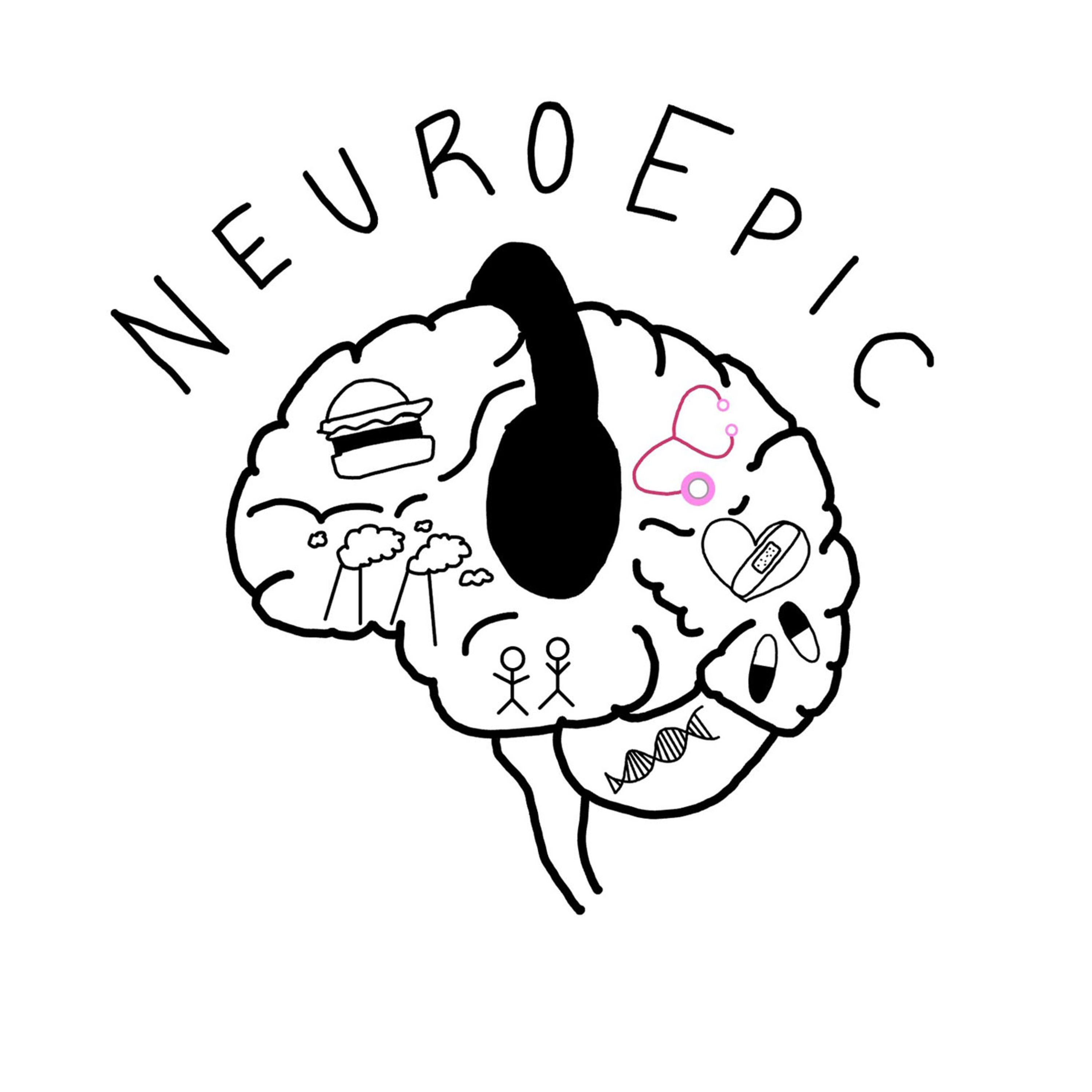 Neuroepic: Nature, Nurture, Food, Family, Brains19. Mind Full or Mindful?- How Mindfulness Based Practices Affect Your BrainIronically, in a world that is exploding with new technology, more and more individuals are feeling increasingly disconnected with others and with themselves. As Anderson Cooper stated on 60 minutes, “I’m on mobile devices all day long. I feel like I could go through an entire day and not be present. It’s exhausting”11. As a way to remedy this disconnection with oneself and relieve everyday stress, mindfulness-based practices have been on the rise, especially in workplaces and hospitals. Mindfulness-based stress reduction (MBSR) practices are techniques that help individuals self-manage worrisome, intrusive thoughts1. A few examples of well-known mindfulness-based practice...2022-07-0419 min
Neuroepic: Nature, Nurture, Food, Family, Brains19. Mind Full or Mindful?- How Mindfulness Based Practices Affect Your BrainIronically, in a world that is exploding with new technology, more and more individuals are feeling increasingly disconnected with others and with themselves. As Anderson Cooper stated on 60 minutes, “I’m on mobile devices all day long. I feel like I could go through an entire day and not be present. It’s exhausting”11. As a way to remedy this disconnection with oneself and relieve everyday stress, mindfulness-based practices have been on the rise, especially in workplaces and hospitals. Mindfulness-based stress reduction (MBSR) practices are techniques that help individuals self-manage worrisome, intrusive thoughts1. A few examples of well-known mindfulness-based practice...2022-07-0419 min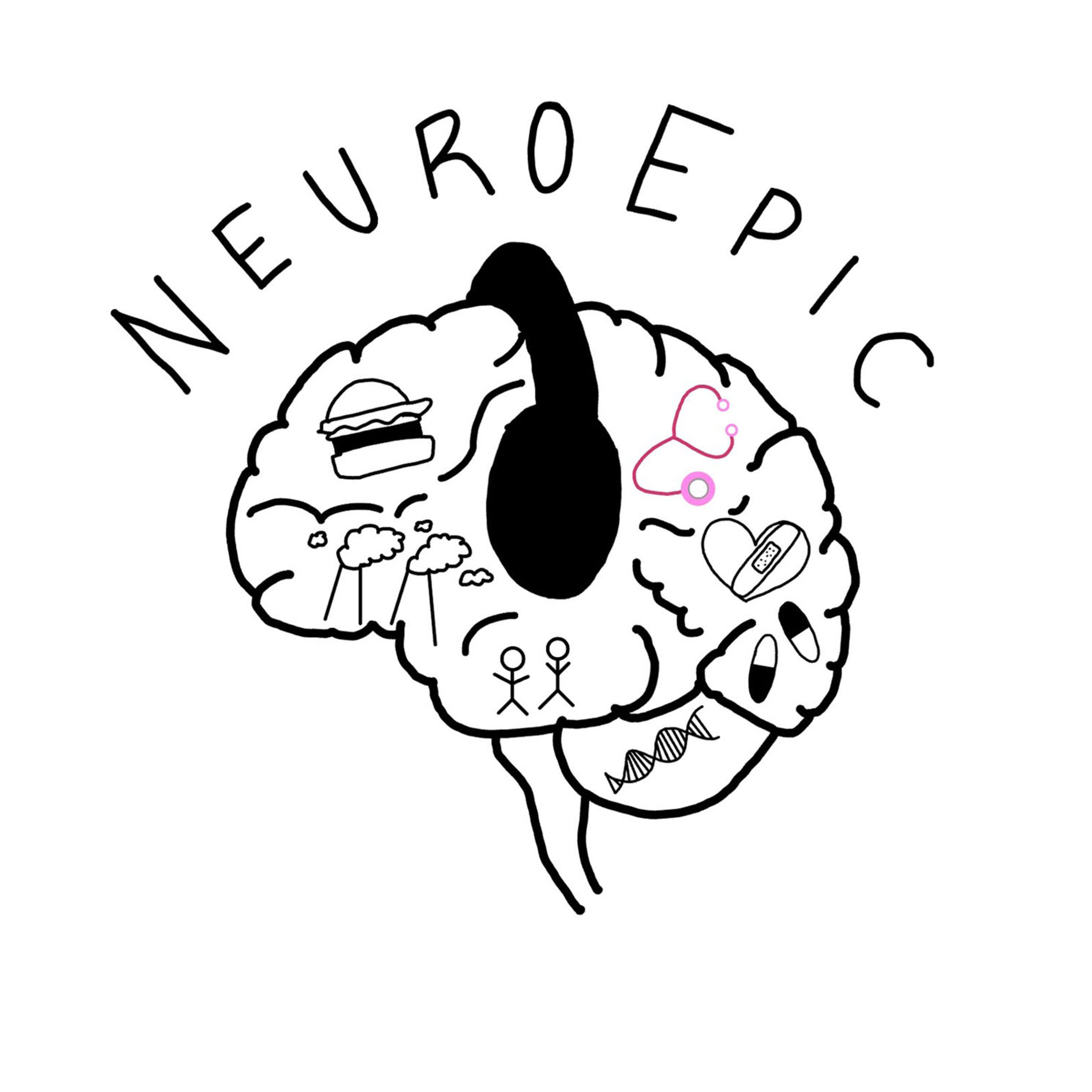 Neuroepic: Nature, Nurture, Food, Family, Brains18. The Future of Personalized MedicineTaylor is a sophomore at the University of Michigan. Since coming to campus, she has been struggling with severe bouts of depression and spends many days feeling lonely and sad. Her friends have noticed her skipping class more often and bailing on social gatherings. She was previously on an antidepressant medication, but it doesn’t seem to be working and all she can feel are the side effects, like feeling tired and not being able to concentrate—which as you can imagine, interferes with her role as a student. She feels like she’s tried everything to help with her de...2022-07-0316 min
Neuroepic: Nature, Nurture, Food, Family, Brains18. The Future of Personalized MedicineTaylor is a sophomore at the University of Michigan. Since coming to campus, she has been struggling with severe bouts of depression and spends many days feeling lonely and sad. Her friends have noticed her skipping class more often and bailing on social gatherings. She was previously on an antidepressant medication, but it doesn’t seem to be working and all she can feel are the side effects, like feeling tired and not being able to concentrate—which as you can imagine, interferes with her role as a student. She feels like she’s tried everything to help with her de...2022-07-0316 min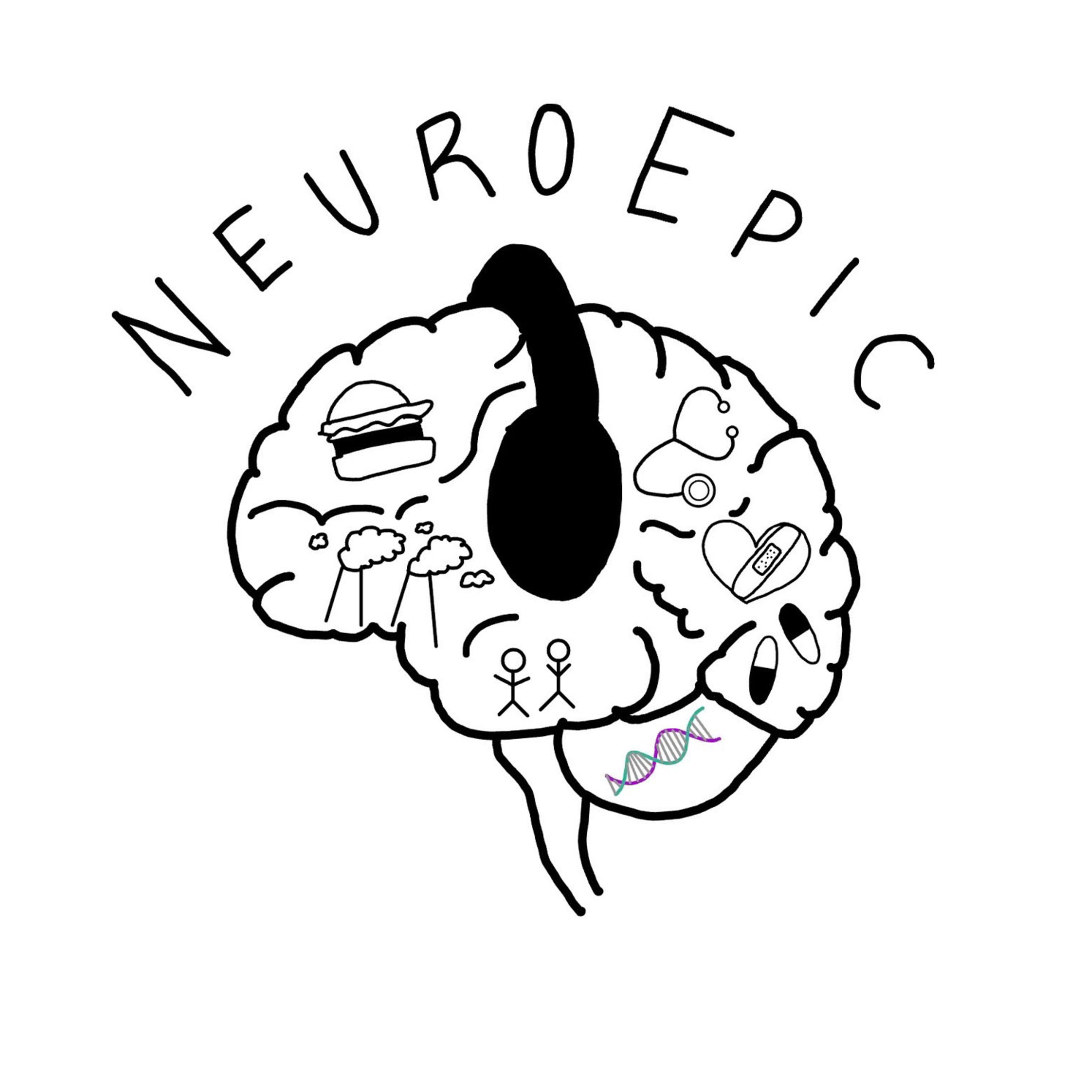 Neuroepic: Nature, Nurture, Food, Family, Brains17. Neuroepigenetics of EpilepsyWhen we visit the doctor with a medical concern we typically expect to leave with a prescription. One pill in the morning, one at night, and some water and nourishing foods to fuel the body for healing. But when Hollywood producer Jim Abrahams took his one year old son, Charlie, to Johns Hopkins in 1993 for treatment of epilepsy, he was prescribed… high fat diet? Doctors prescribing fat? It seems a little bit counterintuitive, but to Jim’s surprise, this once-controversial treatment stopped his son’s crippling seizures altogether in only three days, a feat that several medications and surgical attemp...2022-07-0210 min
Neuroepic: Nature, Nurture, Food, Family, Brains17. Neuroepigenetics of EpilepsyWhen we visit the doctor with a medical concern we typically expect to leave with a prescription. One pill in the morning, one at night, and some water and nourishing foods to fuel the body for healing. But when Hollywood producer Jim Abrahams took his one year old son, Charlie, to Johns Hopkins in 1993 for treatment of epilepsy, he was prescribed… high fat diet? Doctors prescribing fat? It seems a little bit counterintuitive, but to Jim’s surprise, this once-controversial treatment stopped his son’s crippling seizures altogether in only three days, a feat that several medications and surgical attemp...2022-07-0210 min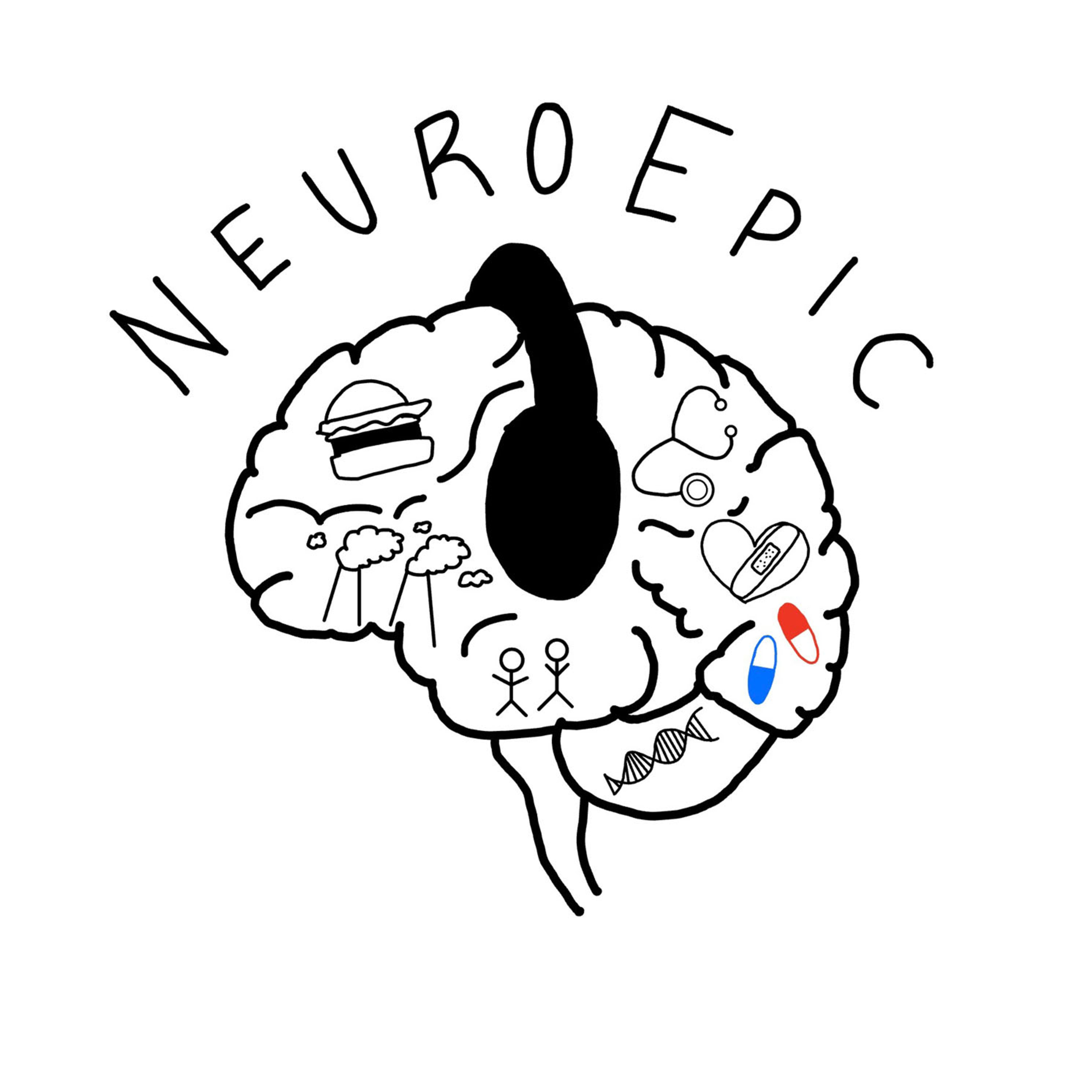 Neuroepic: Nature, Nurture, Food, Family, Brains16. The Opioid Crisis and NeuroepigeneticsRobert Leahy is the sheriff in Clermont County, Ohio. In 2017, his ex-wife overdosed on heroin after years of prescription opioid and heroin use. As we can see here, even a law enforcement was not safe from effects of the opioid crisis. Ohio alone saw 2,700 deaths from opioid overdoses just in 20172. The influx of overdoses and death caused Ohio’s morgues to resort to refrigerators on trucks to hold the bodies. From across the country the evidence is clear: there is an opioid epidemic killing tens of thousands of people a year. Now, scientists are wondering, how can prescription painkillers le...2022-07-0117 min
Neuroepic: Nature, Nurture, Food, Family, Brains16. The Opioid Crisis and NeuroepigeneticsRobert Leahy is the sheriff in Clermont County, Ohio. In 2017, his ex-wife overdosed on heroin after years of prescription opioid and heroin use. As we can see here, even a law enforcement was not safe from effects of the opioid crisis. Ohio alone saw 2,700 deaths from opioid overdoses just in 20172. The influx of overdoses and death caused Ohio’s morgues to resort to refrigerators on trucks to hold the bodies. From across the country the evidence is clear: there is an opioid epidemic killing tens of thousands of people a year. Now, scientists are wondering, how can prescription painkillers le...2022-07-0117 min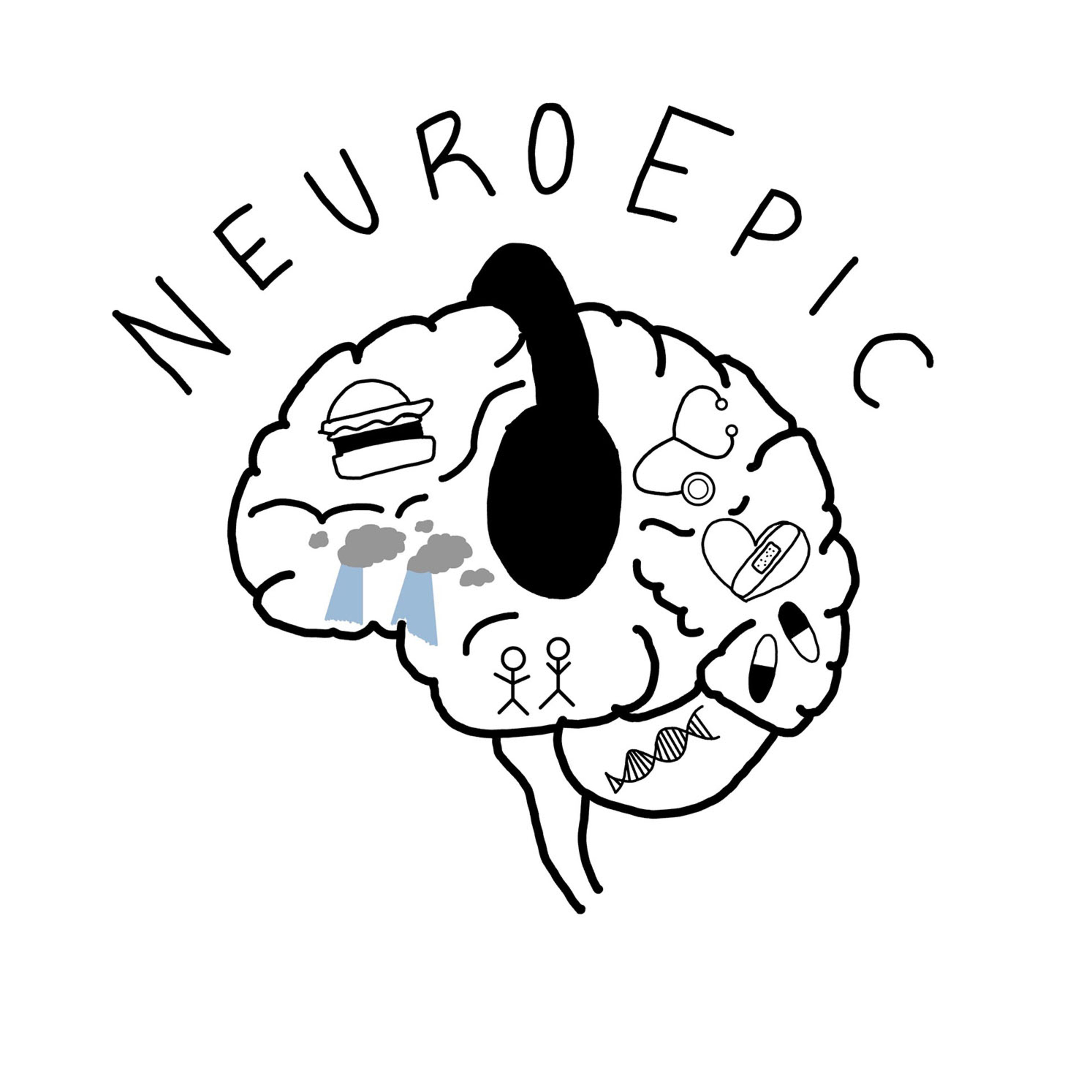 Neuroepic: Nature, Nurture, Food, Family, Brains15. Motivated to Get Food? Something You Learned SubconsciouslyWhat makes you crave food, your hunger? Imagine you woke up with not enough sleep and drove to your office; coincidently, a colleague brought a Starbucks vanilla latte to let you try; unexpectedly, you felt energetic and performed well at your work that day. Then, you start to buy Starbucks coffee every workday. When you go out on weekends, you see a Starbucks and cannot help getting a cup of drink even though you don’t need coffee. It is similar when we encounter food: for example, sometimes when we see a yellow M of McDonald and get some fo...2022-06-1515 min
Neuroepic: Nature, Nurture, Food, Family, Brains15. Motivated to Get Food? Something You Learned SubconsciouslyWhat makes you crave food, your hunger? Imagine you woke up with not enough sleep and drove to your office; coincidently, a colleague brought a Starbucks vanilla latte to let you try; unexpectedly, you felt energetic and performed well at your work that day. Then, you start to buy Starbucks coffee every workday. When you go out on weekends, you see a Starbucks and cannot help getting a cup of drink even though you don’t need coffee. It is similar when we encounter food: for example, sometimes when we see a yellow M of McDonald and get some fo...2022-06-1515 min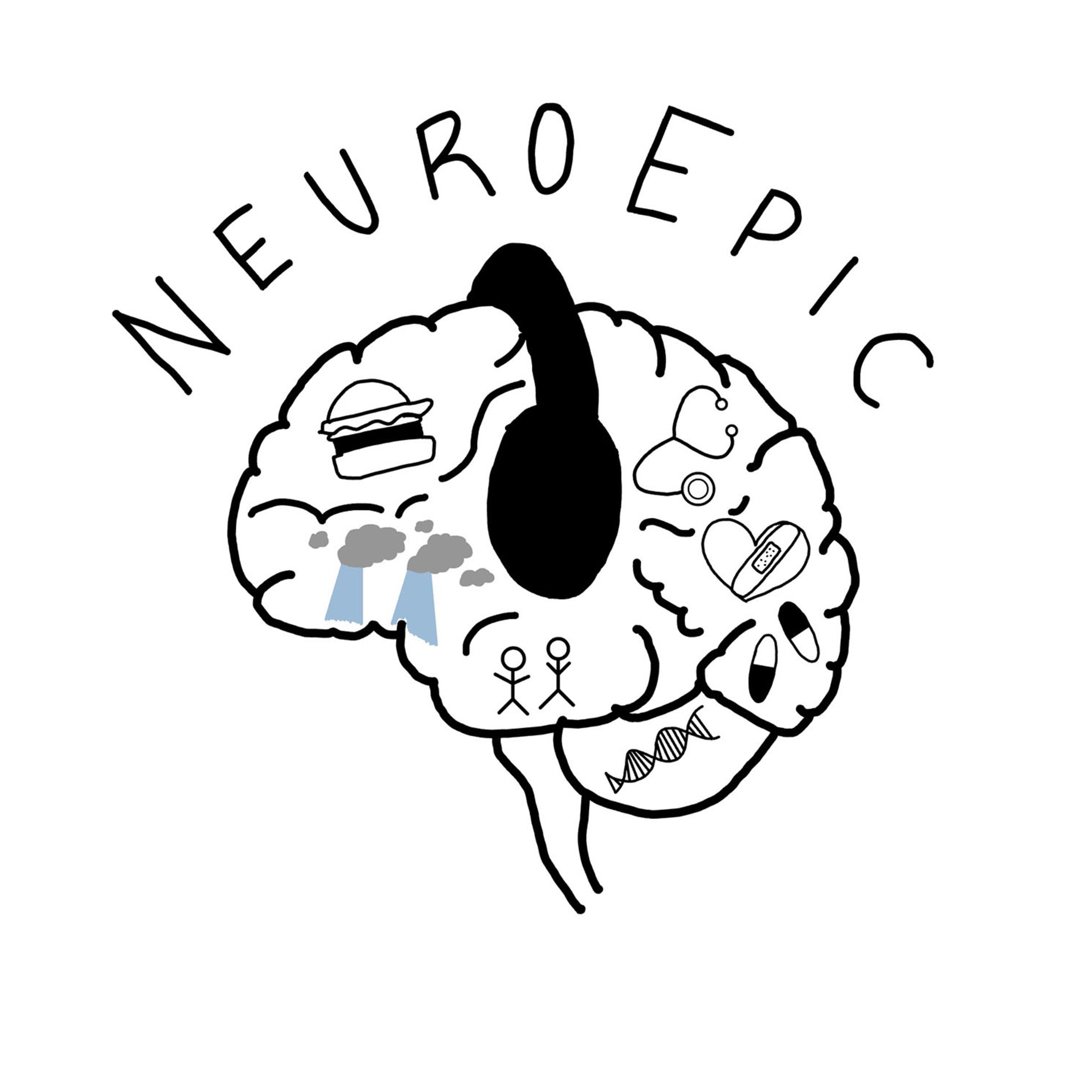 Neuroepic: Nature, Nurture, Food, Family, Brains14. BPA: Not A-gouti Thing for YouIn 2010, Canada declared bisphenol-A (BPA) a toxic substance, yet BPA may be lurking right in your own kitchen. Today, BPA can be found in canned foods, plastic bottles, tupperware, and receipts. Consumption of BPA has been linked to increased rates of cancer, issues with brain development, and higher rates of reproductive issues. Even though the FDA does not classify BPA as a toxic substance in America, the FDA passed laws in 2012 and 2013 prohibiting the use of BPA in children sippy cups, baby bottles, and infant formula packaging. Many other countries around the world have also banned the use of...2022-06-1416 min
Neuroepic: Nature, Nurture, Food, Family, Brains14. BPA: Not A-gouti Thing for YouIn 2010, Canada declared bisphenol-A (BPA) a toxic substance, yet BPA may be lurking right in your own kitchen. Today, BPA can be found in canned foods, plastic bottles, tupperware, and receipts. Consumption of BPA has been linked to increased rates of cancer, issues with brain development, and higher rates of reproductive issues. Even though the FDA does not classify BPA as a toxic substance in America, the FDA passed laws in 2012 and 2013 prohibiting the use of BPA in children sippy cups, baby bottles, and infant formula packaging. Many other countries around the world have also banned the use of...2022-06-1416 min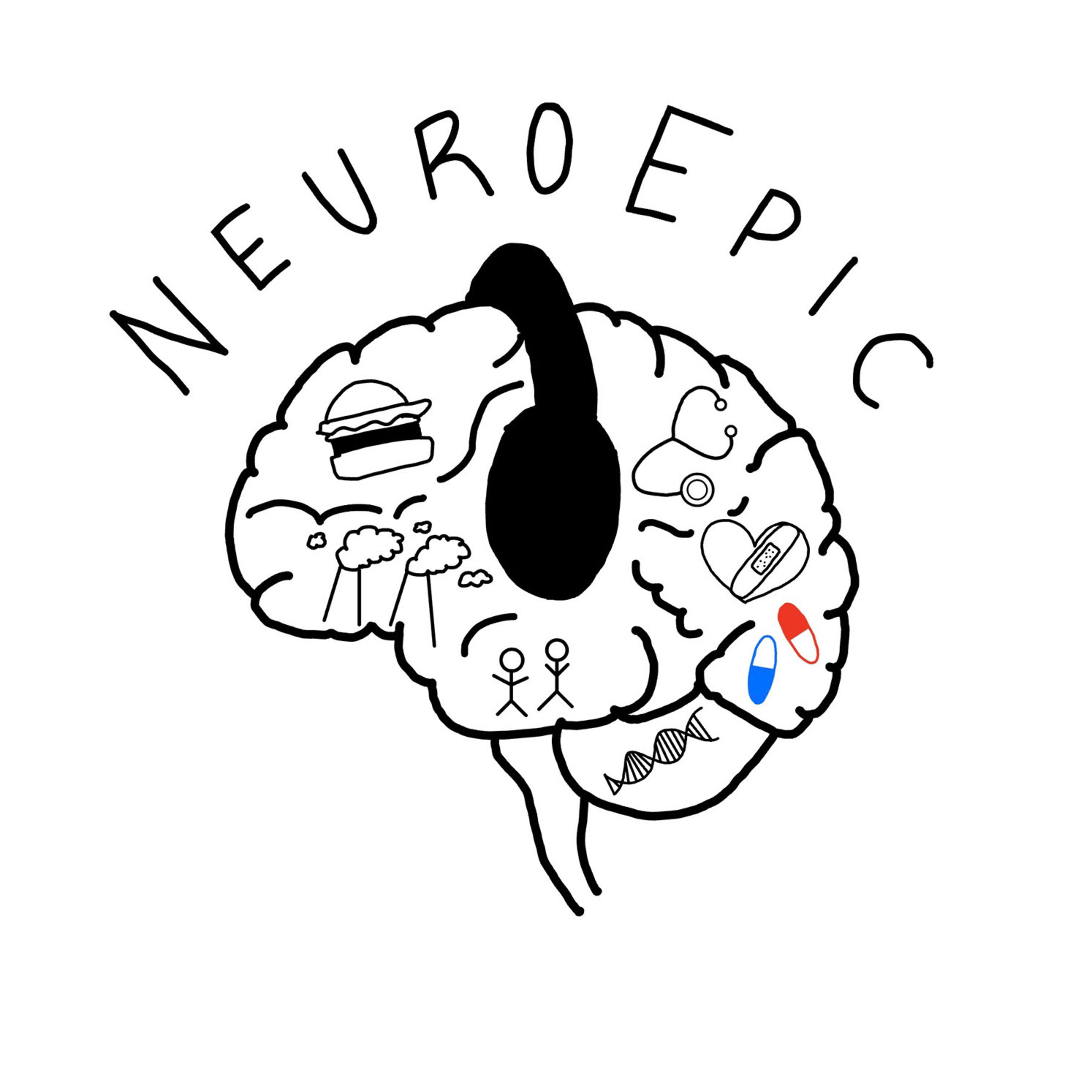 Neuroepic: Nature, Nurture, Food, Family, Brains13. Threatening Effects of Alcohol: How Alcohol Poisons an Alcoholic and Their Unborn ChildrenAlcoholism is a very serious disease that affects about 1 out of 14 Americans. Unfortunately, children of alcoholics are more likely to develop alcoholism. Environmental factors, such as influence from one’s peers or community, can also promote alcoholism. If a child is born from parents that are alcoholics and is raised in an environment that promotes alcohol consumption, this can be the ultimate maelstrom to promote the development of alcoholism. Since alcoholics are predisposed to alcoholism from birth and American culture largely promotes drinking, society is beginning to regard alcoholism as a serious disease, rather than dismissing the fact that al...2022-06-1309 min
Neuroepic: Nature, Nurture, Food, Family, Brains13. Threatening Effects of Alcohol: How Alcohol Poisons an Alcoholic and Their Unborn ChildrenAlcoholism is a very serious disease that affects about 1 out of 14 Americans. Unfortunately, children of alcoholics are more likely to develop alcoholism. Environmental factors, such as influence from one’s peers or community, can also promote alcoholism. If a child is born from parents that are alcoholics and is raised in an environment that promotes alcohol consumption, this can be the ultimate maelstrom to promote the development of alcoholism. Since alcoholics are predisposed to alcoholism from birth and American culture largely promotes drinking, society is beginning to regard alcoholism as a serious disease, rather than dismissing the fact that al...2022-06-1309 min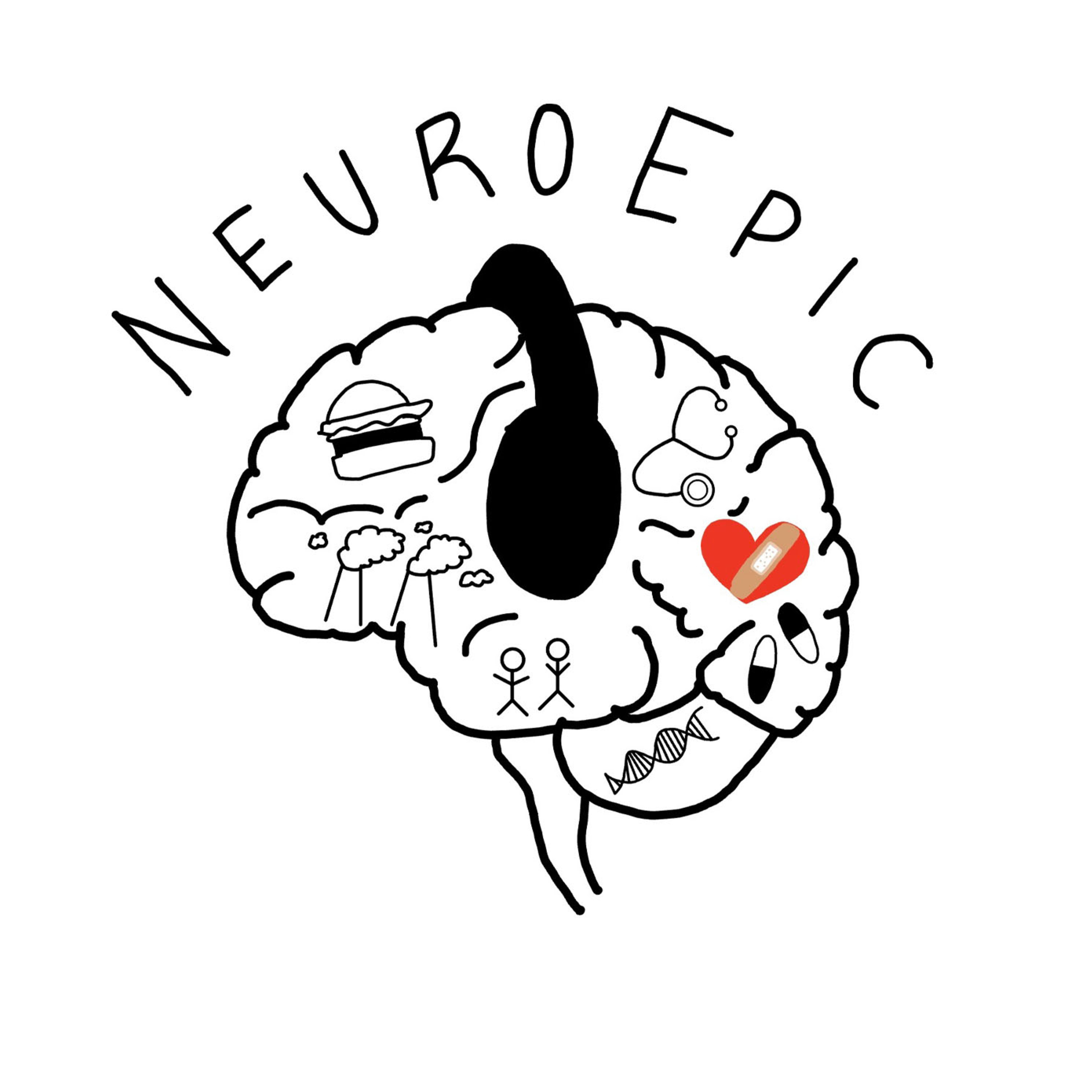 Neuroepic: Nature, Nurture, Food, Family, Brains12. Neuroepigenetics of DepressionDepression, a mood disorder associated with excessive sadness and cognitive dysfunction, is a debilitating mental illness that affects 350 million adults worldwide – more than the population of the entire United States. It can be so debilitating that an individual with depression may be unable to function in daily life, work, and school. In fact, the World Health Organization estimates that depression is the leading cause of disability in the world. While researchers and doctors have made incredible progress in treating depression, around half of patients do not respond to at least one treatment regimen. There is still so much we do...2022-06-1222 min
Neuroepic: Nature, Nurture, Food, Family, Brains12. Neuroepigenetics of DepressionDepression, a mood disorder associated with excessive sadness and cognitive dysfunction, is a debilitating mental illness that affects 350 million adults worldwide – more than the population of the entire United States. It can be so debilitating that an individual with depression may be unable to function in daily life, work, and school. In fact, the World Health Organization estimates that depression is the leading cause of disability in the world. While researchers and doctors have made incredible progress in treating depression, around half of patients do not respond to at least one treatment regimen. There is still so much we do...2022-06-1222 min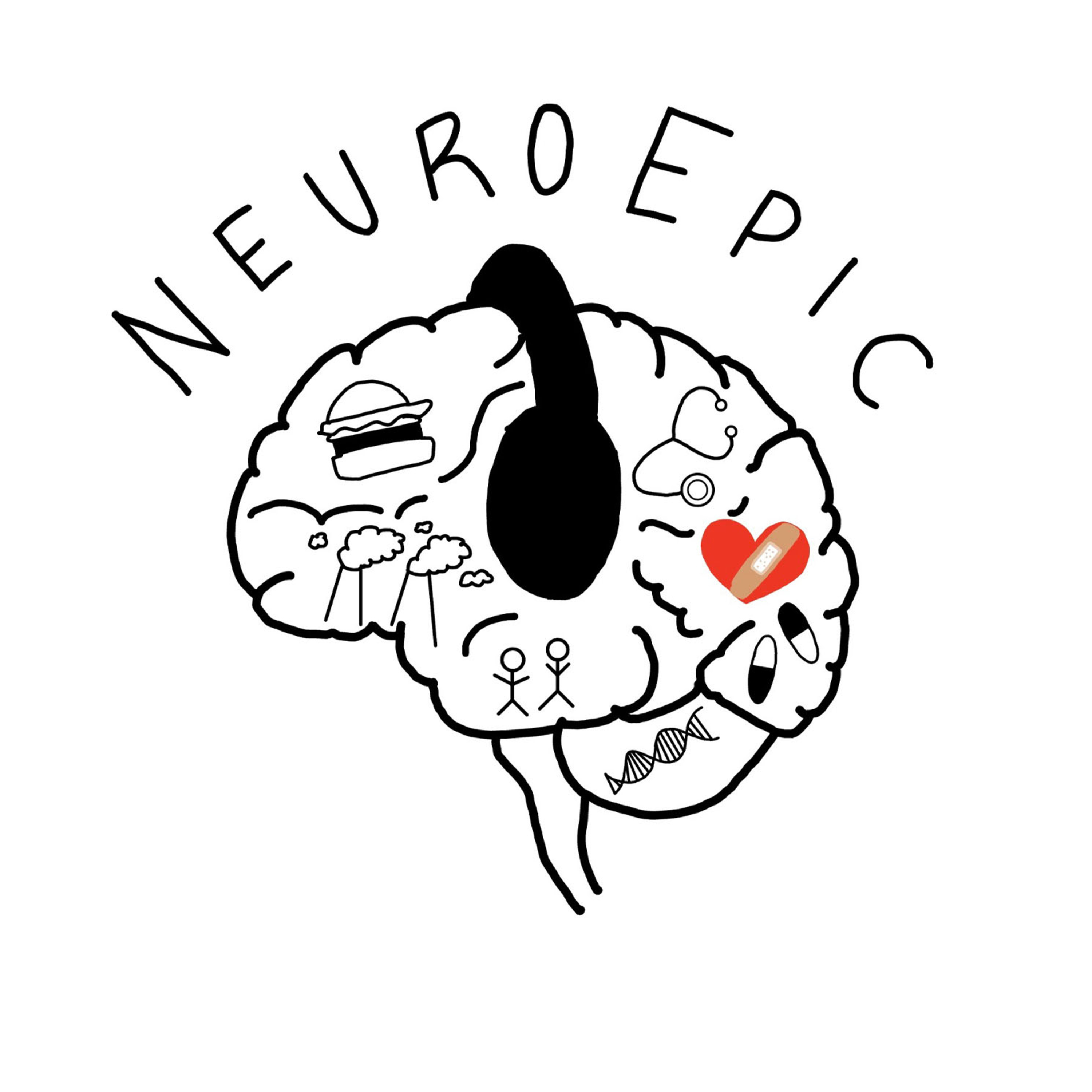 Neuroepic: Nature, Nurture, Food, Family, Brains11. Through the Methylated DoorImagine you’re in a room. It’s 110 degrees, you’ve drank the last of your water and you know you’re approaching dehydration. However, there are five doors in front of you and all you know is that behind one of them is an unending supply of water. Desperate, you pick door number one (because it’s your lucky number) only to get punched in the face. Ouch. So you try door number two; there’s a glass of water which eases your thirst a little bit, but it’s not enough. You try door number three and hear the faint...2022-06-1109 min
Neuroepic: Nature, Nurture, Food, Family, Brains11. Through the Methylated DoorImagine you’re in a room. It’s 110 degrees, you’ve drank the last of your water and you know you’re approaching dehydration. However, there are five doors in front of you and all you know is that behind one of them is an unending supply of water. Desperate, you pick door number one (because it’s your lucky number) only to get punched in the face. Ouch. So you try door number two; there’s a glass of water which eases your thirst a little bit, but it’s not enough. You try door number three and hear the faint...2022-06-1109 min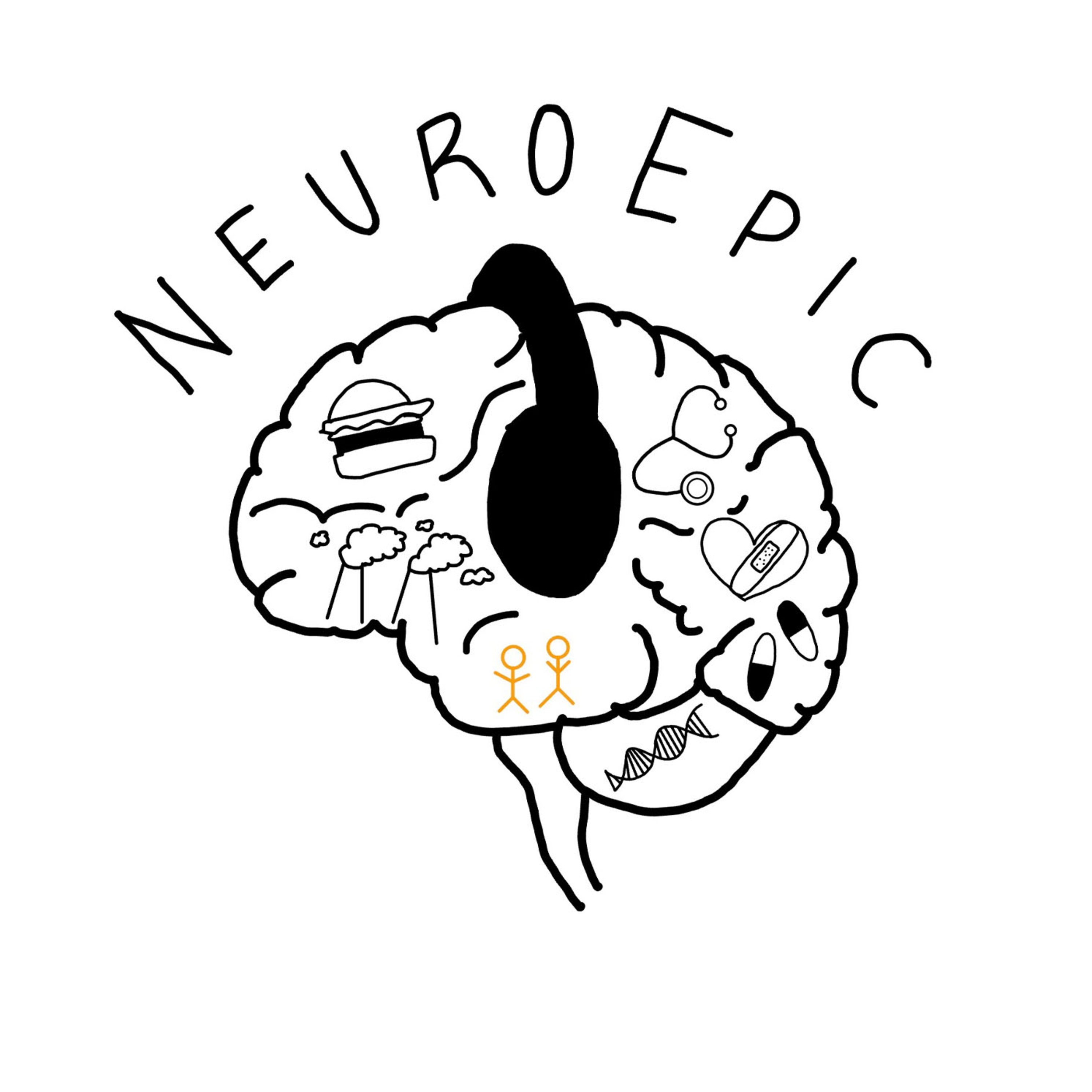 Neuroepic: Nature, Nurture, Food, Family, Brains10. Maternal Care 2: Early Mother-Child RelationshipThis essay will be discussing how childhood environments, such as abusive homes, can influence a person’s biology and their risk for depression and suicide later in life. The last essay stated how maternal care affects the animals, and now how care affects humans will be described. To begin, what is childhood abuse and what effect can it have upon a child?2022-06-1014 min
Neuroepic: Nature, Nurture, Food, Family, Brains10. Maternal Care 2: Early Mother-Child RelationshipThis essay will be discussing how childhood environments, such as abusive homes, can influence a person’s biology and their risk for depression and suicide later in life. The last essay stated how maternal care affects the animals, and now how care affects humans will be described. To begin, what is childhood abuse and what effect can it have upon a child?2022-06-1014 min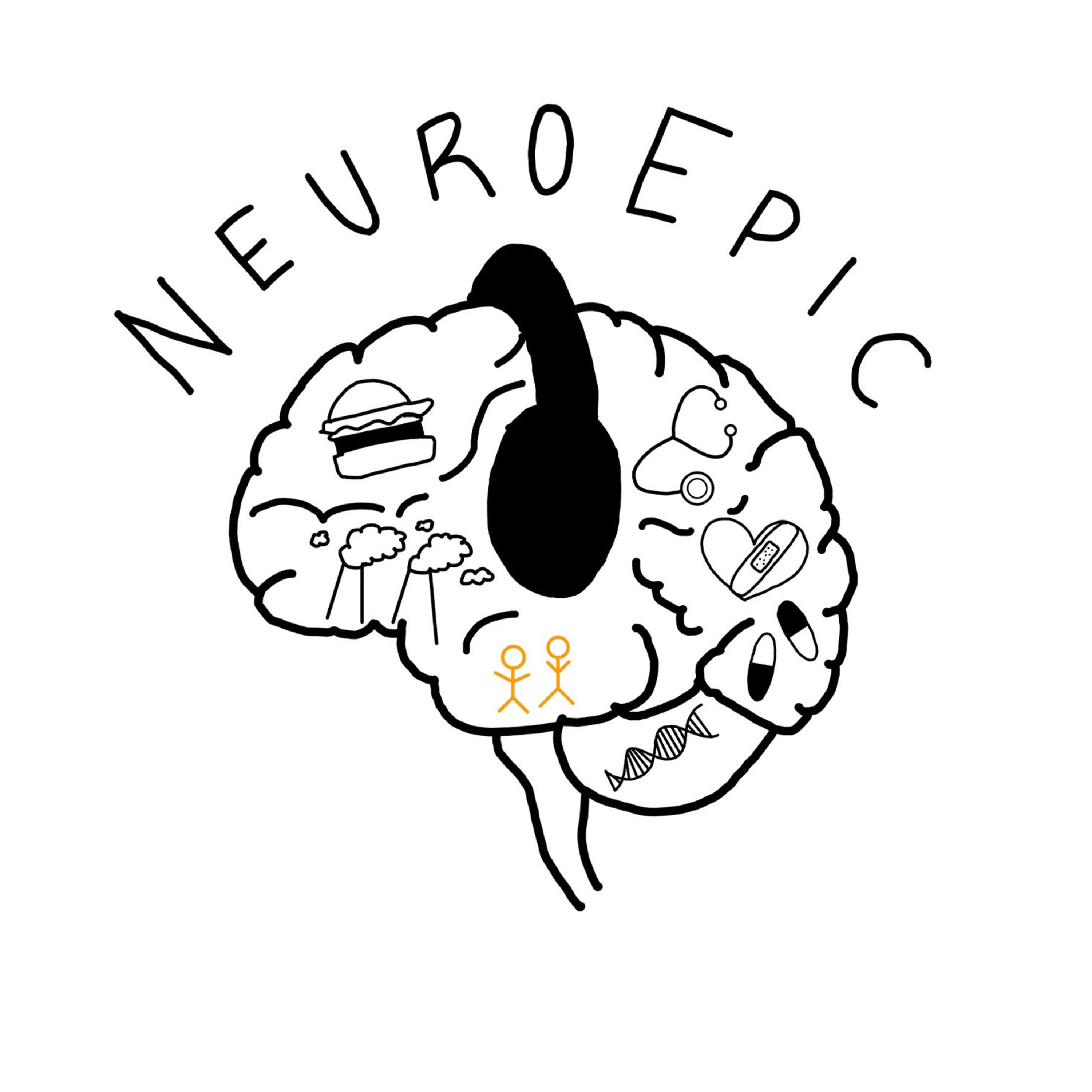 Neuroepic: Nature, Nurture, Food, Family, Brains9. Maternal Care 1: A Mother's LoveIn 2011 in Glasgow, Scotland, a fourteen-year-old boy was sentenced to seven years in jail for stabbing his thirty-four-year-old foster mother to death. Leading up to this tragedy, the boy had suffered a troubled childhood, moving around from one foster family to another. After two failed placements, he ended up with a third foster family. This one, however, only wanted one child, causing him to be separated from his half sisters. Although he was reported to have settled in well with his third foster family, the boy’s life took a turn for the worse and the result was catastrophic. What ca...2022-06-0911 min
Neuroepic: Nature, Nurture, Food, Family, Brains9. Maternal Care 1: A Mother's LoveIn 2011 in Glasgow, Scotland, a fourteen-year-old boy was sentenced to seven years in jail for stabbing his thirty-four-year-old foster mother to death. Leading up to this tragedy, the boy had suffered a troubled childhood, moving around from one foster family to another. After two failed placements, he ended up with a third foster family. This one, however, only wanted one child, causing him to be separated from his half sisters. Although he was reported to have settled in well with his third foster family, the boy’s life took a turn for the worse and the result was catastrophic. What ca...2022-06-0911 min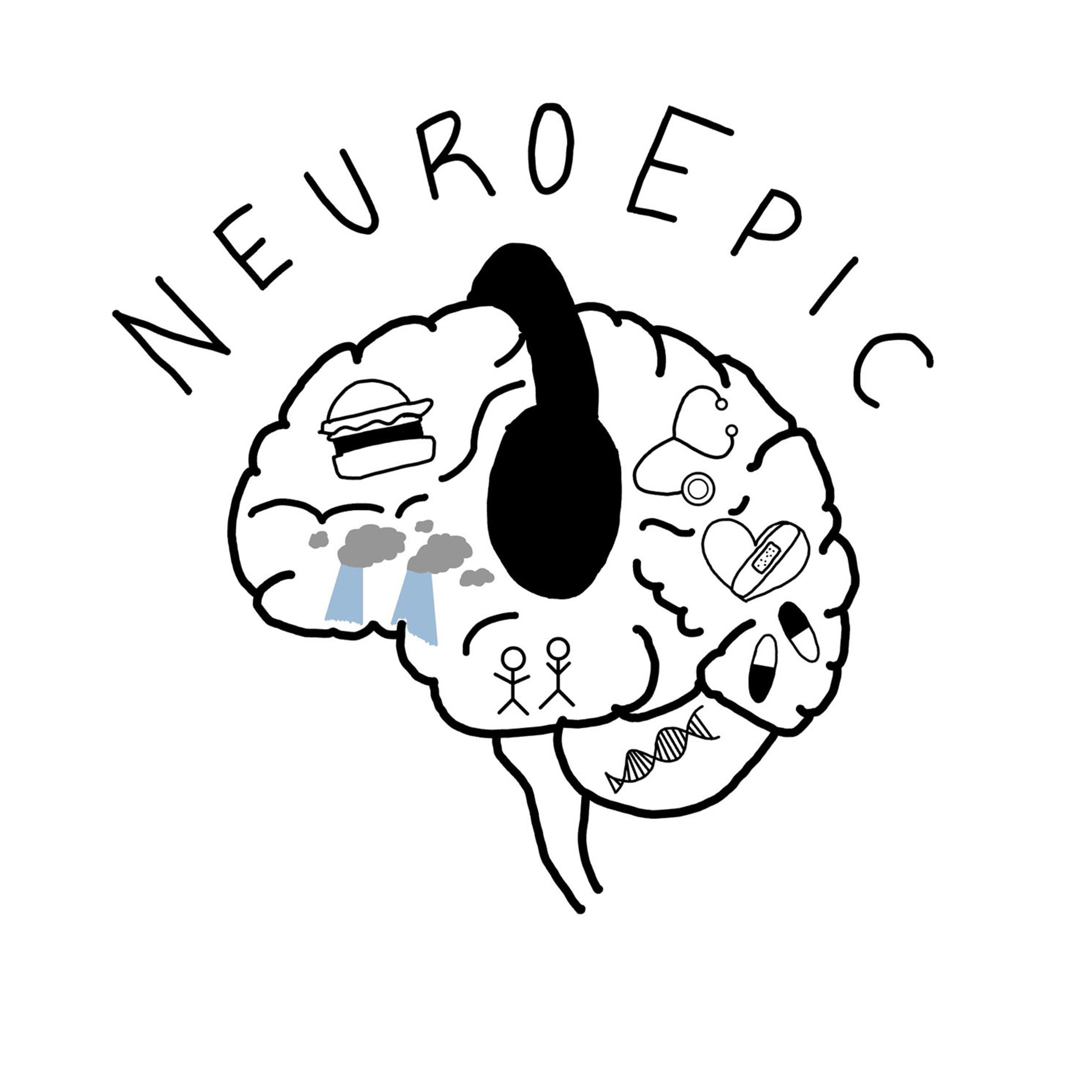 Neuroepic: Nature, Nurture, Food, Family, Brains8. Neuroepigenetics of Lead: Flint Water CrisisIn April of 2014 Flint, Michigan changed its water supply from the Detroit-supplied Lake Huron water to the Flint River while waiting on a new pipeline from Lake Huron in order to save money. Residents were immediately alarmed by this news, as the pollution of the Flint River was common local knowledge. Soon after this change, residents found that the water from their faucets was discolored brown and smelly. For months the government trivialized the issue and even went to far as to alter evidence. As the problem persisted, they issued notices for residents to boil the water before consumption...2022-06-0813 min
Neuroepic: Nature, Nurture, Food, Family, Brains8. Neuroepigenetics of Lead: Flint Water CrisisIn April of 2014 Flint, Michigan changed its water supply from the Detroit-supplied Lake Huron water to the Flint River while waiting on a new pipeline from Lake Huron in order to save money. Residents were immediately alarmed by this news, as the pollution of the Flint River was common local knowledge. Soon after this change, residents found that the water from their faucets was discolored brown and smelly. For months the government trivialized the issue and even went to far as to alter evidence. As the problem persisted, they issued notices for residents to boil the water before consumption...2022-06-0813 min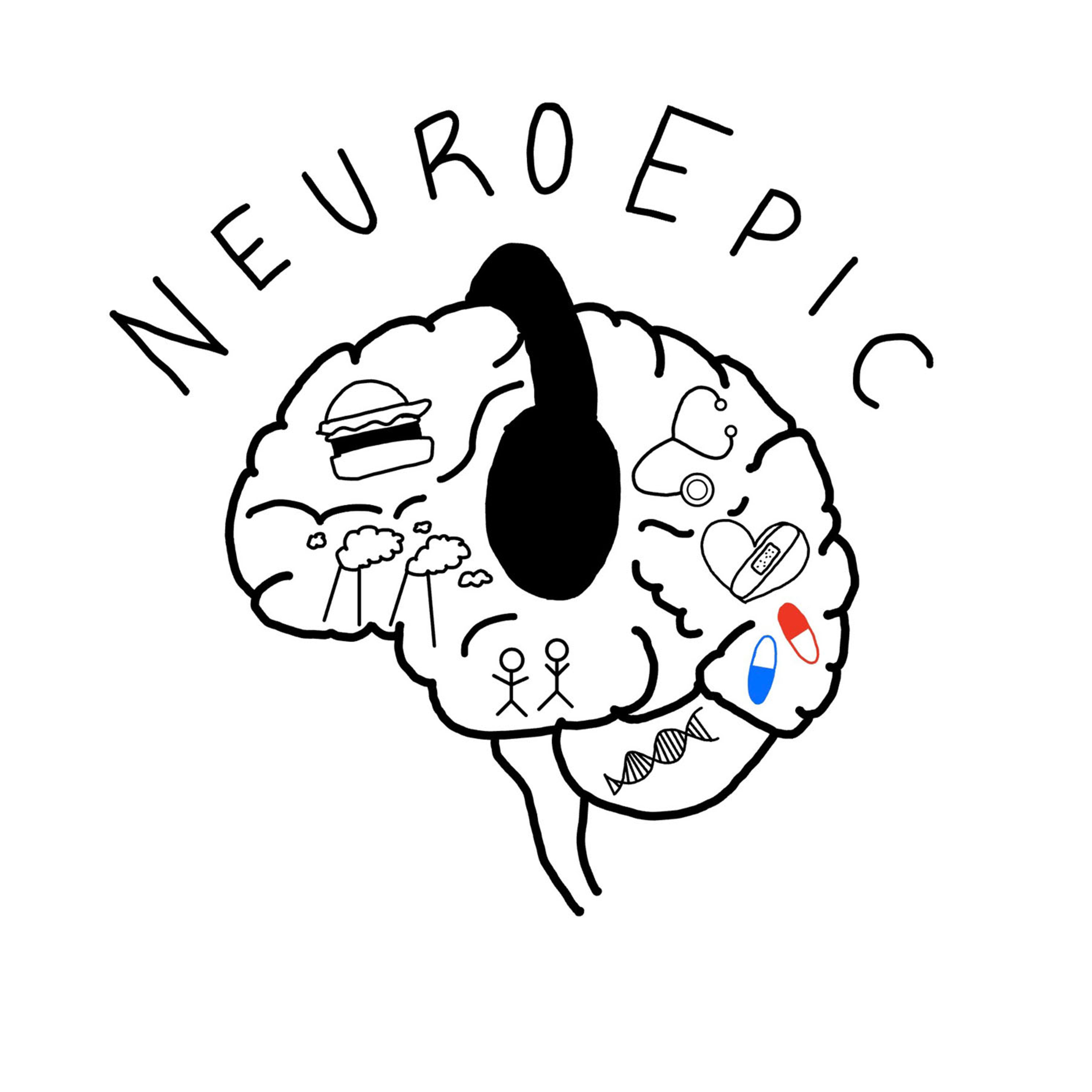 Neuroepic: Nature, Nurture, Food, Family, Brains7. Neuroepigenetics of Drug Addiction: MarijuanaDrugs are bad…or so we’ve been told over and over. With the topic of marijuana legalization making its way to the national and global spotlight, hard evidence and straightforward facts cannot come too soon. Colorado, Washington, and Oregon have already legalized the recreational use of marijuana, and it seems inevitable that others will soon follow suit. Pot, dope, ganja, trees, that sticky icky icky—whatever you want to call it—is becoming more accepted in both medical and social settings, but we worry that the research done on its properties and effects is not enough well known. Here, we...2022-06-0718 min
Neuroepic: Nature, Nurture, Food, Family, Brains7. Neuroepigenetics of Drug Addiction: MarijuanaDrugs are bad…or so we’ve been told over and over. With the topic of marijuana legalization making its way to the national and global spotlight, hard evidence and straightforward facts cannot come too soon. Colorado, Washington, and Oregon have already legalized the recreational use of marijuana, and it seems inevitable that others will soon follow suit. Pot, dope, ganja, trees, that sticky icky icky—whatever you want to call it—is becoming more accepted in both medical and social settings, but we worry that the research done on its properties and effects is not enough well known. Here, we...2022-06-0718 min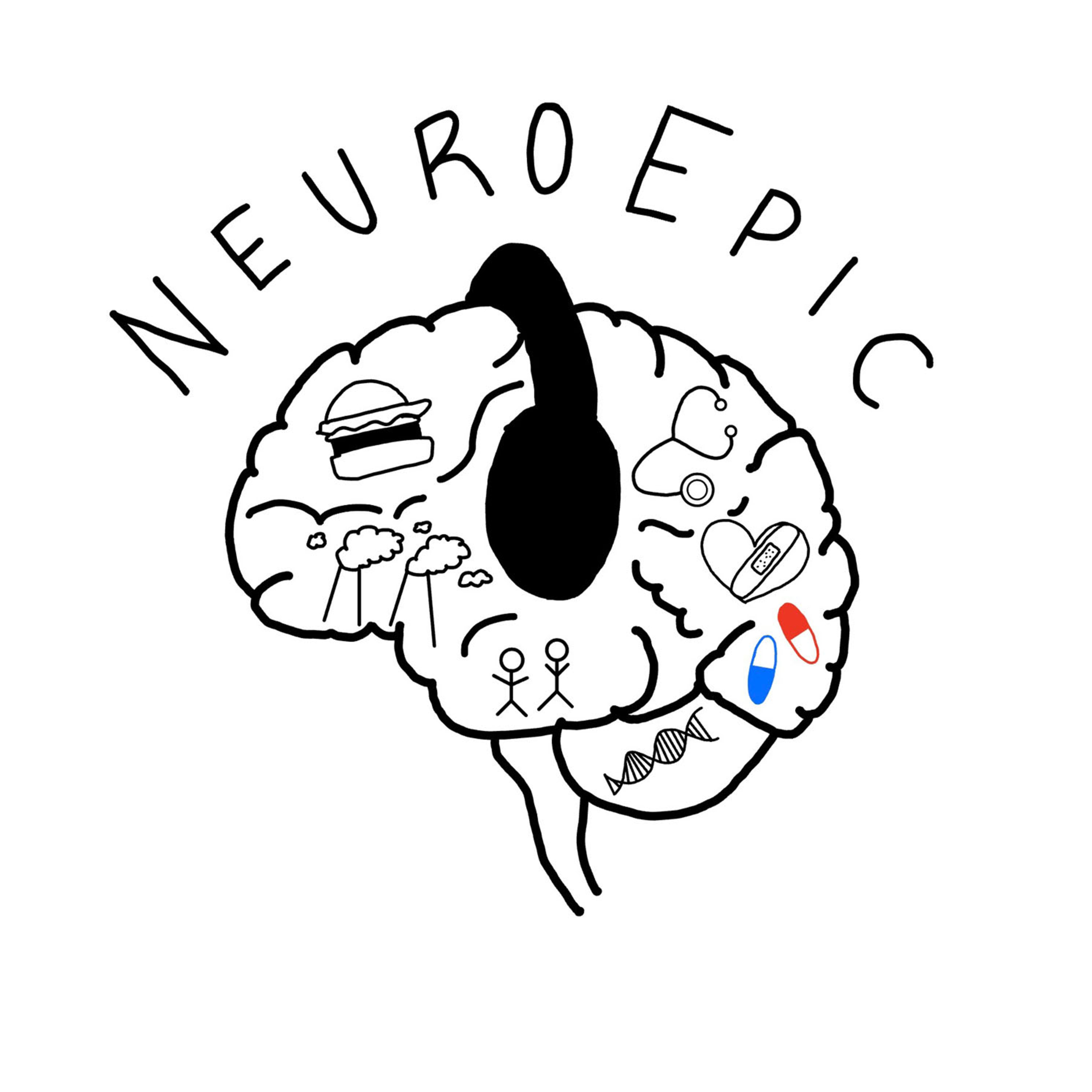 Neuroepic: Nature, Nurture, Food, Family, Brains6. Addiction Through the Lens of Epigenetics: Cocaine and the Reward SystemSeemingly overnight, Amy Winehouse was catapulted into the limelight with her massively successful single, “Rehab.” Rather than seeing the lyrics of this famed chorus as a cry for help, they were received as an ironic joke by the public, an invitation to ridicule Winehouse for anything related to her drug abuse and addiction. In 2011, the tone changed when Amy Winehouse was found dead on the floor of her apartment from an apparent alcohol overdose. What many people didn’t know until the documentary, Amy, came out in 2015 was that she had been clean for weeks before her overdose, and that this patt...2022-06-0626 min
Neuroepic: Nature, Nurture, Food, Family, Brains6. Addiction Through the Lens of Epigenetics: Cocaine and the Reward SystemSeemingly overnight, Amy Winehouse was catapulted into the limelight with her massively successful single, “Rehab.” Rather than seeing the lyrics of this famed chorus as a cry for help, they were received as an ironic joke by the public, an invitation to ridicule Winehouse for anything related to her drug abuse and addiction. In 2011, the tone changed when Amy Winehouse was found dead on the floor of her apartment from an apparent alcohol overdose. What many people didn’t know until the documentary, Amy, came out in 2015 was that she had been clean for weeks before her overdose, and that this patt...2022-06-0626 min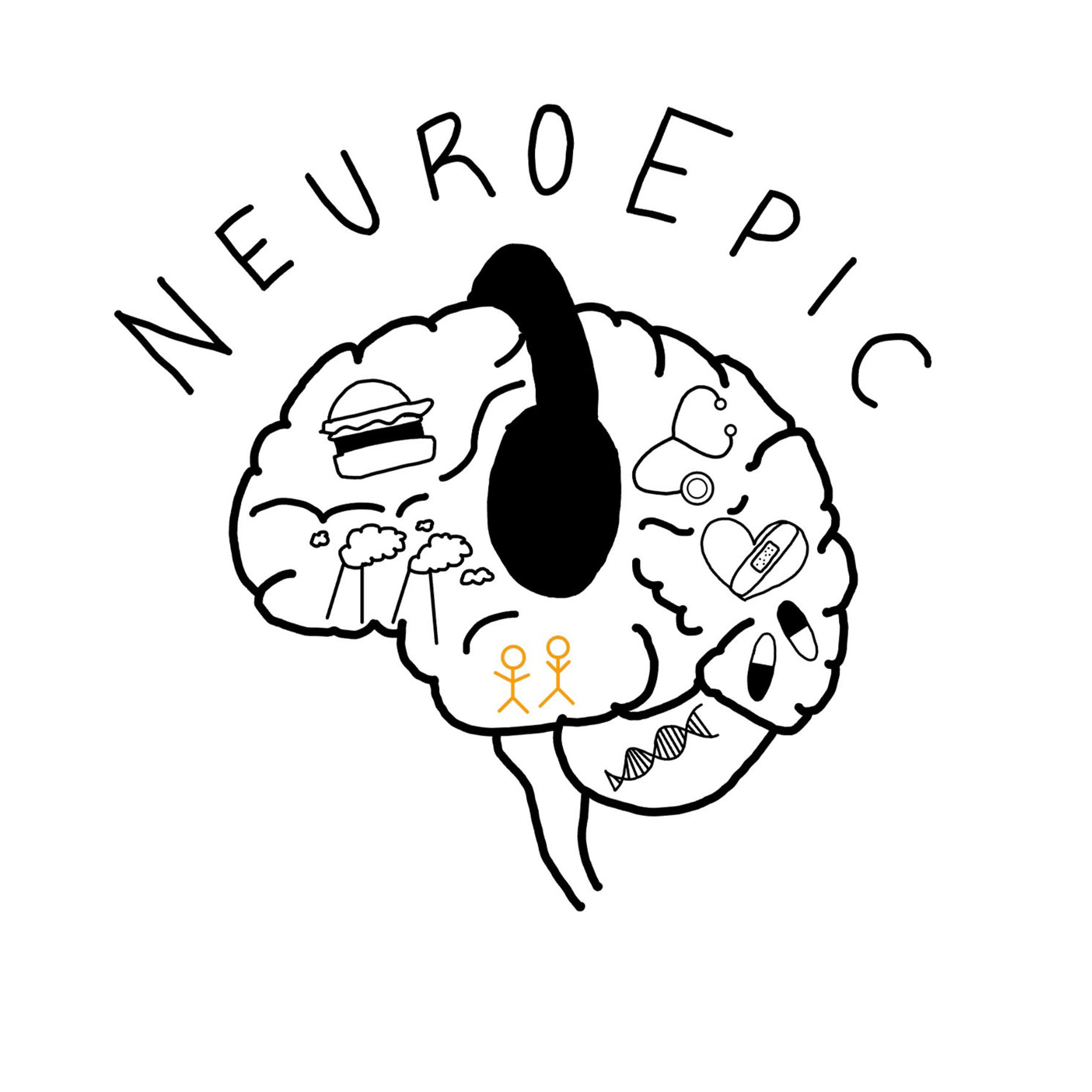 Neuroepic: Nature, Nurture, Food, Family, Brains5. Genocide and GenesWhen you hear the word genocide, what comes to mind?
The Holocaust. Rwanda. Khmer Rouge. These are all terms we’ve become accustomed to associating with the word. Merriam Webster defines genocide as: the deliberate killing of people who belong to a particular racial, political, or cultural group. Quite simply, it’s one of the deepest forms of human atrocity.2022-06-0511 min
Neuroepic: Nature, Nurture, Food, Family, Brains5. Genocide and GenesWhen you hear the word genocide, what comes to mind?
The Holocaust. Rwanda. Khmer Rouge. These are all terms we’ve become accustomed to associating with the word. Merriam Webster defines genocide as: the deliberate killing of people who belong to a particular racial, political, or cultural group. Quite simply, it’s one of the deepest forms of human atrocity.2022-06-0511 min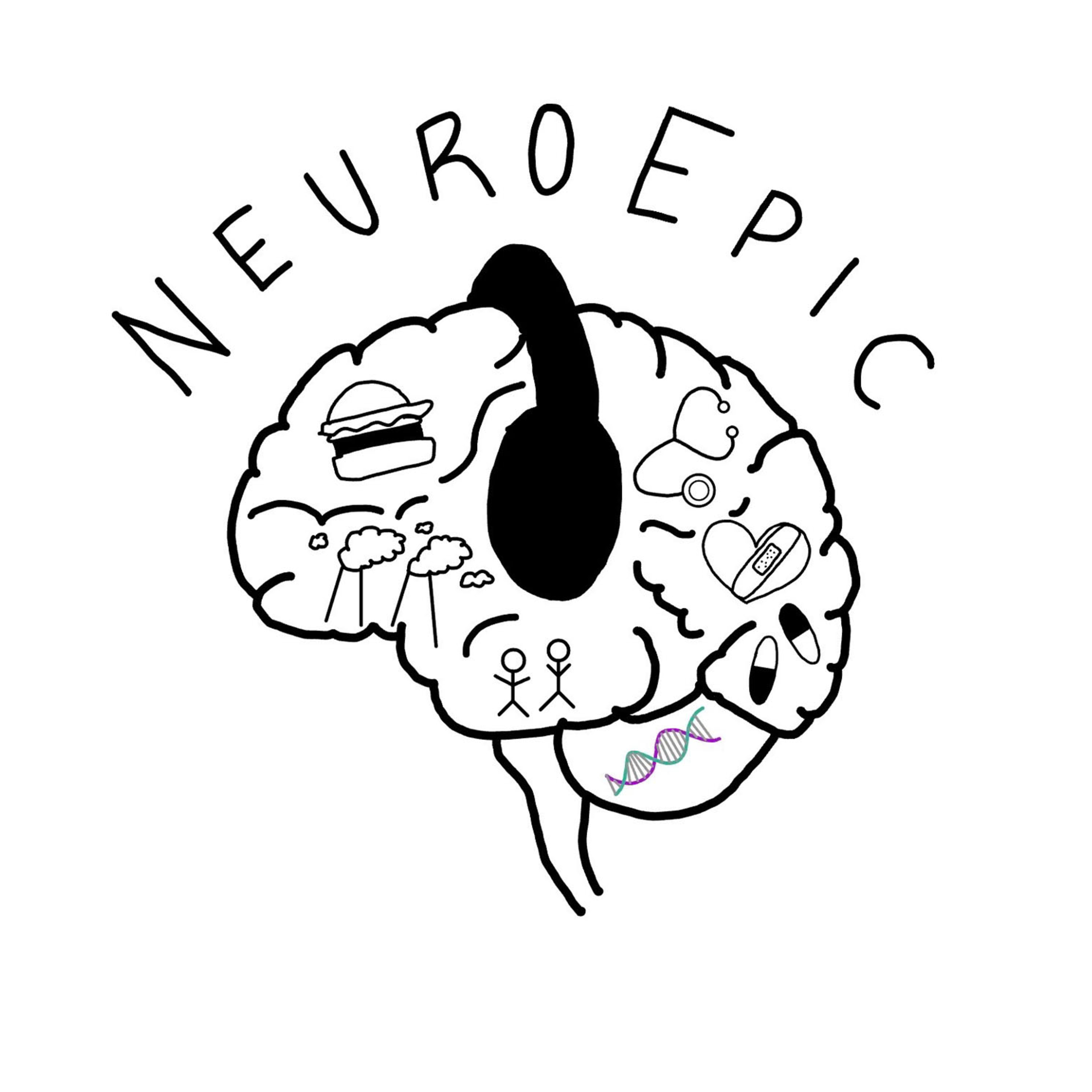 Neuroepic: Nature, Nurture, Food, Family, Brains4. Alzheimer’s Disease: Beyond GenesWhat day is it today? What state or town are you in? Can you identify the following pictures?
If you are in a room with nine people, at least one will be diagnosed with a specific form of dementia known as Alzheimer’s disease (AD). There is a new diagnosis every 67 seconds. AD is a fatal disease with approximately five years between diagnosis and advance disease or death. In the United States, it is the sixth leading cause of death, and the only in the top ten list that cannot be cured. Despite intensive study, there is li...2022-06-0414 min
Neuroepic: Nature, Nurture, Food, Family, Brains4. Alzheimer’s Disease: Beyond GenesWhat day is it today? What state or town are you in? Can you identify the following pictures?
If you are in a room with nine people, at least one will be diagnosed with a specific form of dementia known as Alzheimer’s disease (AD). There is a new diagnosis every 67 seconds. AD is a fatal disease with approximately five years between diagnosis and advance disease or death. In the United States, it is the sixth leading cause of death, and the only in the top ten list that cannot be cured. Despite intensive study, there is li...2022-06-0414 min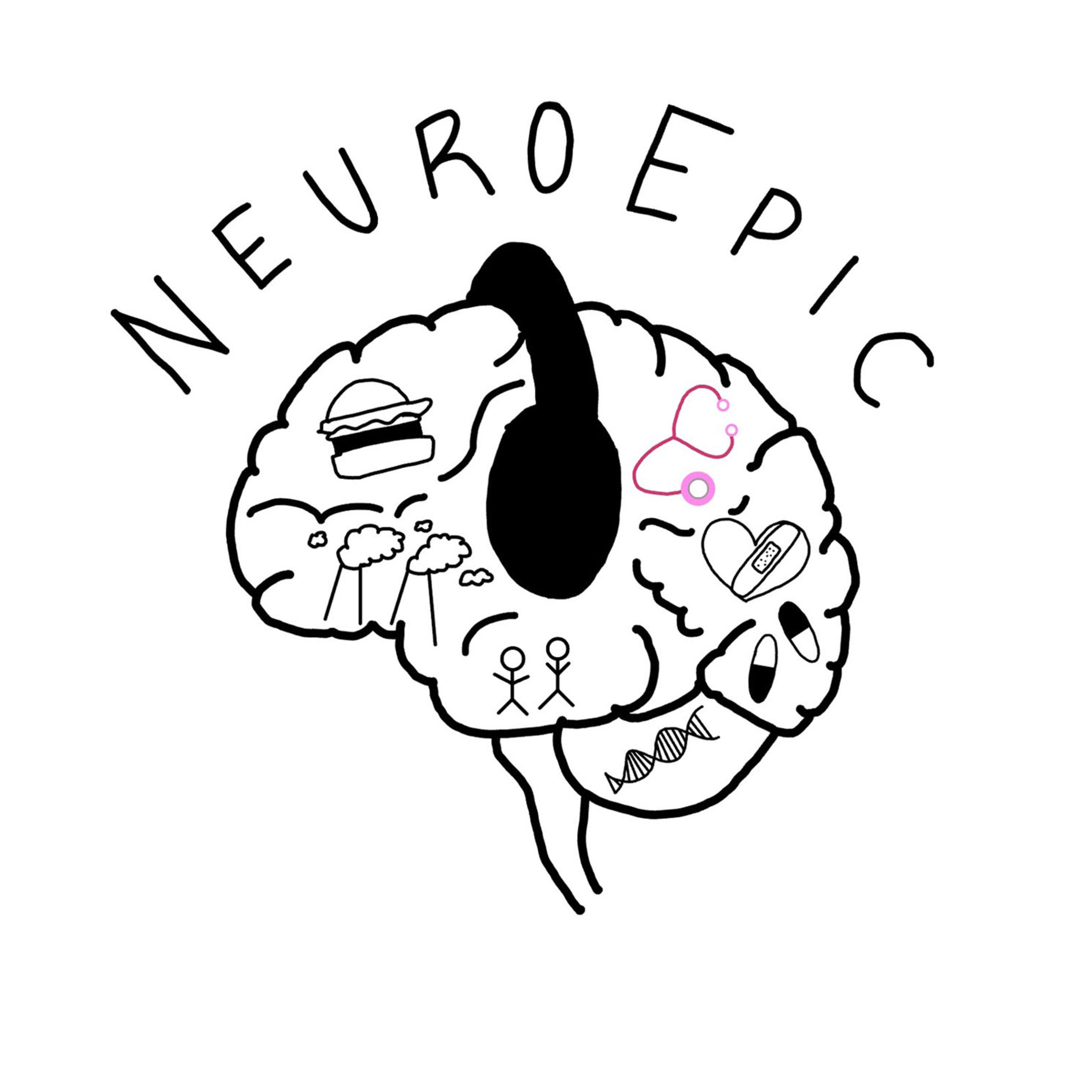 Neuroepic: Nature, Nurture, Food, Family, Brains3. Treating the Aging BrainMemory is perhaps the most intimate of our personal possessions, the loss of which can pose extremely distressing for elderly individuals who are most susceptible. The quintessential question for neuroscientists and doctors therefore becomes: how does the process of memory-making change as we grow older? While we commonly associate aging with a natural decline of cognitive ability, the development of age-related neurological diseases is a topic that has confounded researchers for decades. Recently, promise has been seen in a rapidly growing field: neuroepigenetics, which aims to explore the connection between nature and nurture— the relationship between our brain, our ge...2022-06-0318 min
Neuroepic: Nature, Nurture, Food, Family, Brains3. Treating the Aging BrainMemory is perhaps the most intimate of our personal possessions, the loss of which can pose extremely distressing for elderly individuals who are most susceptible. The quintessential question for neuroscientists and doctors therefore becomes: how does the process of memory-making change as we grow older? While we commonly associate aging with a natural decline of cognitive ability, the development of age-related neurological diseases is a topic that has confounded researchers for decades. Recently, promise has been seen in a rapidly growing field: neuroepigenetics, which aims to explore the connection between nature and nurture— the relationship between our brain, our ge...2022-06-0318 min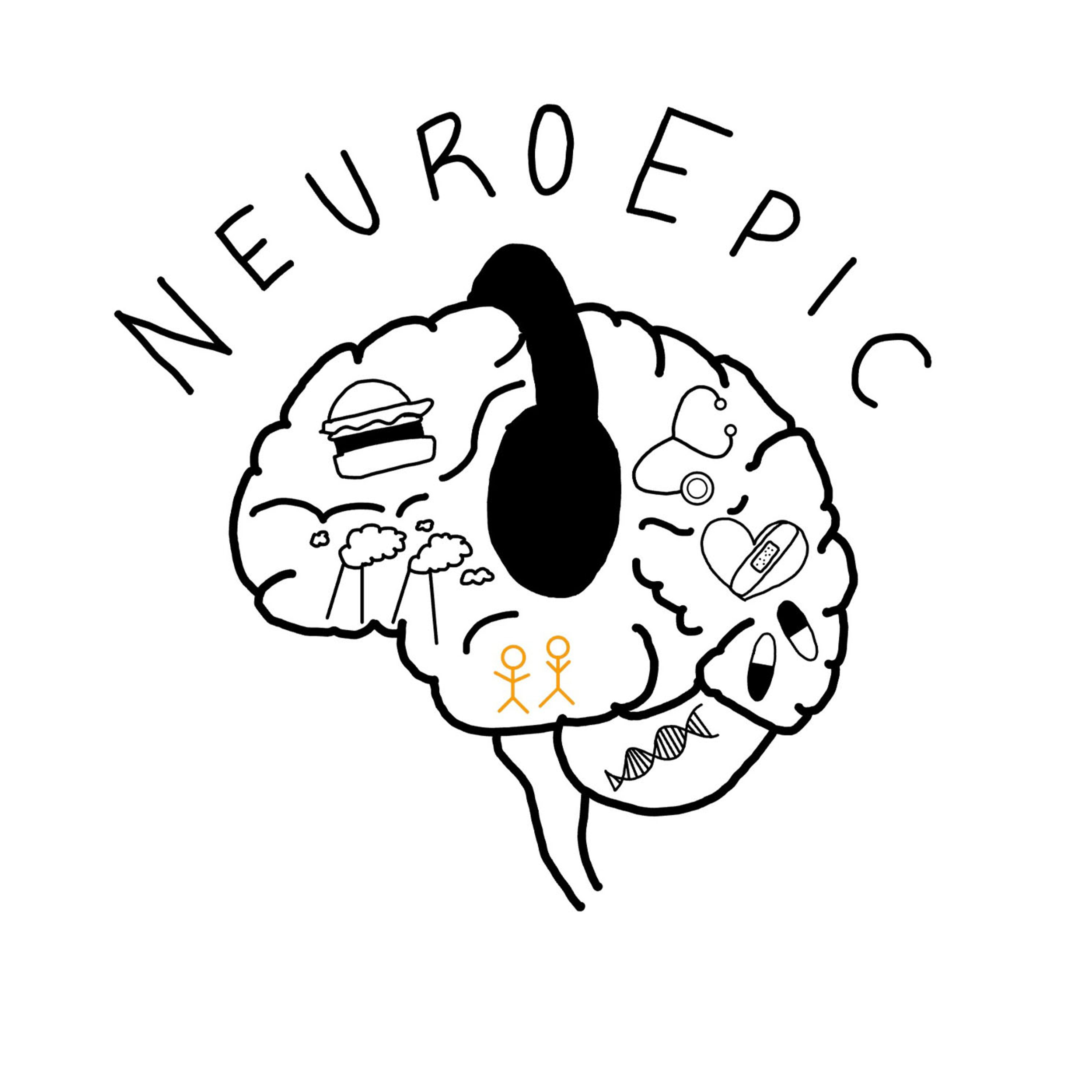 Neuroepic: Nature, Nurture, Food, Family, Brains2. Mom's Meals Made MeIn a nation where McDonald’s and Chipotle abound, we are frequently reminded that our diet can directly affect our personal health and wellbeing. But beyond changing our waistlines, can the foods we eat change the DNA in each of our cells? If so, can food also affect the health of our children, or perhaps even our grandchildren? The burgeoning field of epigenetics, which studies how the environment affects DNA, suggests that this may be the case. Epigenetic research is raising fascinating questions on how the dietary choices of our parents and grandparents may have direct effects on our ow...2022-06-0214 min
Neuroepic: Nature, Nurture, Food, Family, Brains2. Mom's Meals Made MeIn a nation where McDonald’s and Chipotle abound, we are frequently reminded that our diet can directly affect our personal health and wellbeing. But beyond changing our waistlines, can the foods we eat change the DNA in each of our cells? If so, can food also affect the health of our children, or perhaps even our grandchildren? The burgeoning field of epigenetics, which studies how the environment affects DNA, suggests that this may be the case. Epigenetic research is raising fascinating questions on how the dietary choices of our parents and grandparents may have direct effects on our ow...2022-06-0214 min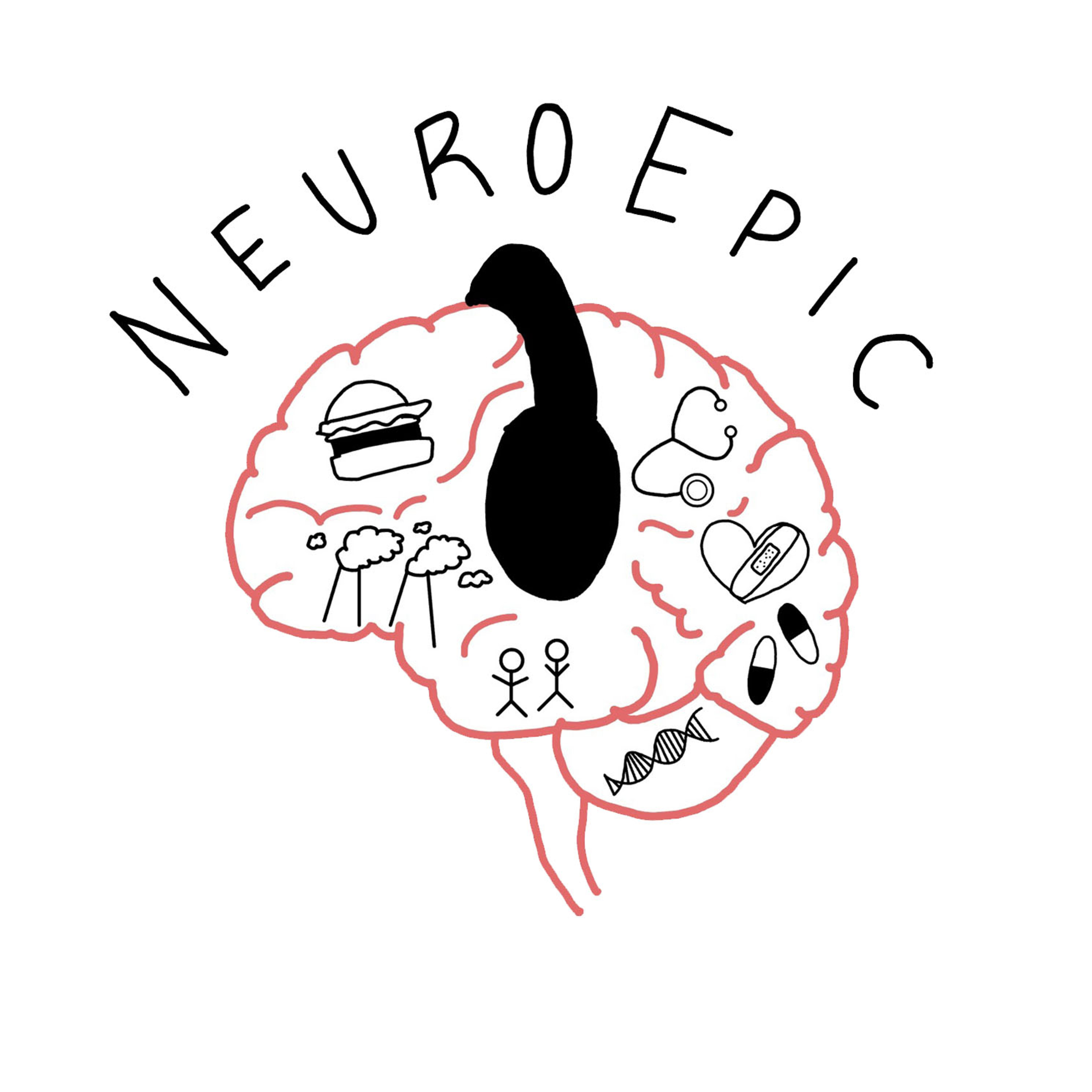 Neuroepic: Nature, Nurture, Food, Family, Brains1. Introduction to NeuroepigeneticsIntro to the field and interview with Dr. Sweatt (2016).2022-06-0130 min
Neuroepic: Nature, Nurture, Food, Family, Brains1. Introduction to NeuroepigeneticsIntro to the field and interview with Dr. Sweatt (2016).2022-06-0130 min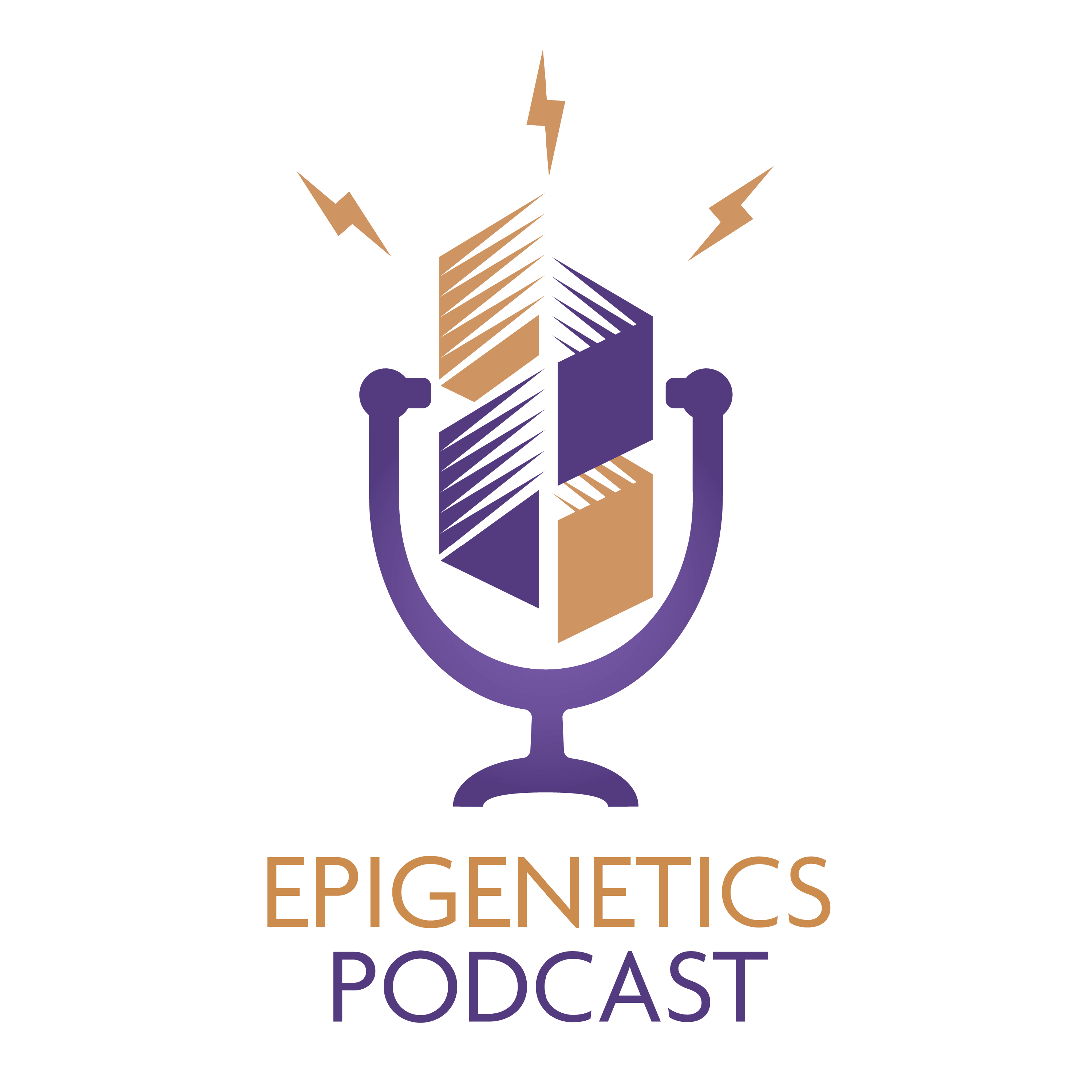 Epigenetics PodcastNutriepigenetics: The Effects of Diet on Behavior (Monica Dus)In this episode of the Epigenetics Podcast, we caught up with Monica Dus from the University of Michigan to talk about her work on nutriepigenetics and the effects of diet on behavior.
The focus of Monica Dus and her team is to study the effect of sugar on the brain and how diet has an effect on behavior. The Dus lab takes a multidisciplinary approach to answer questions like "What causes animals to overeat if they consume foods rich in sugar, salt, and fat?" and "How does such a diet alter the basic physiology and biochemistry of...2021-03-1843 min
Epigenetics PodcastNutriepigenetics: The Effects of Diet on Behavior (Monica Dus)In this episode of the Epigenetics Podcast, we caught up with Monica Dus from the University of Michigan to talk about her work on nutriepigenetics and the effects of diet on behavior.
The focus of Monica Dus and her team is to study the effect of sugar on the brain and how diet has an effect on behavior. The Dus lab takes a multidisciplinary approach to answer questions like "What causes animals to overeat if they consume foods rich in sugar, salt, and fat?" and "How does such a diet alter the basic physiology and biochemistry of...2021-03-1843 min